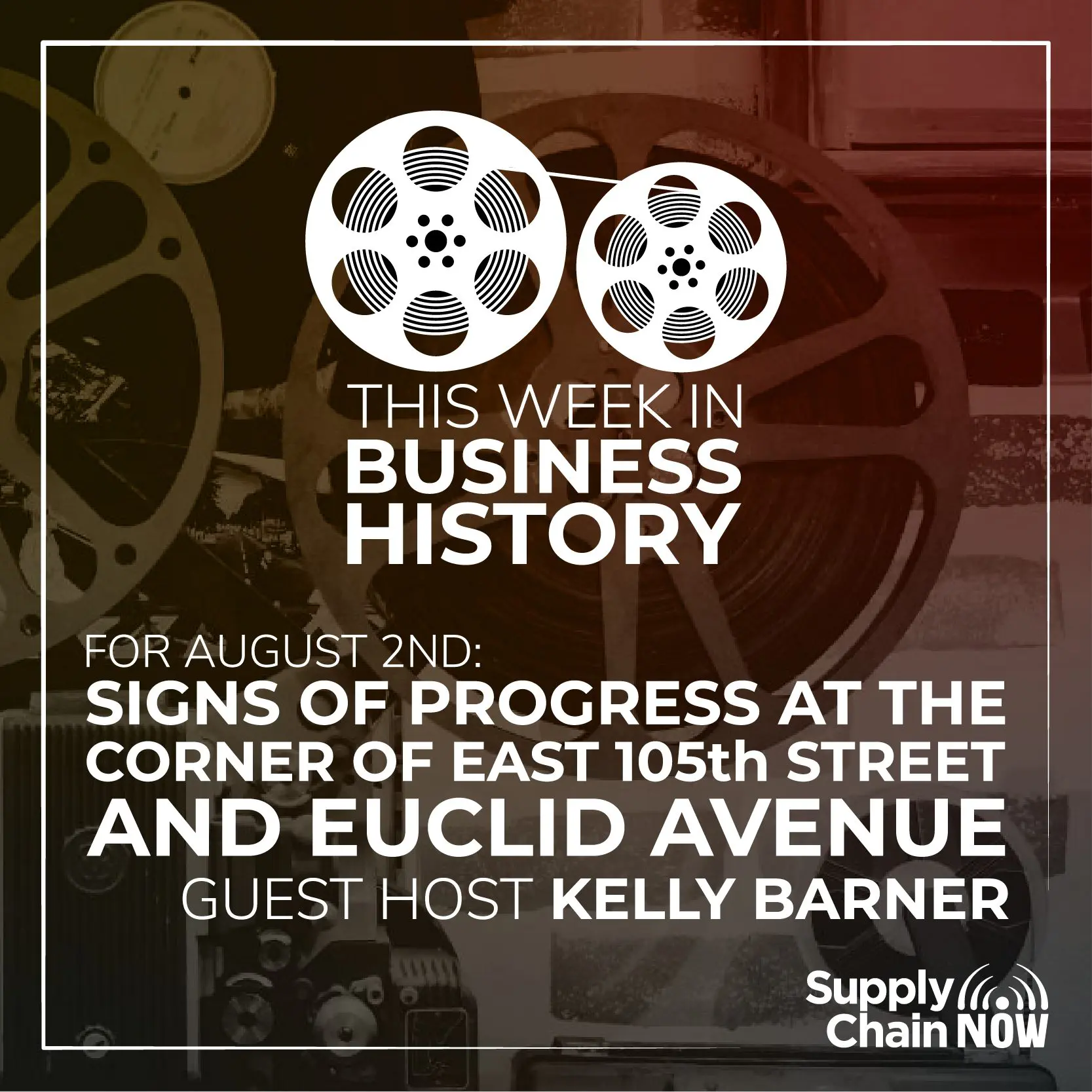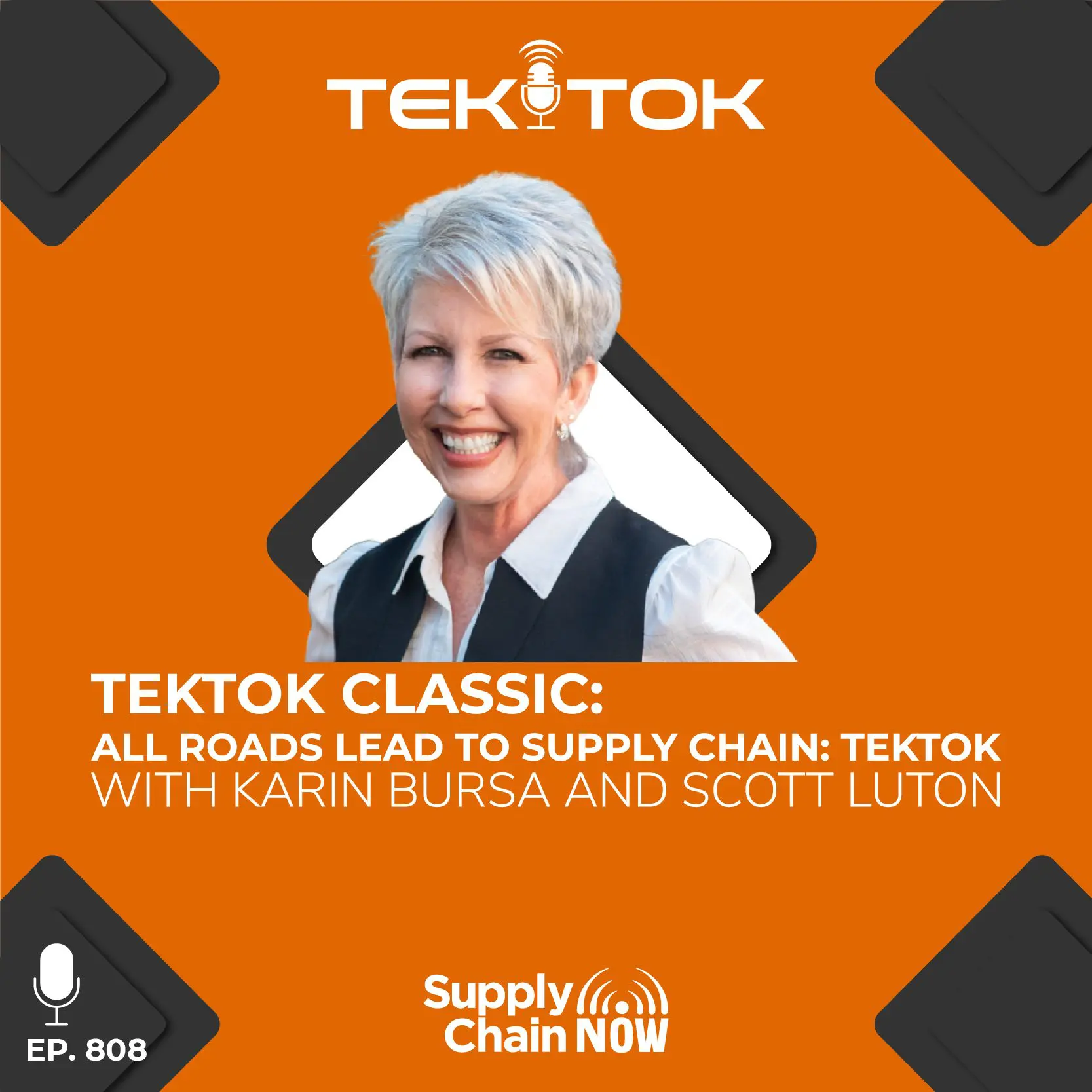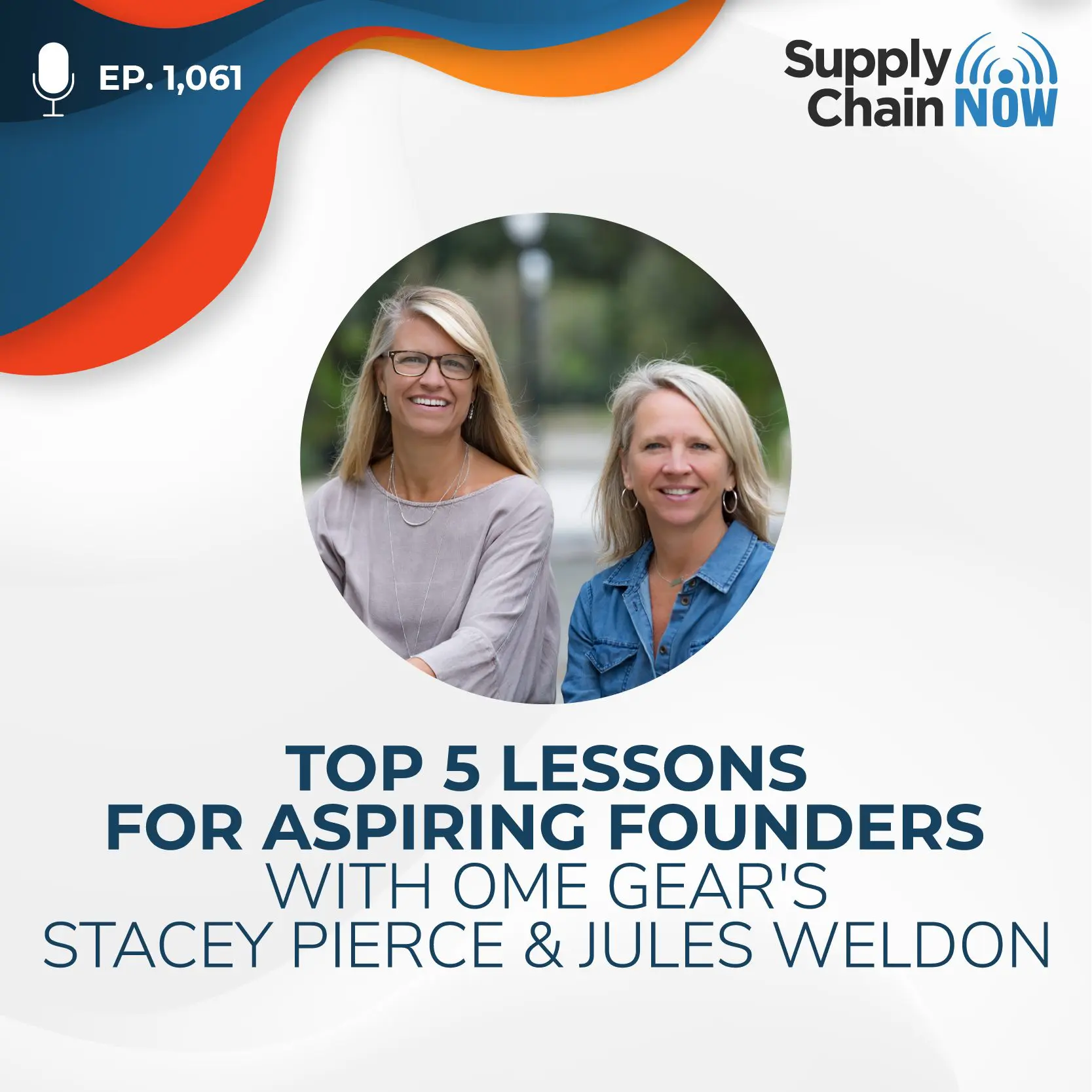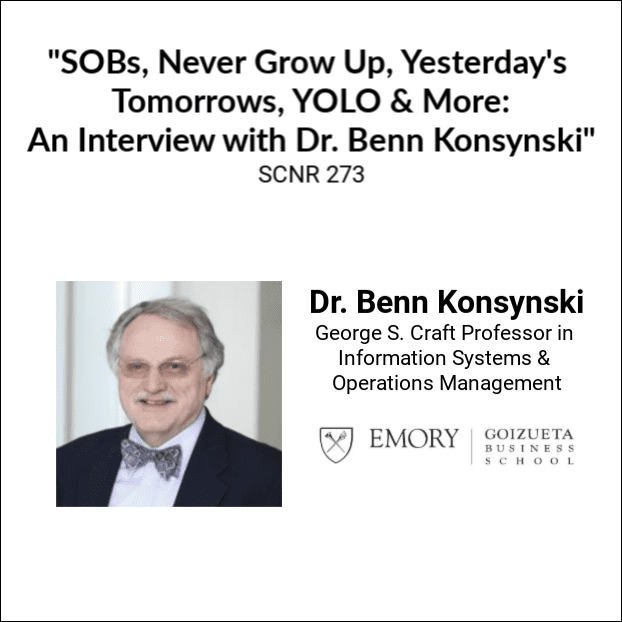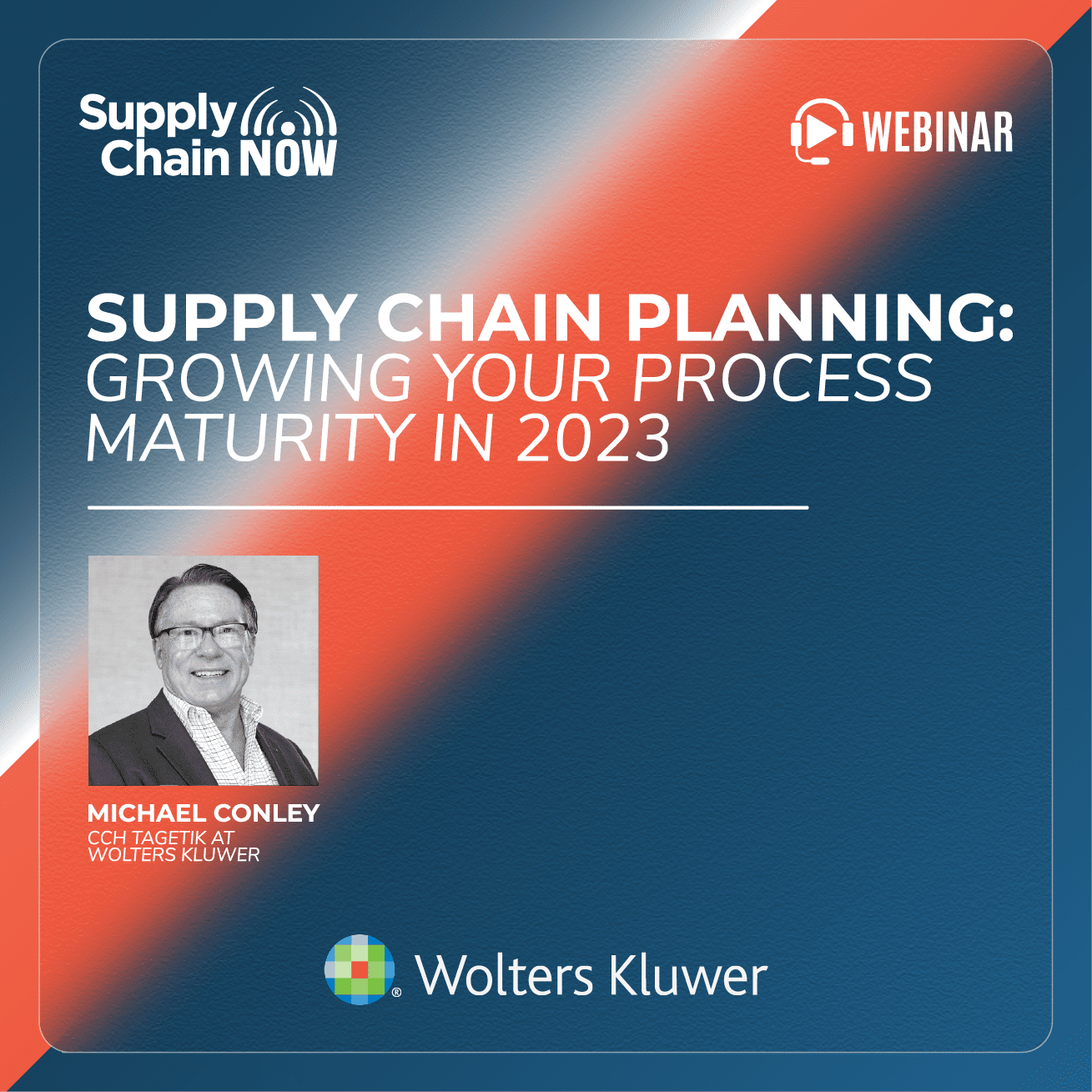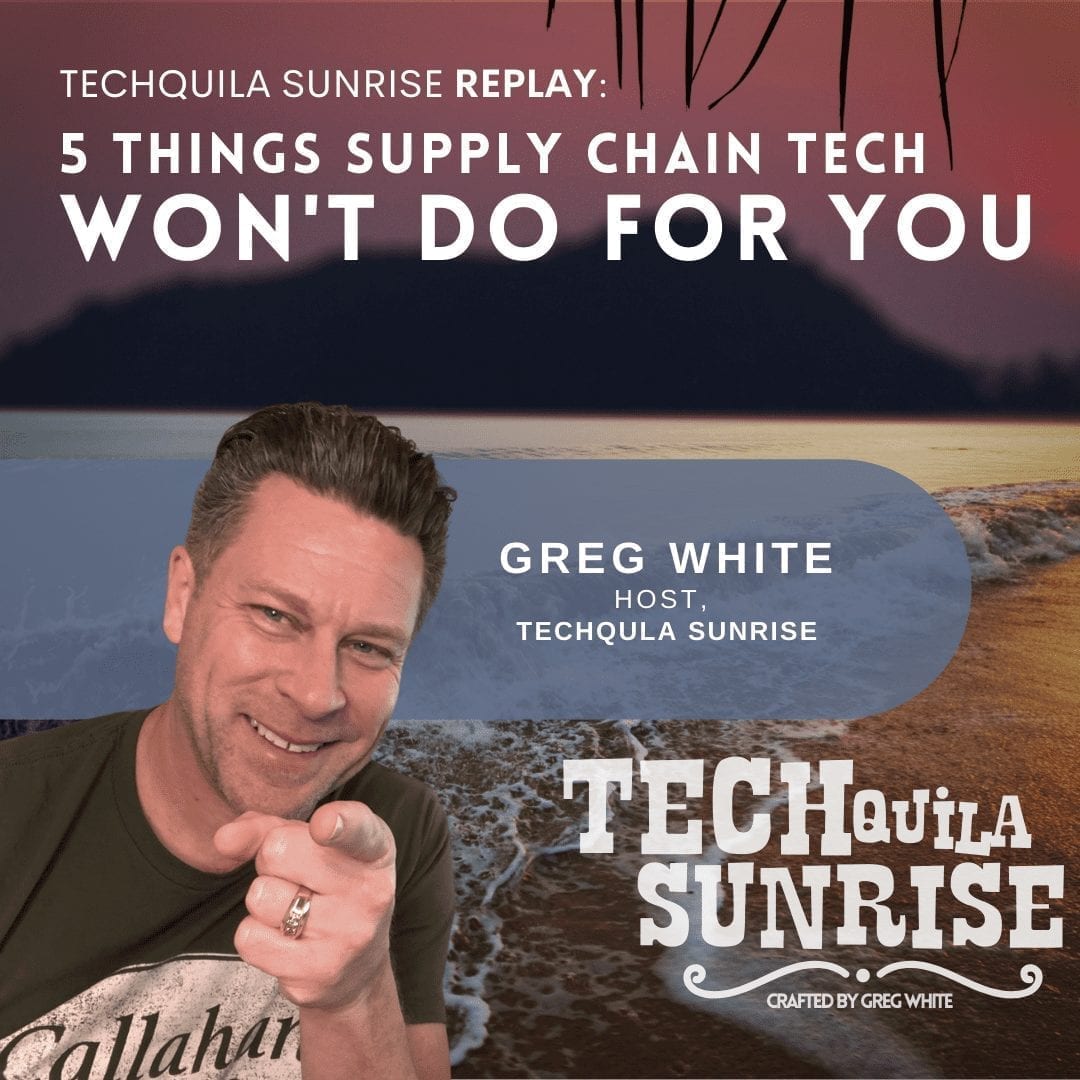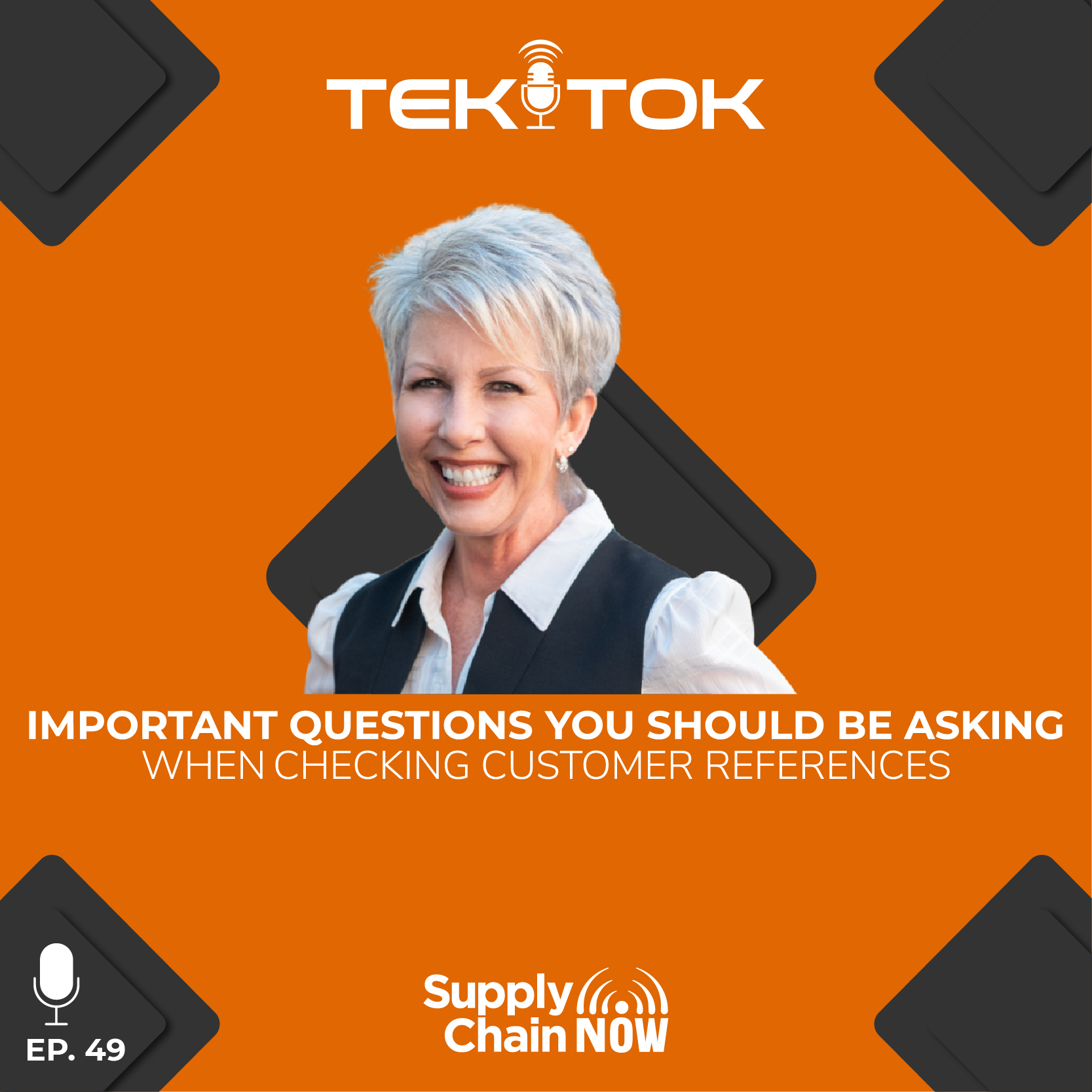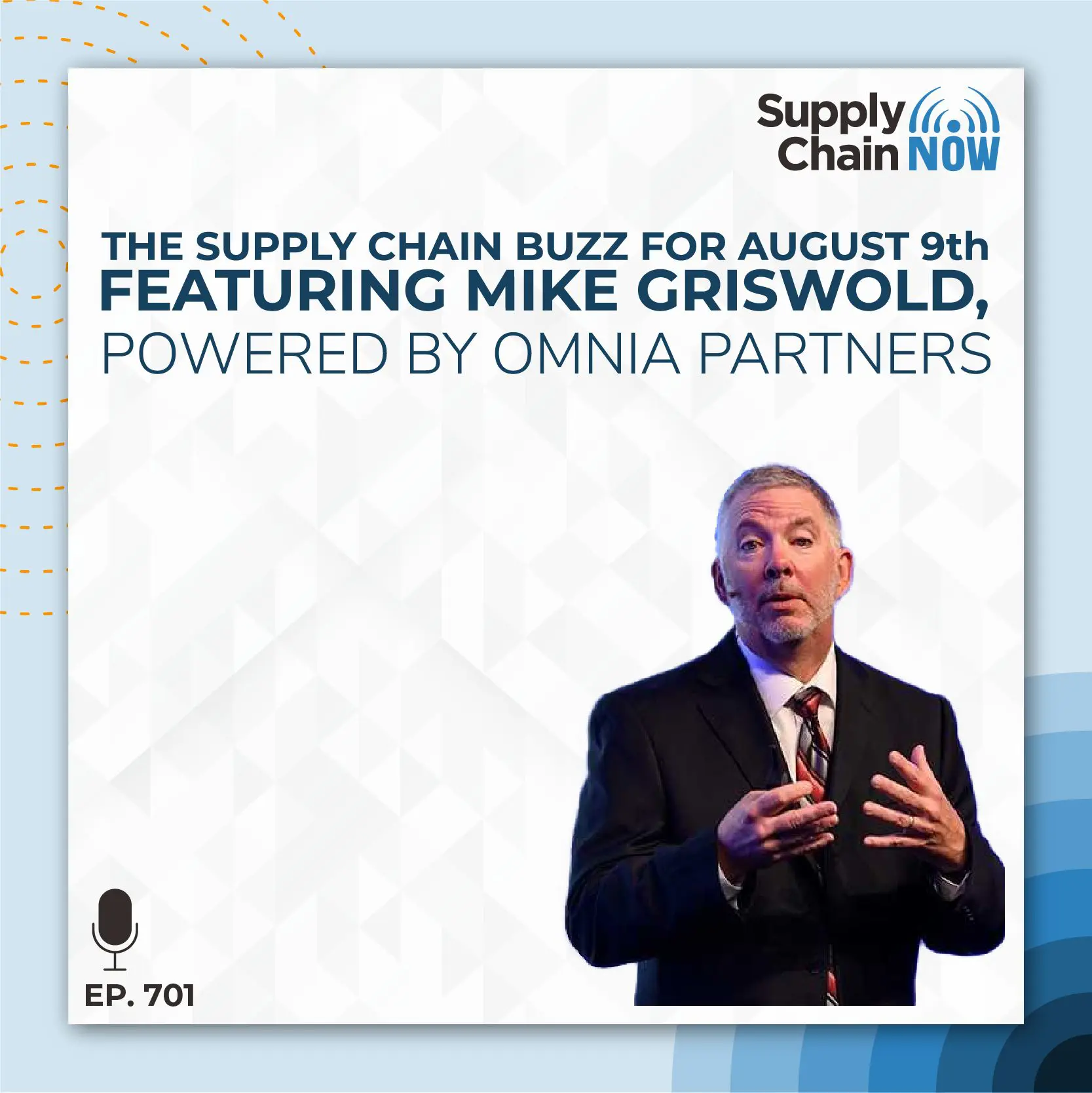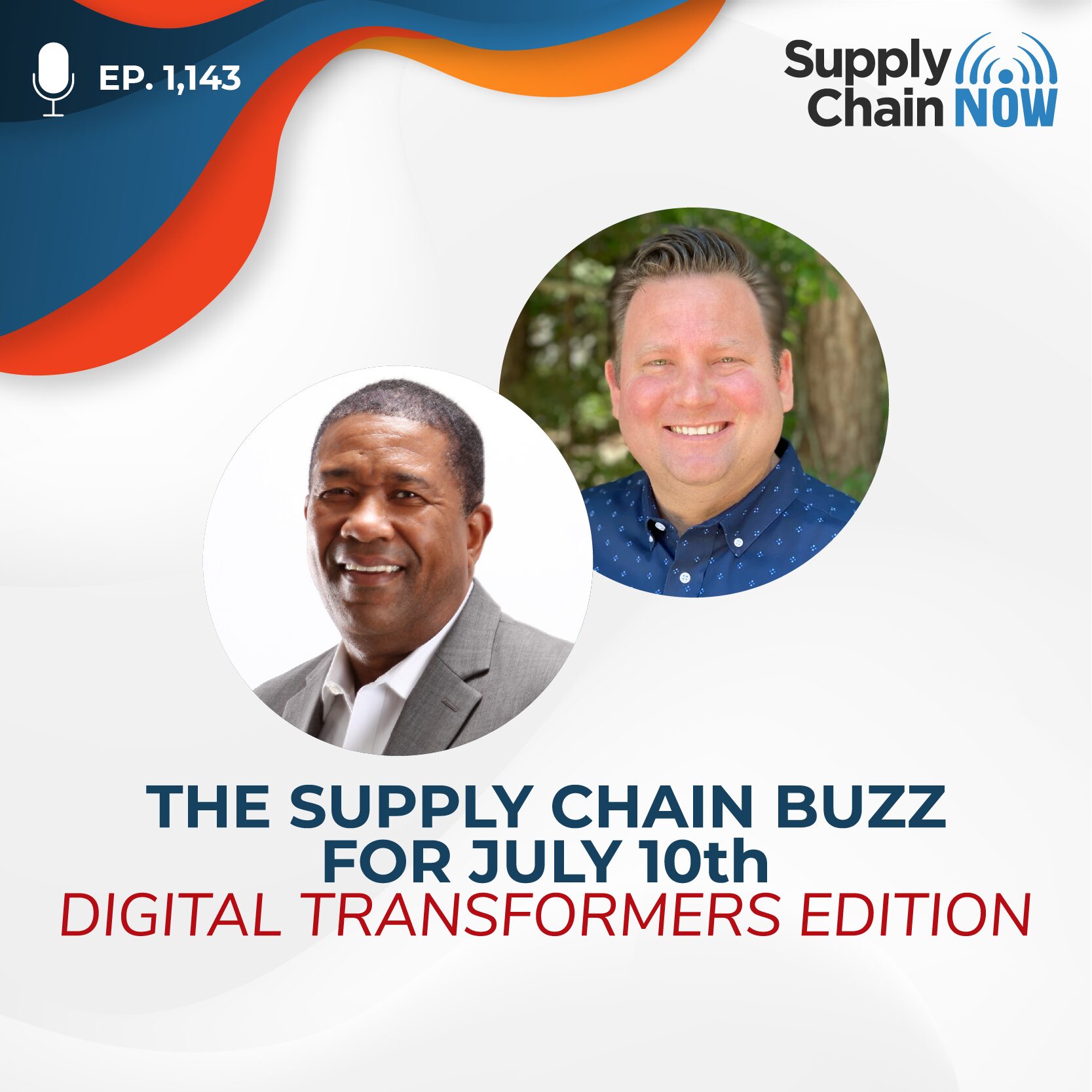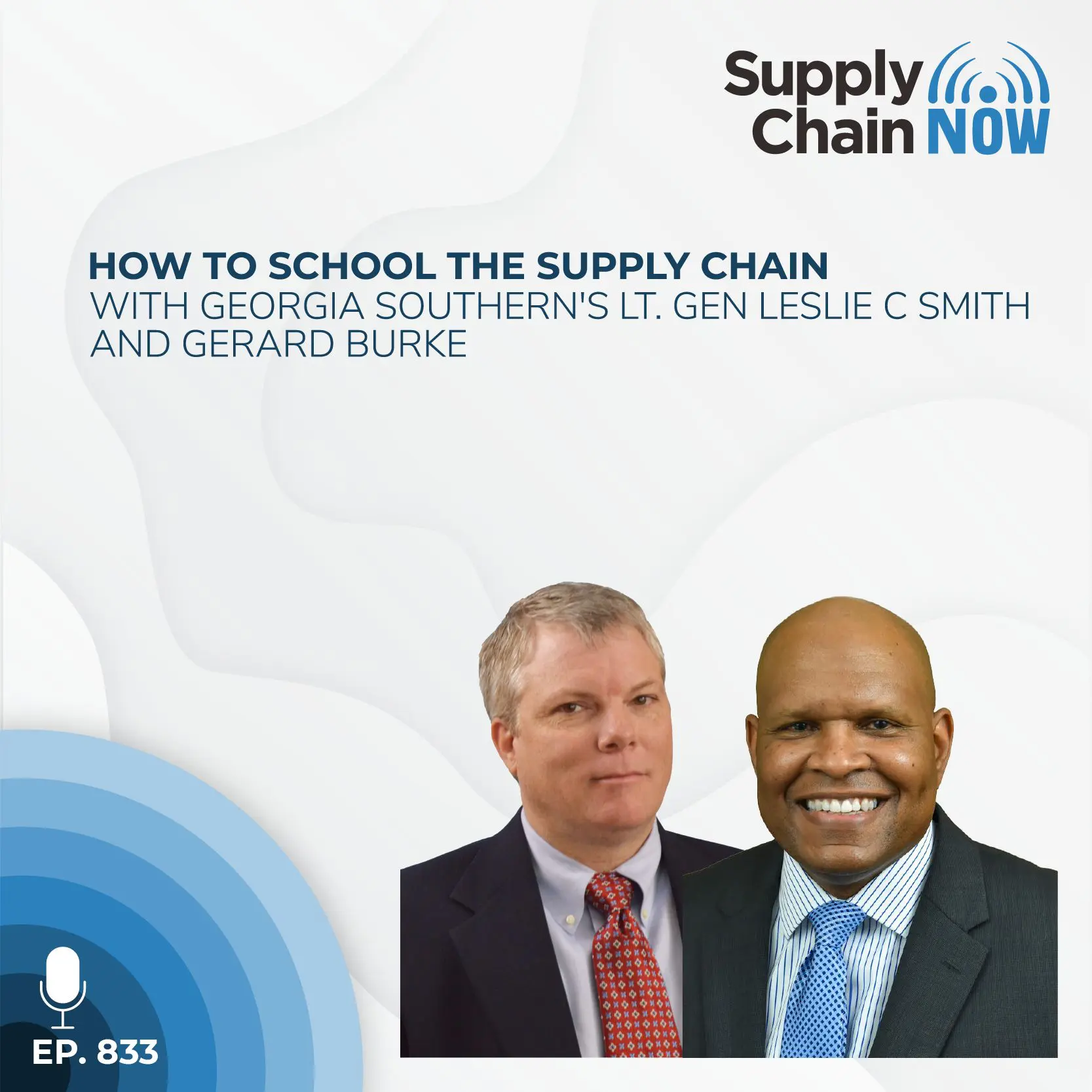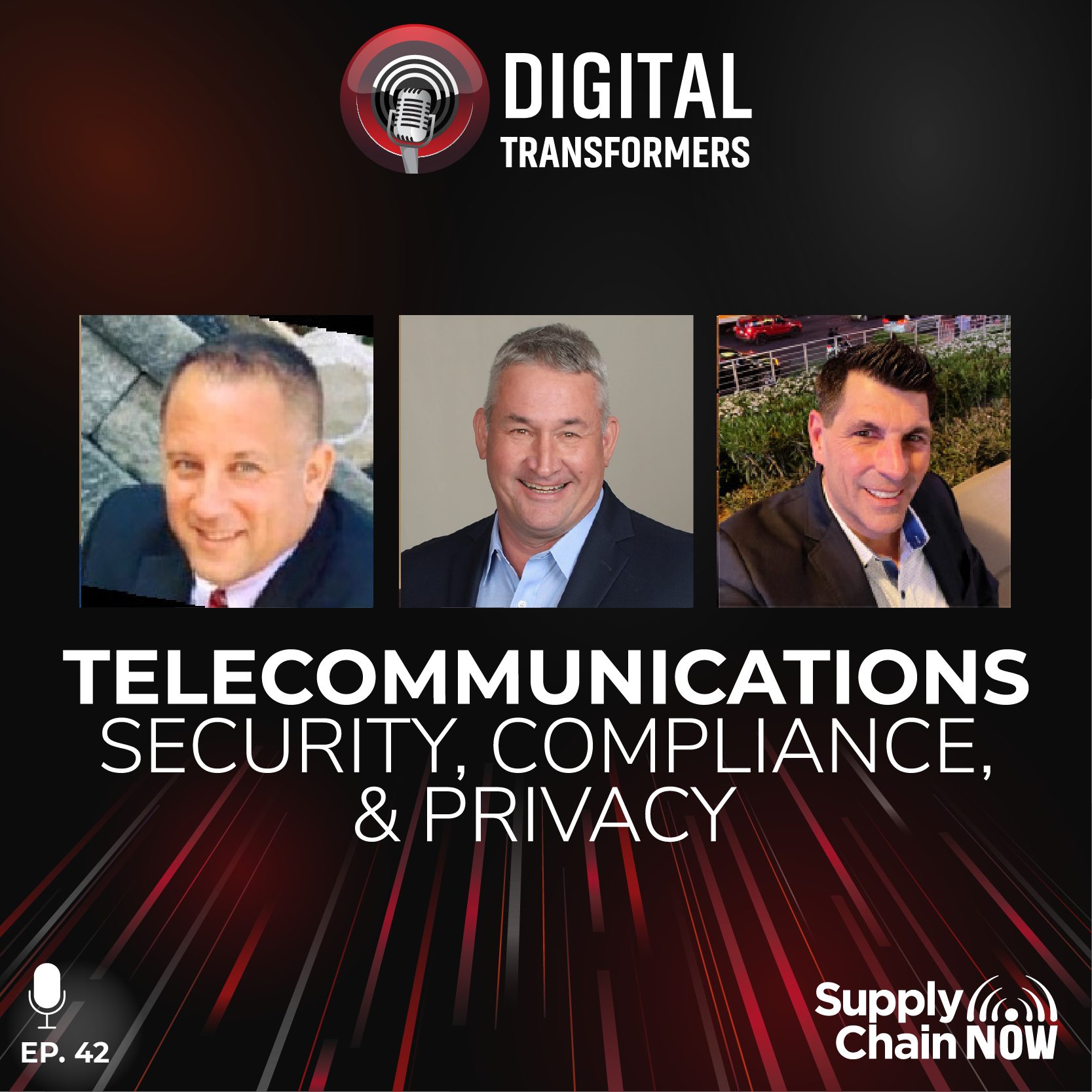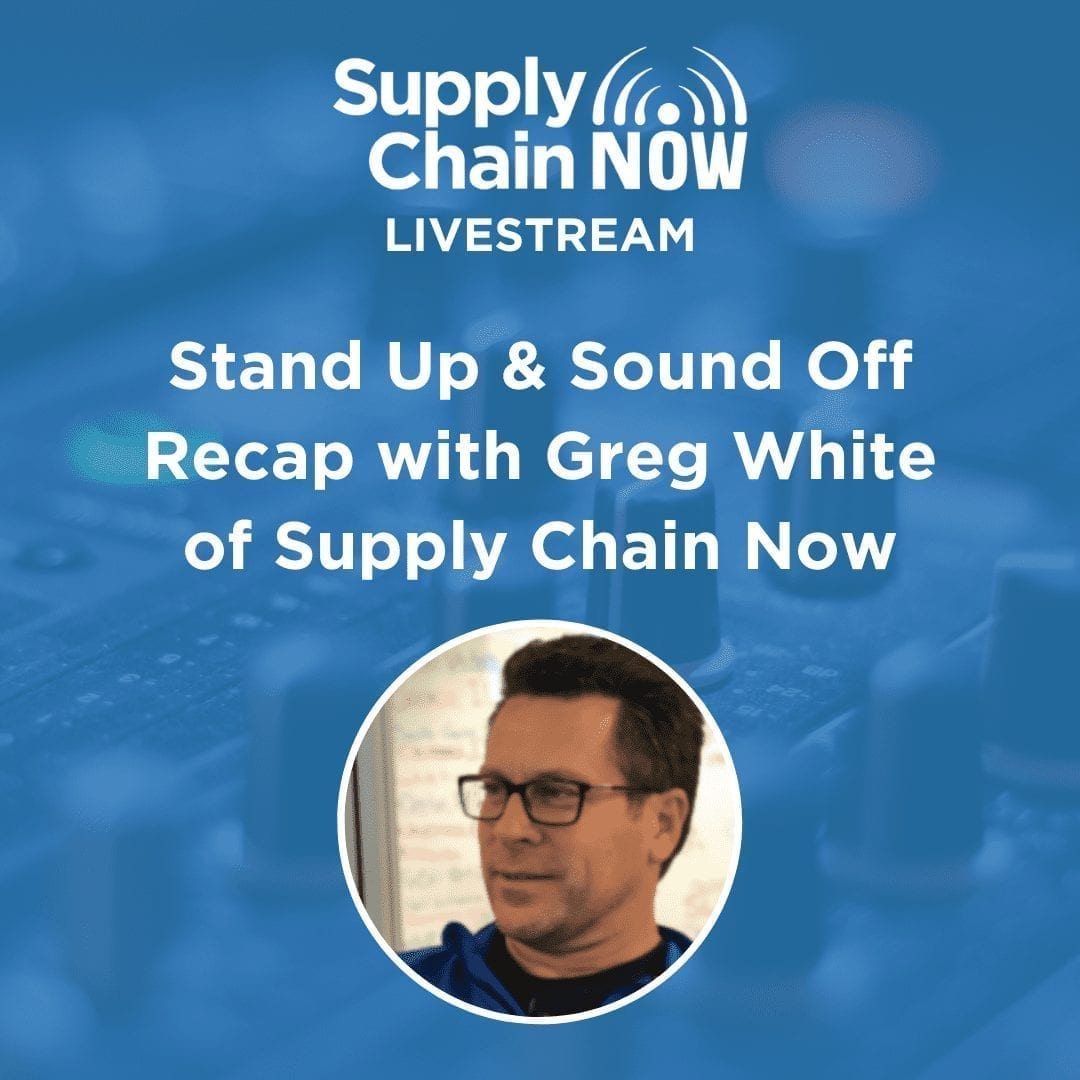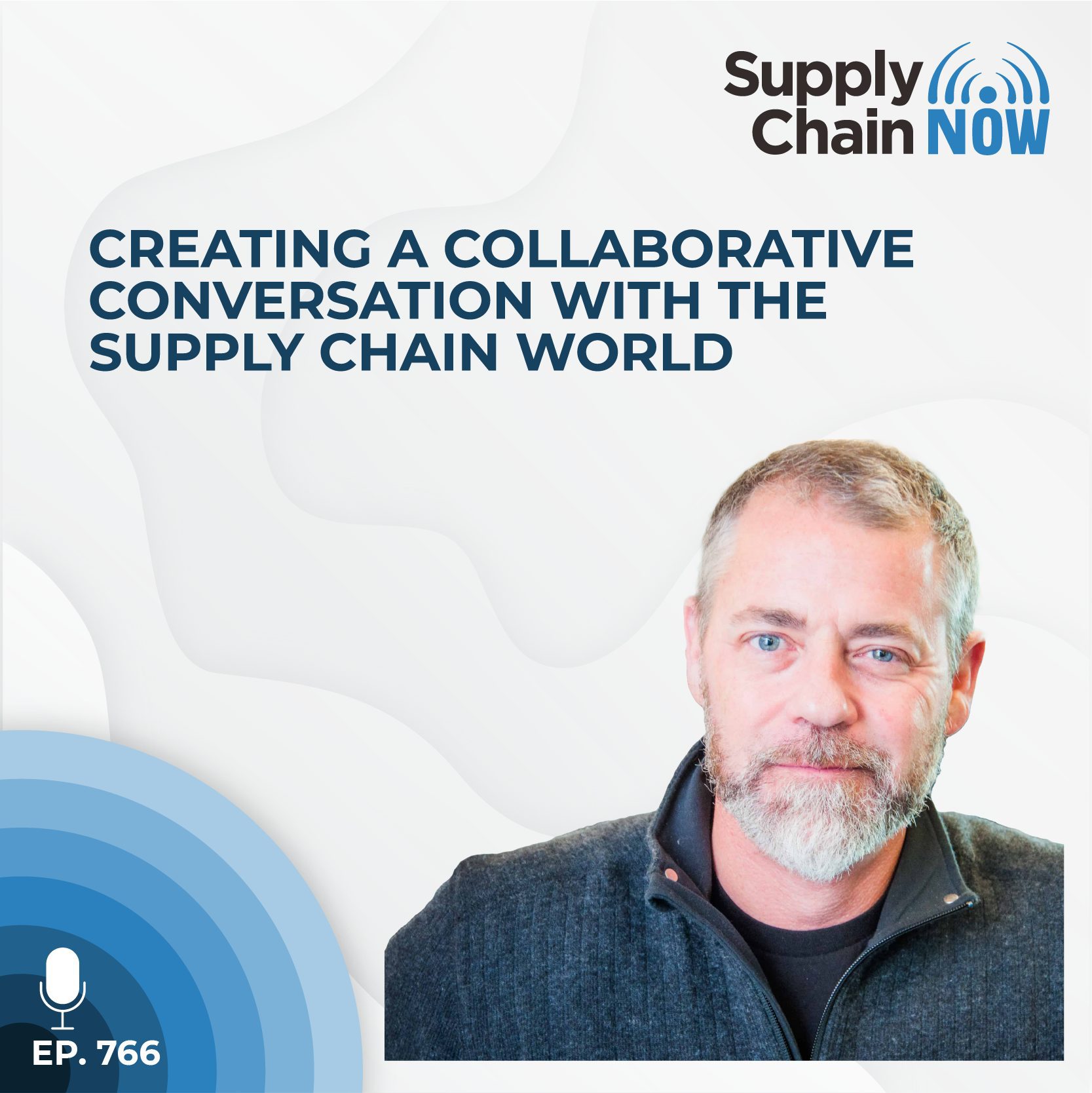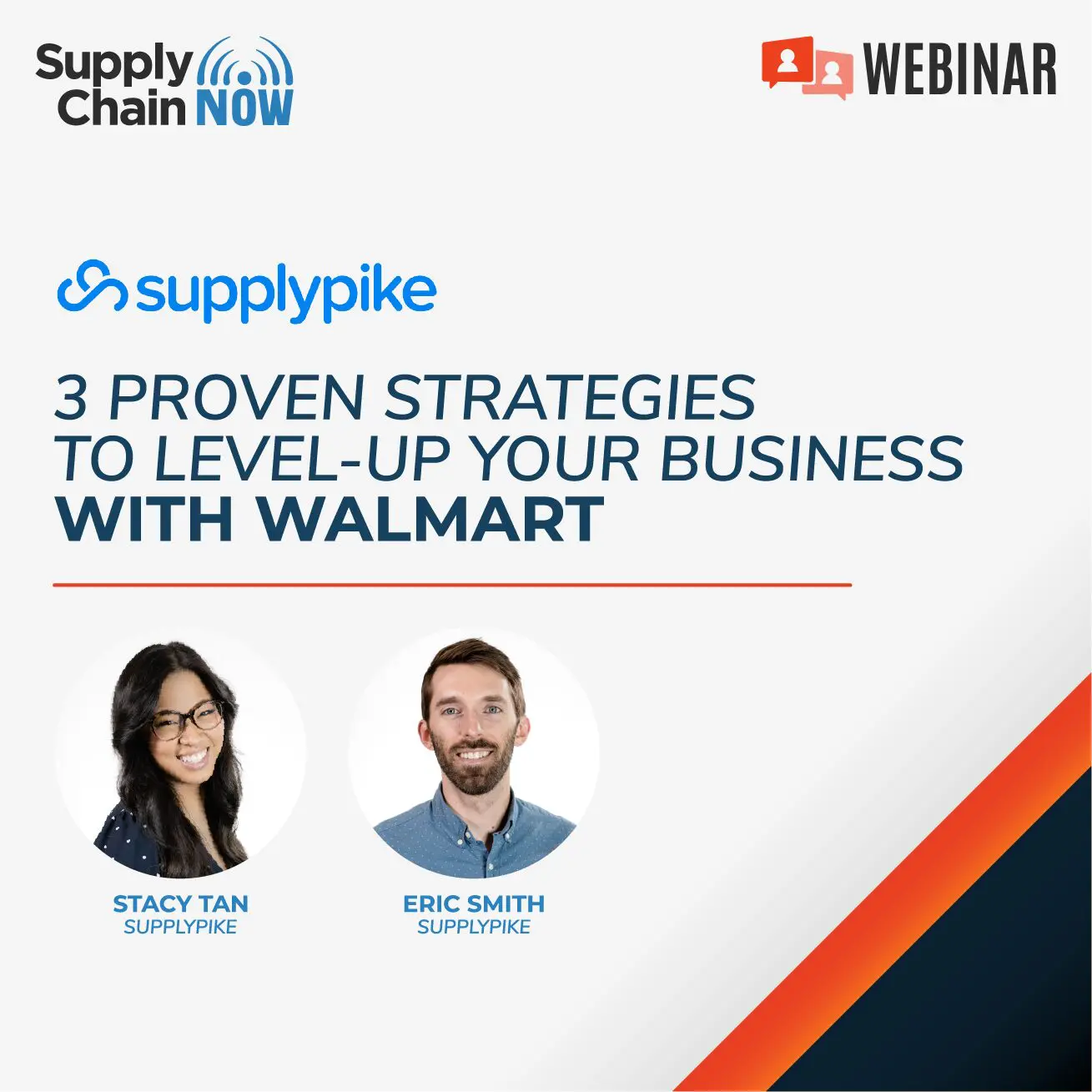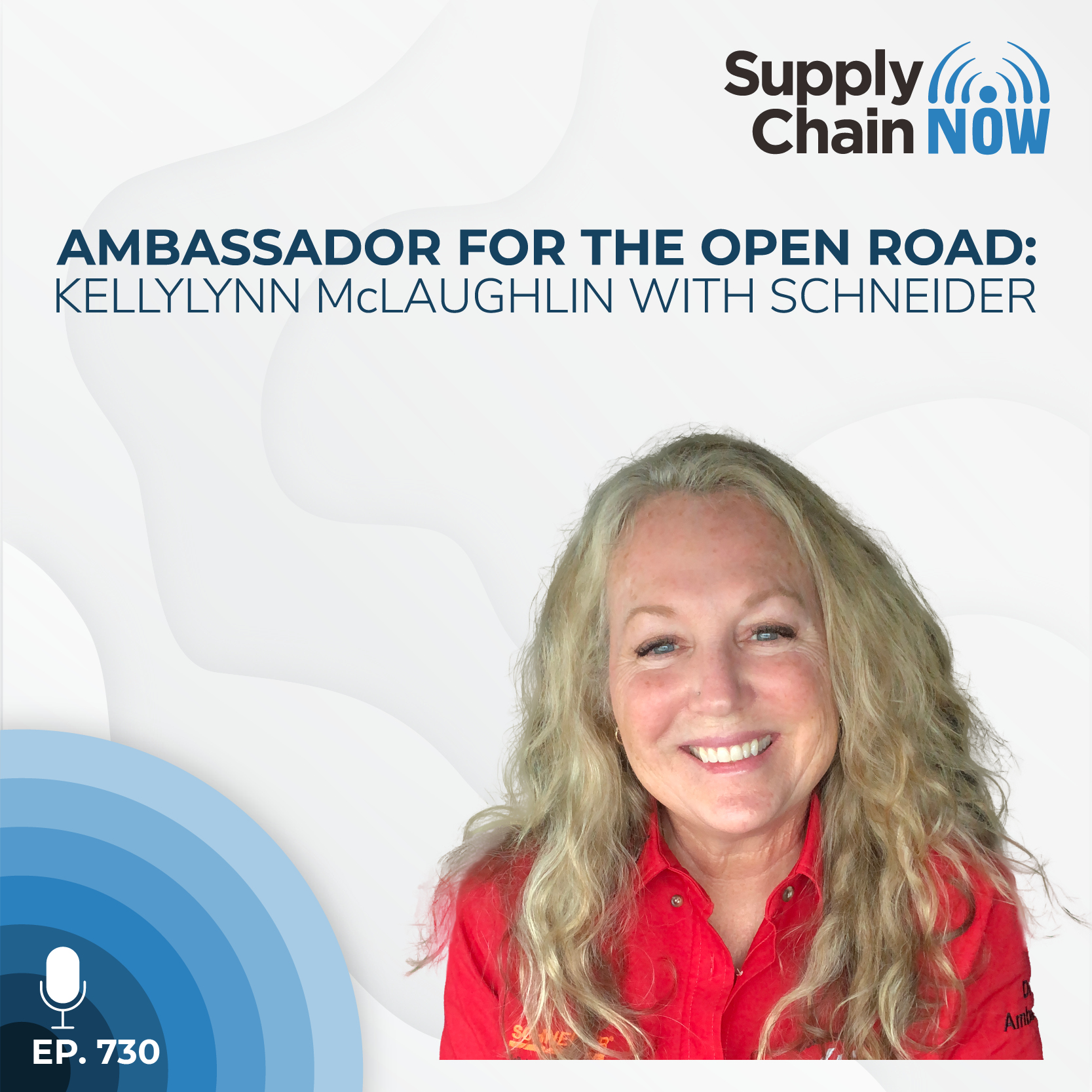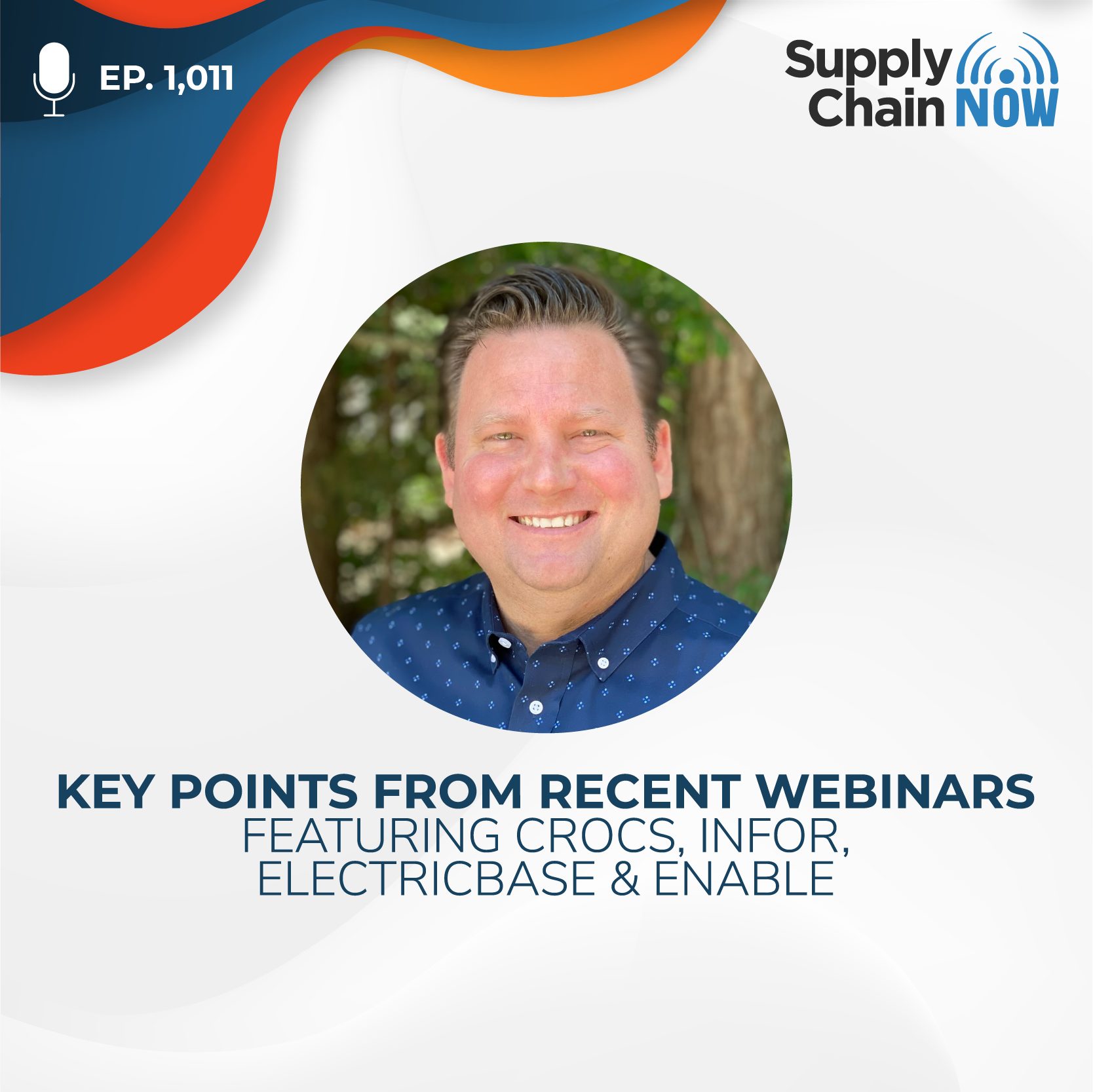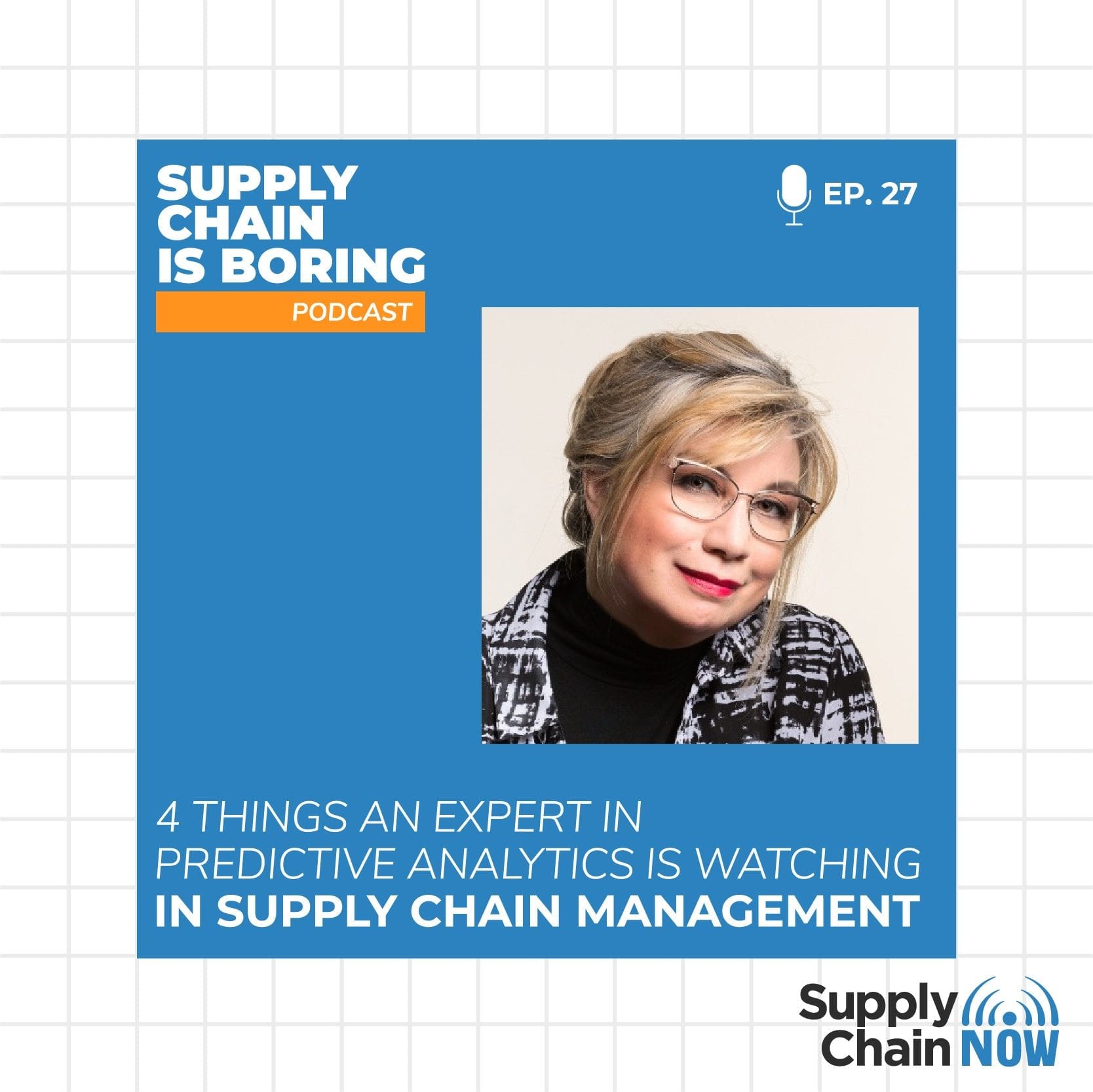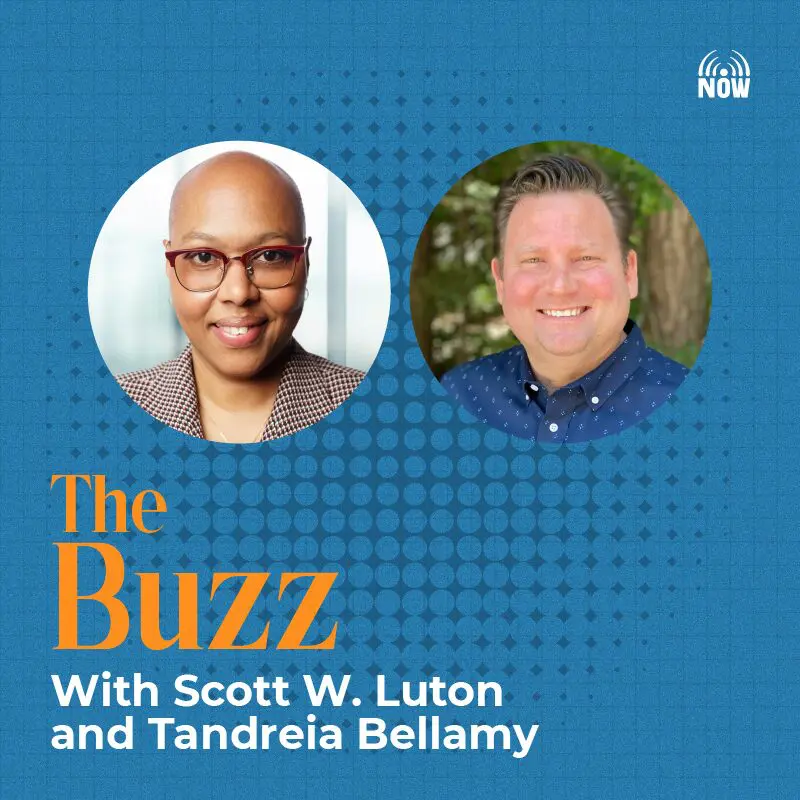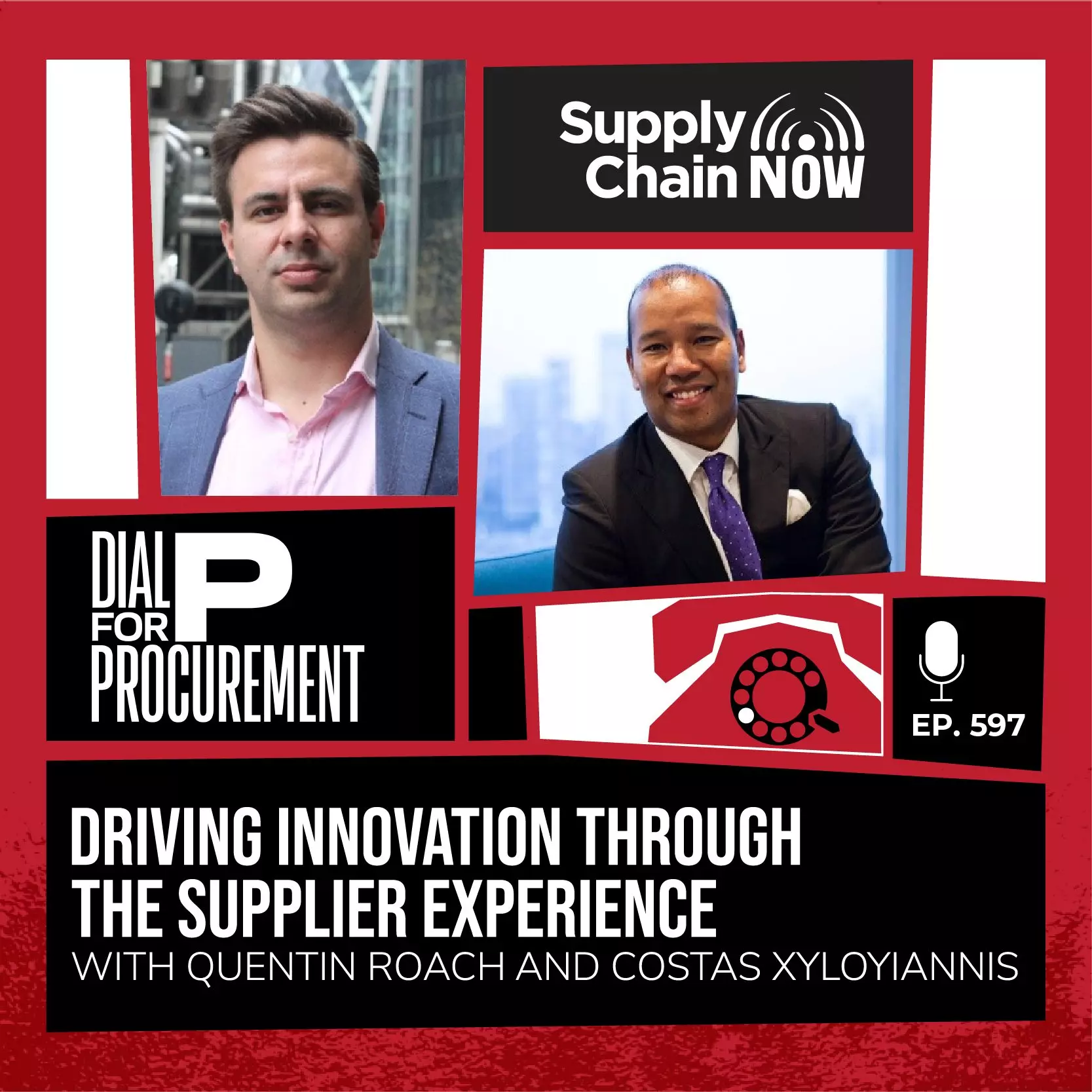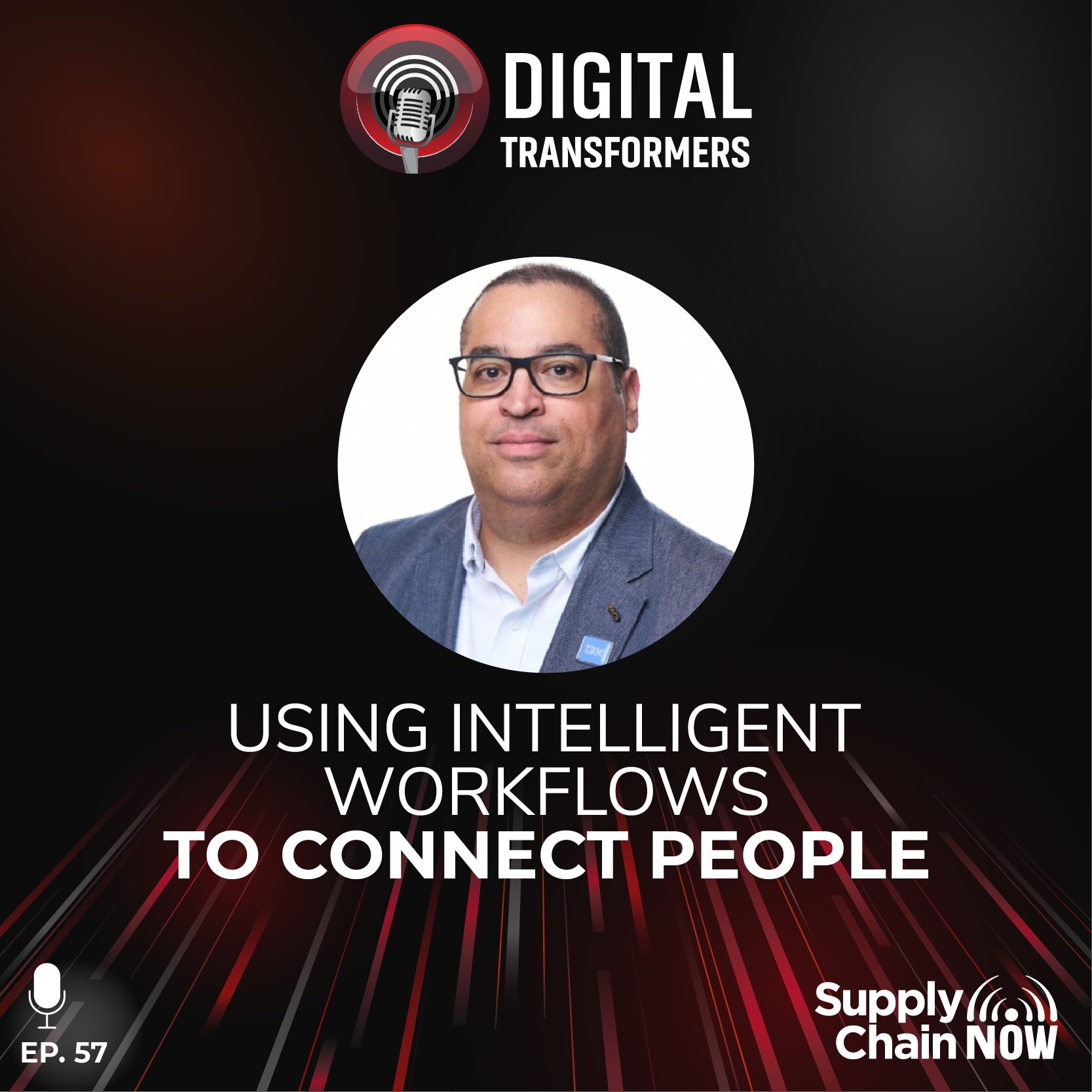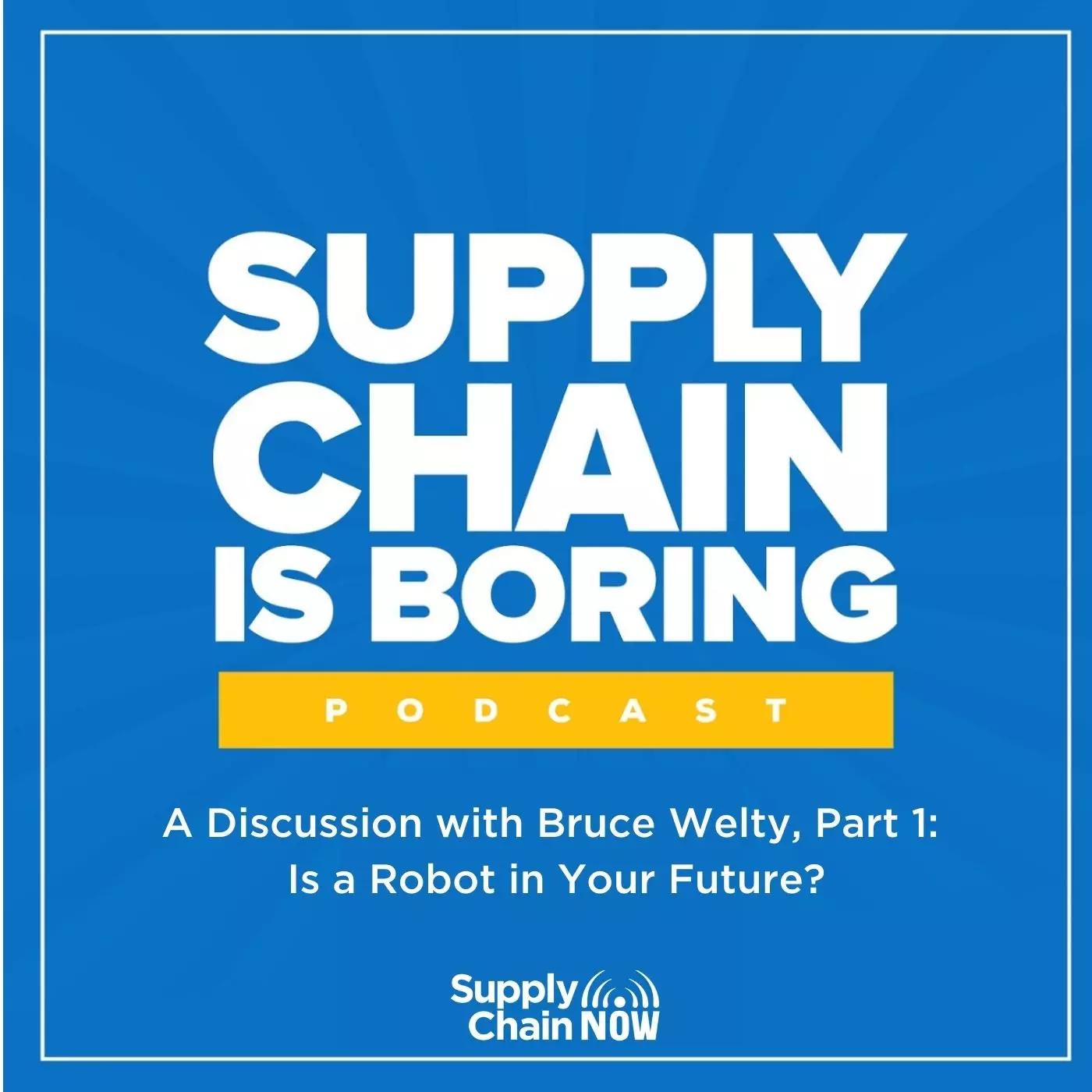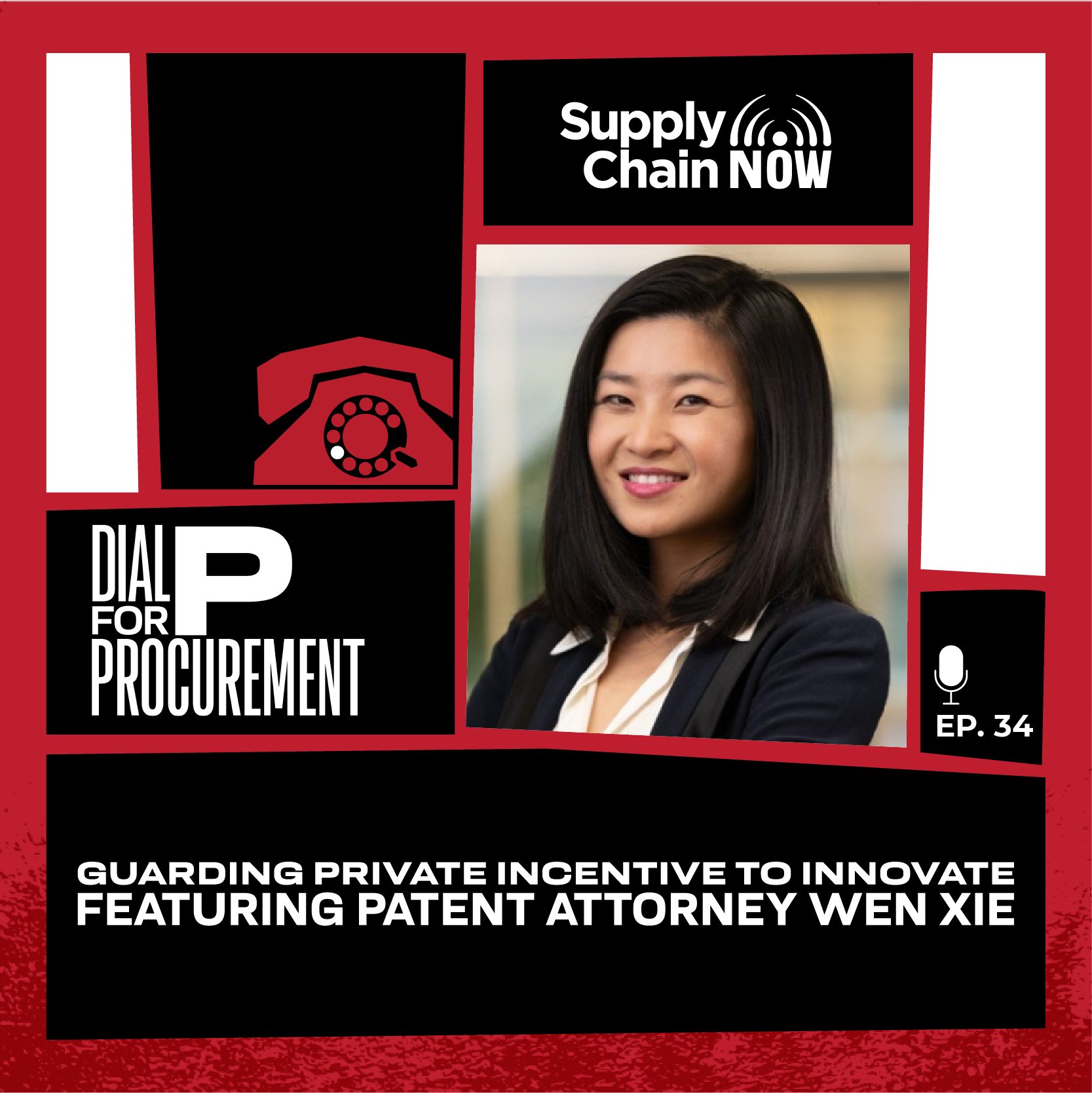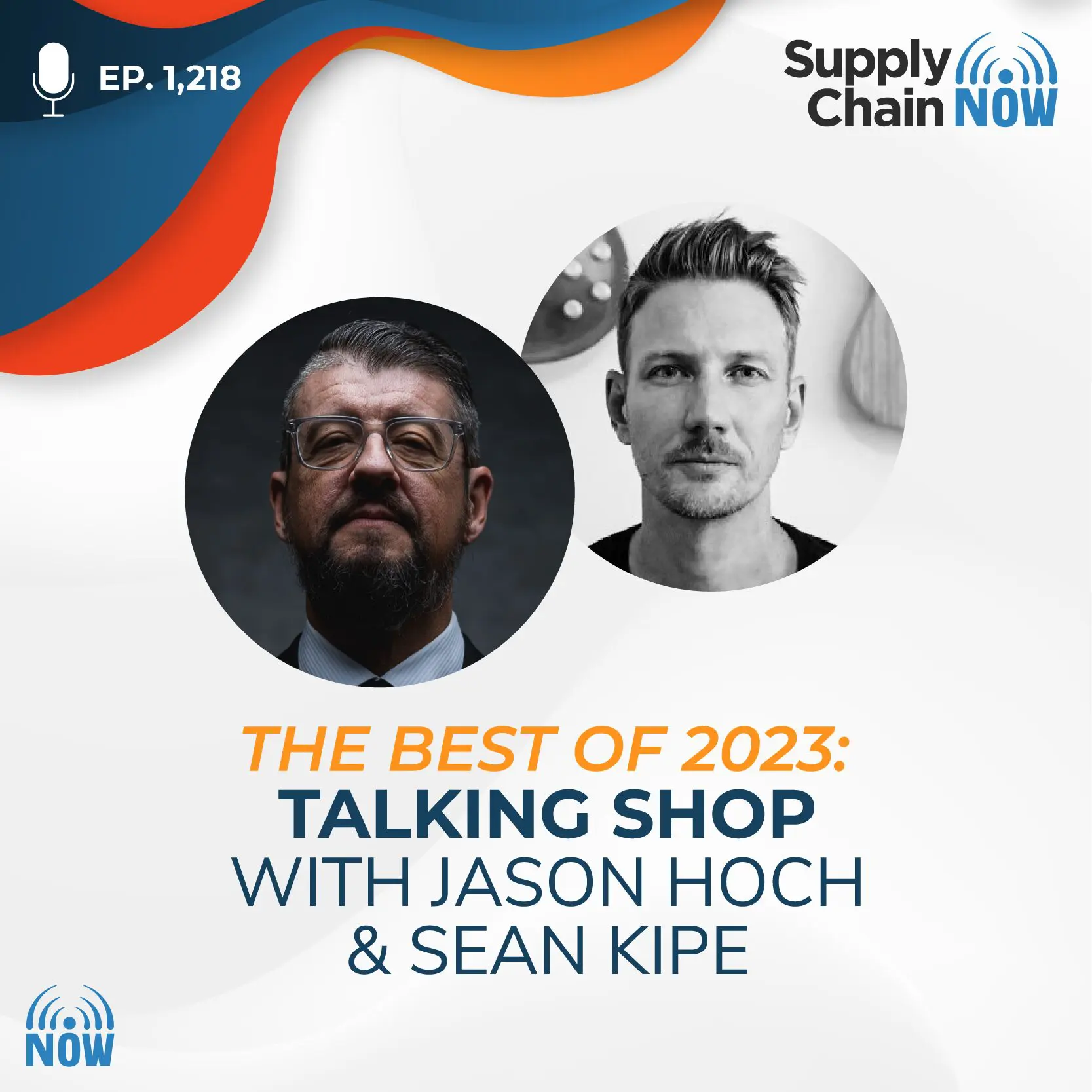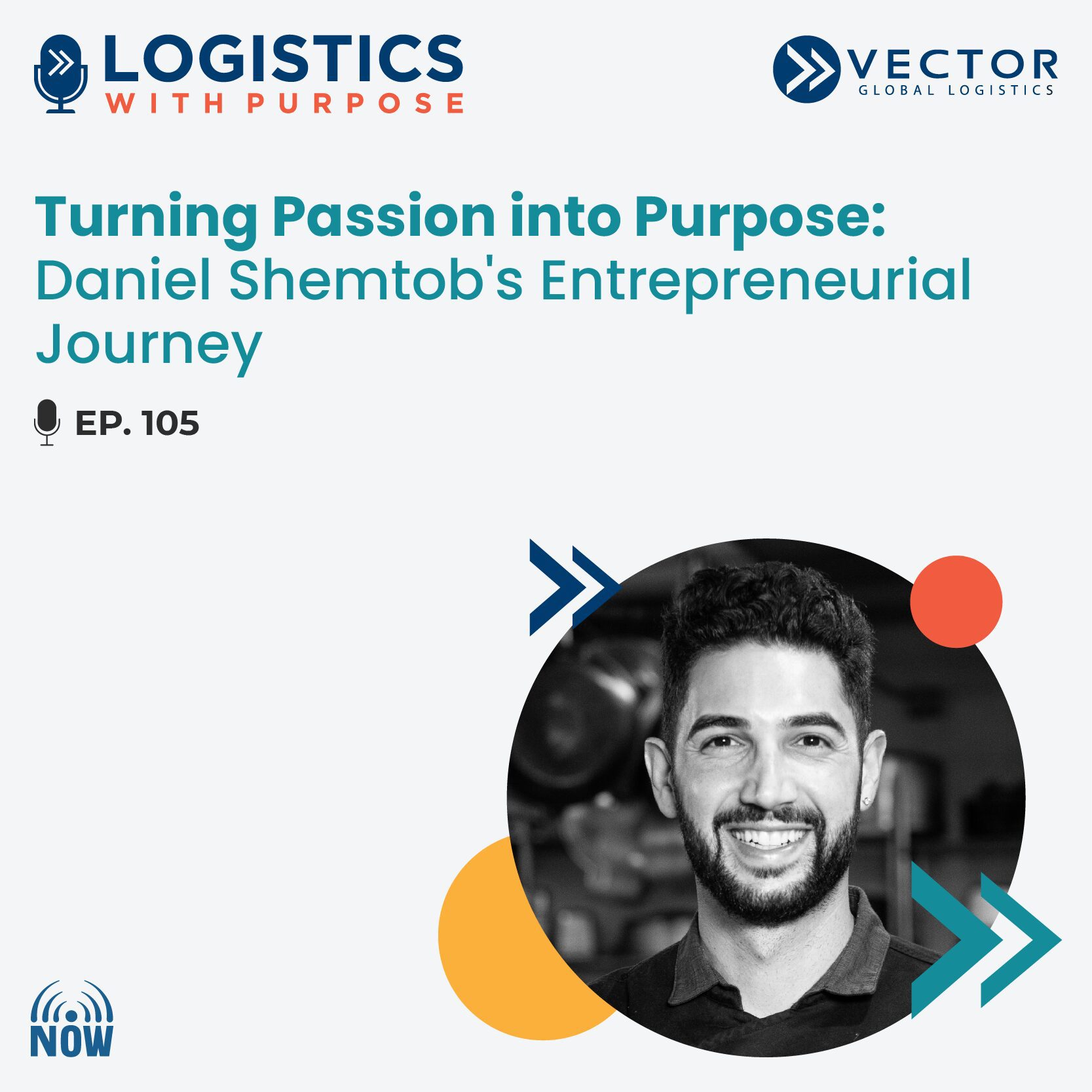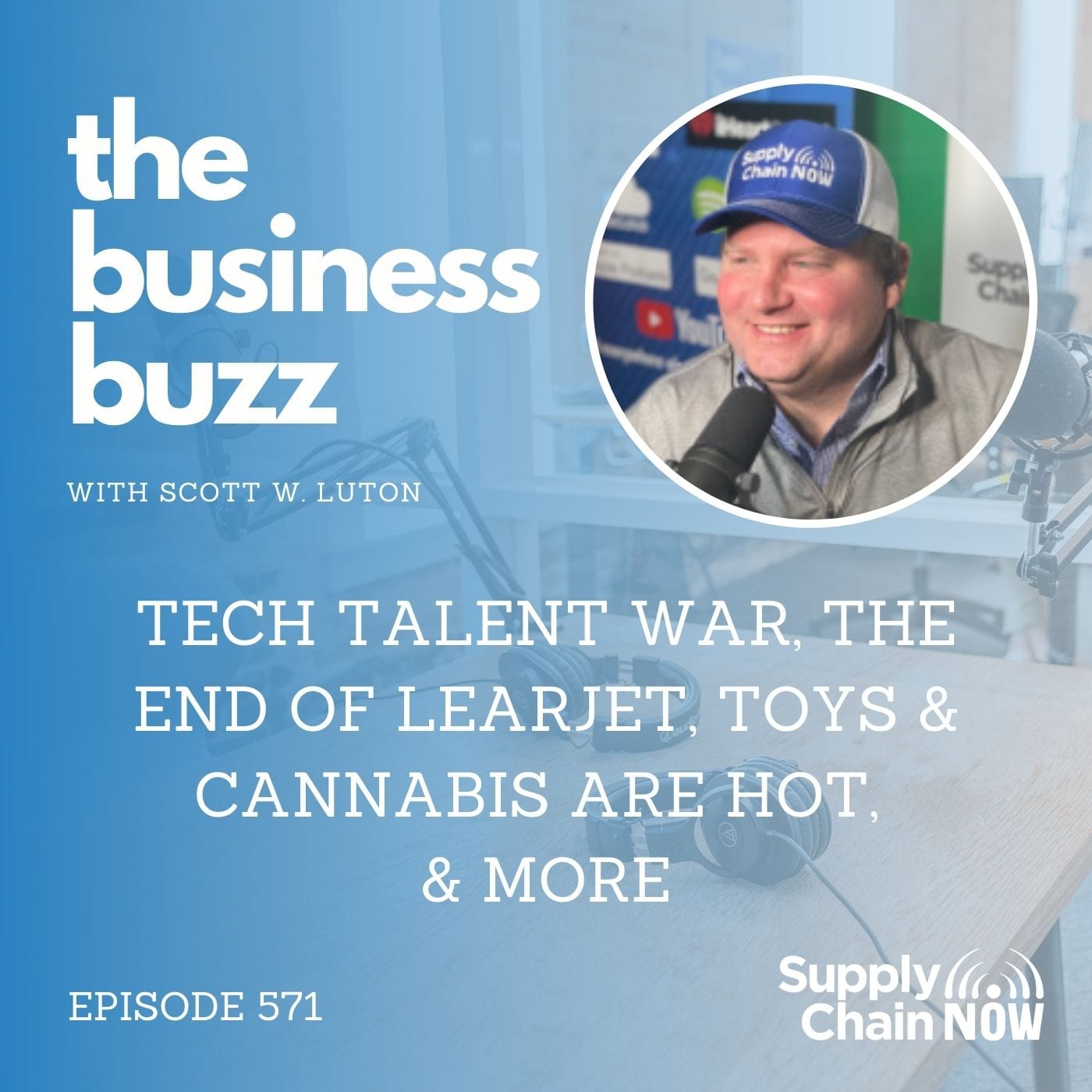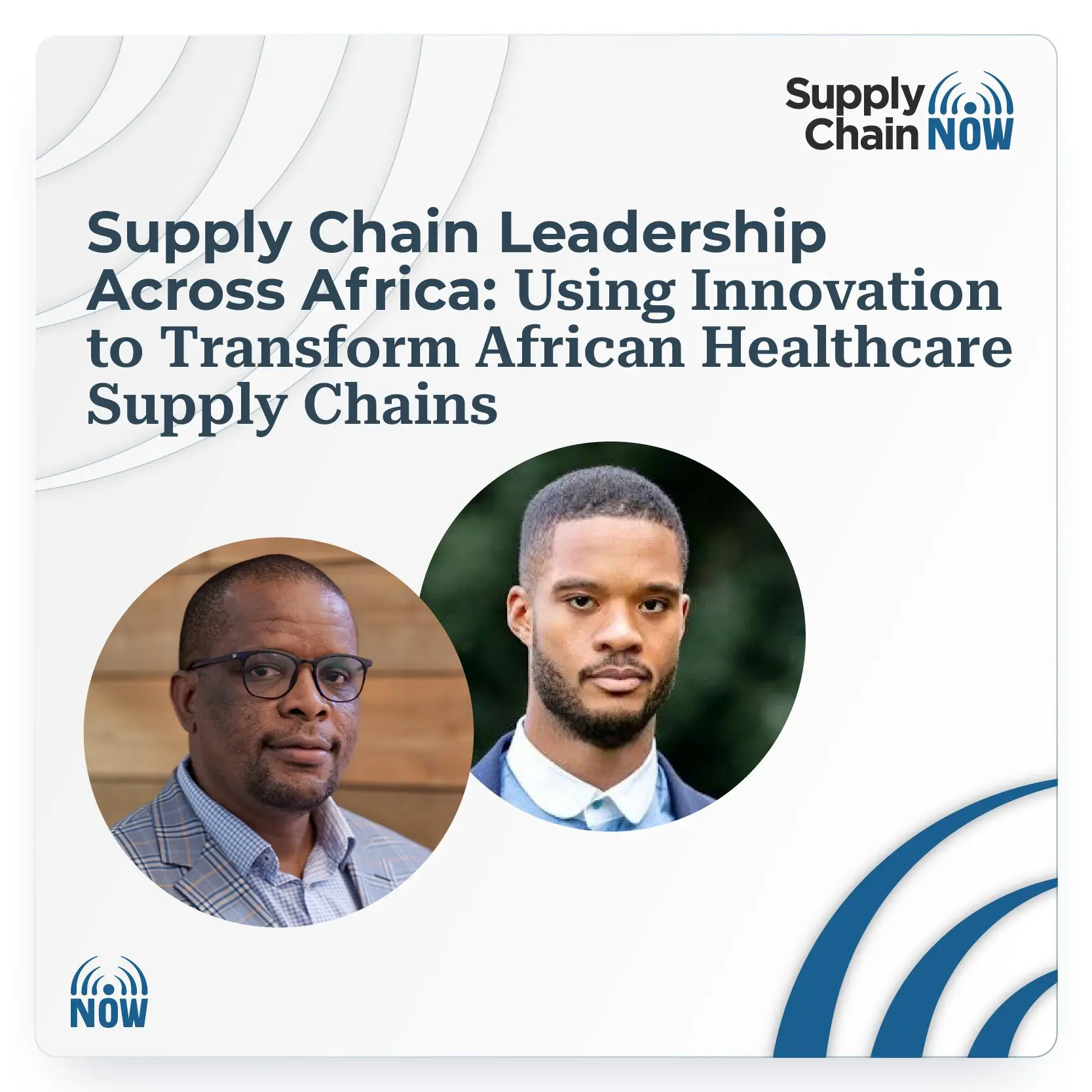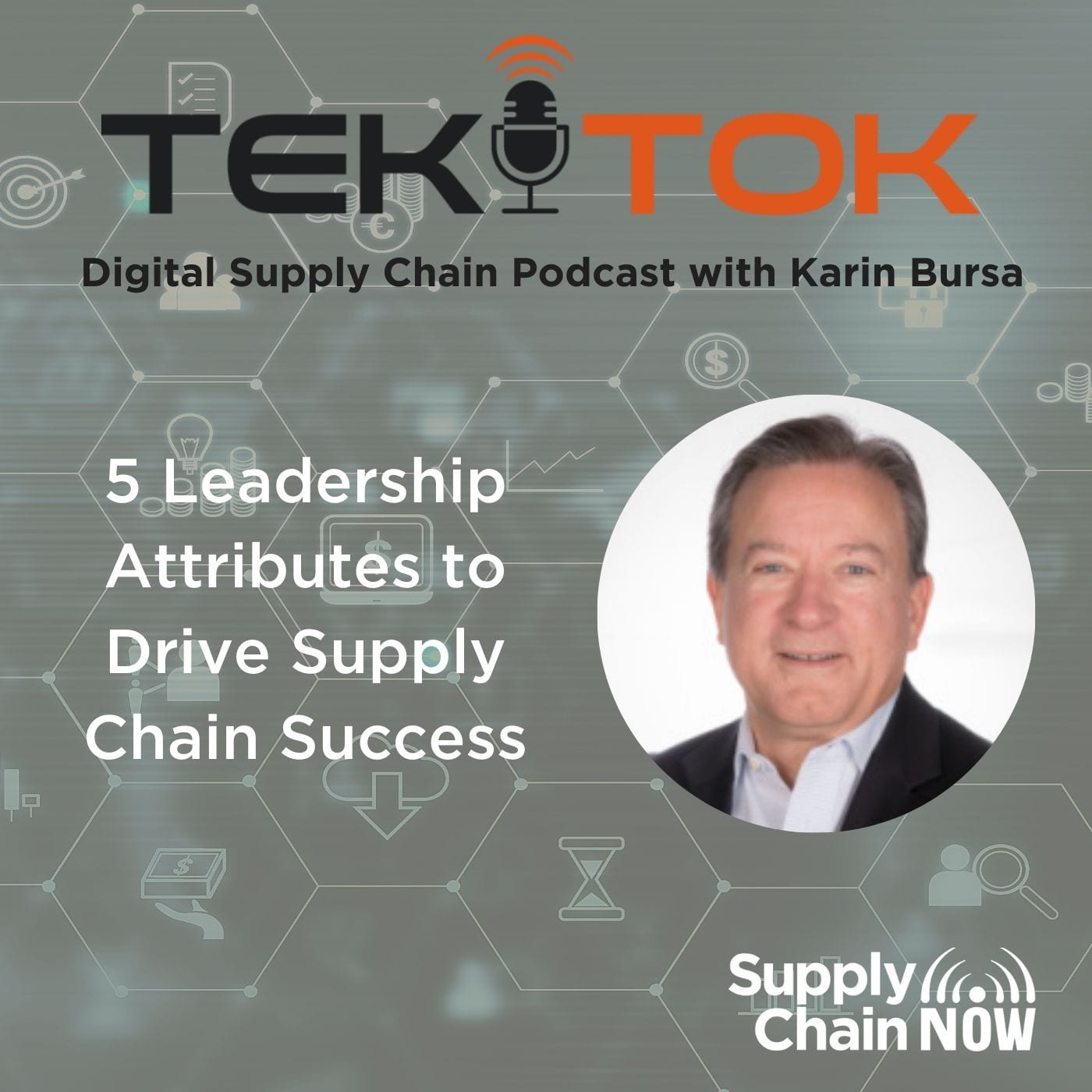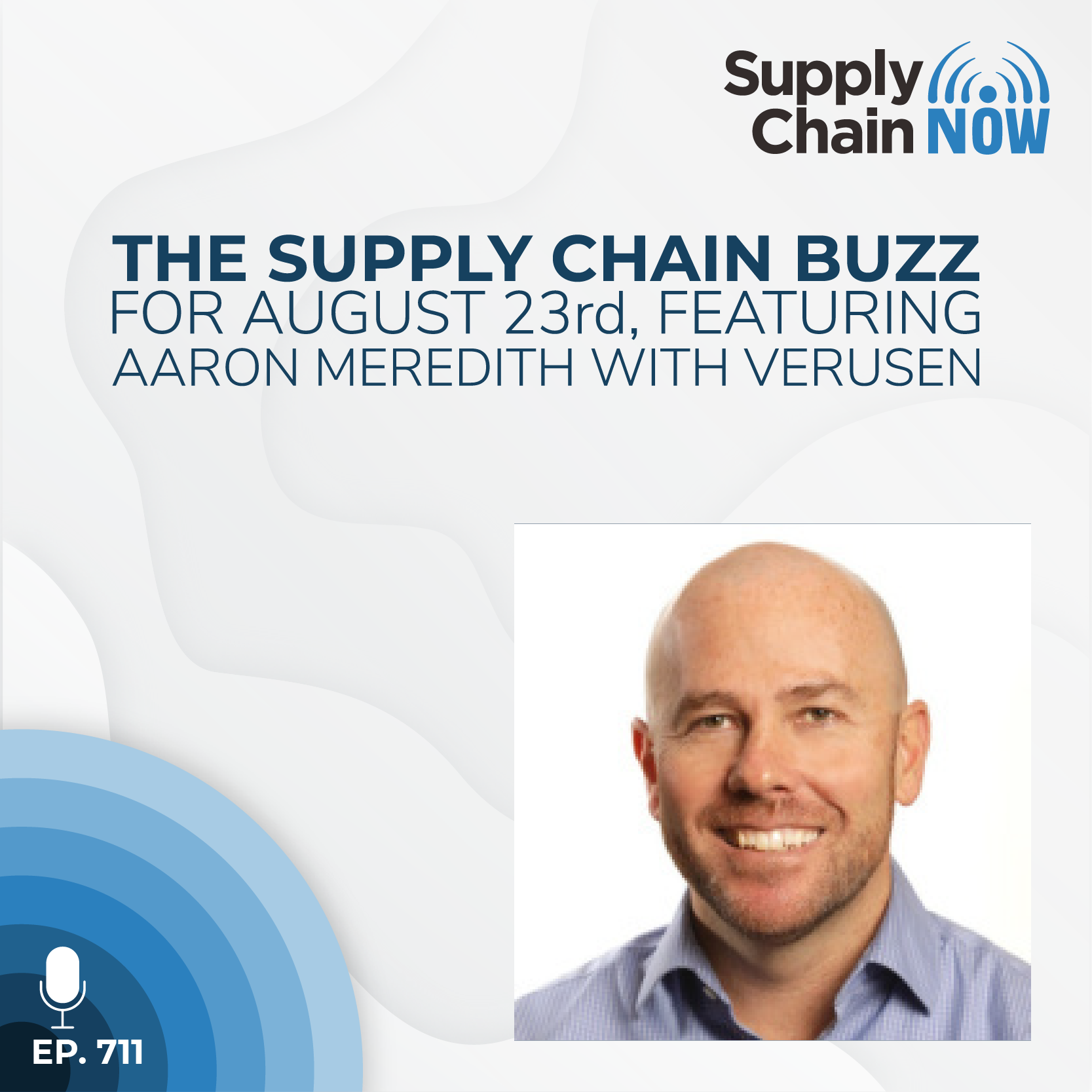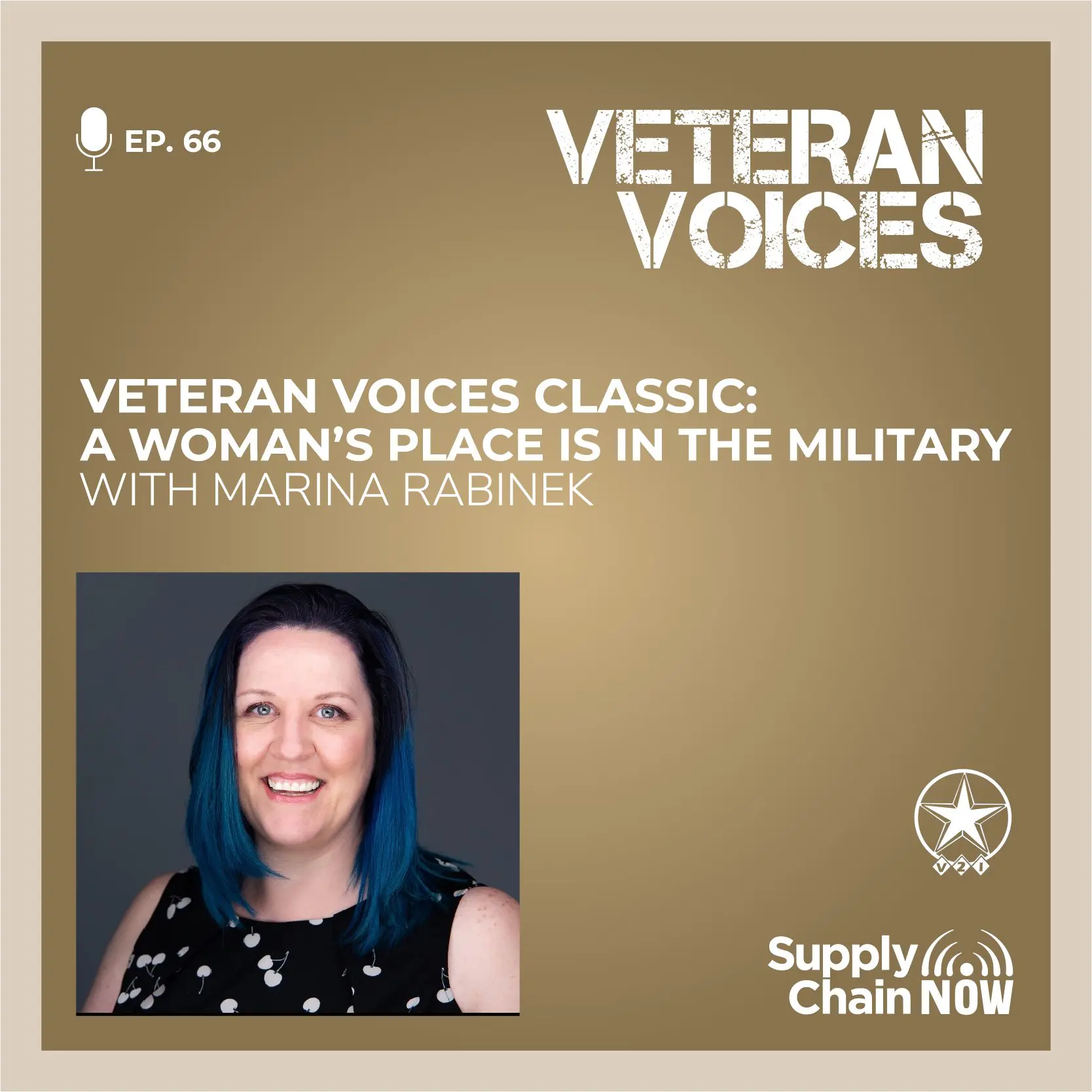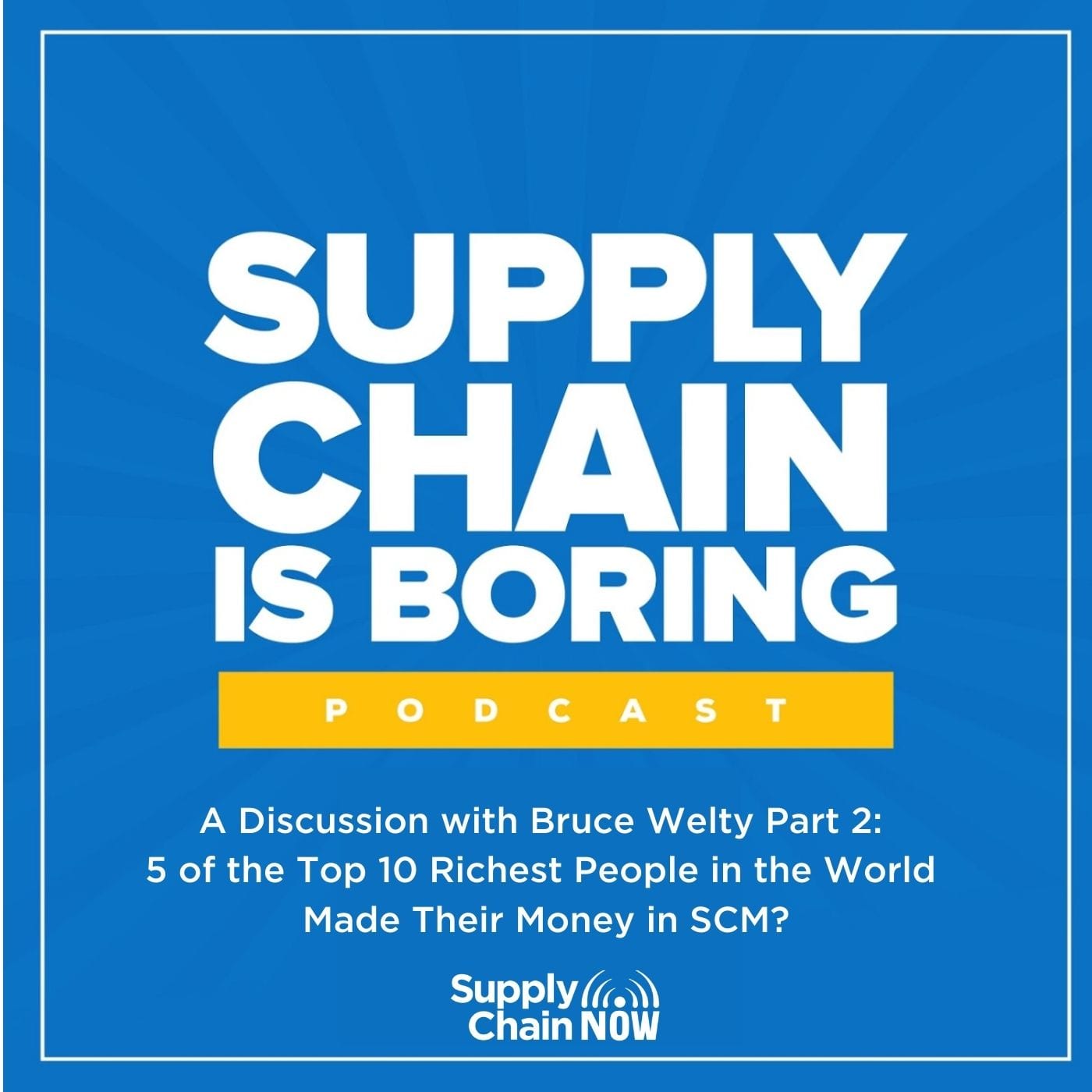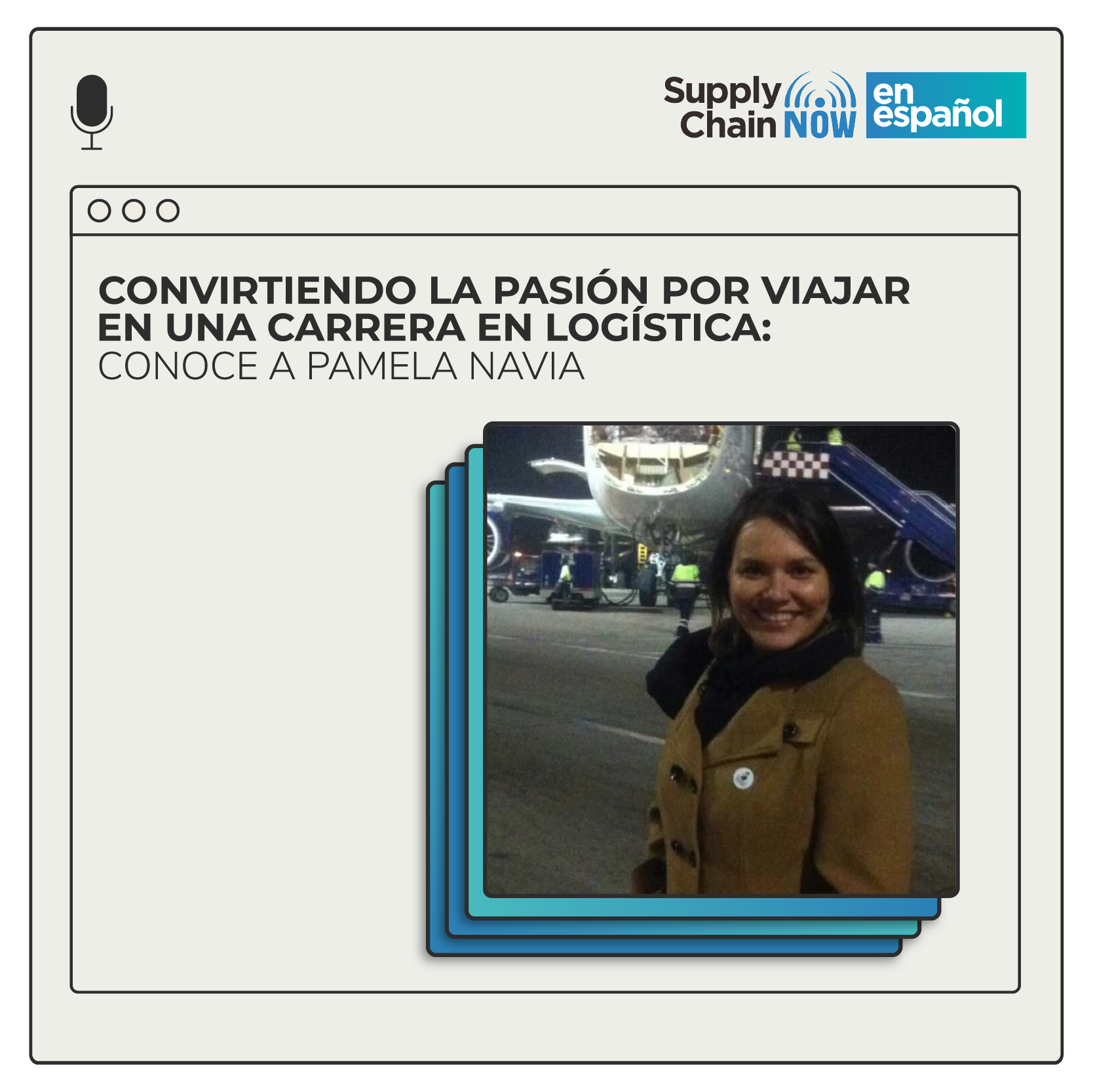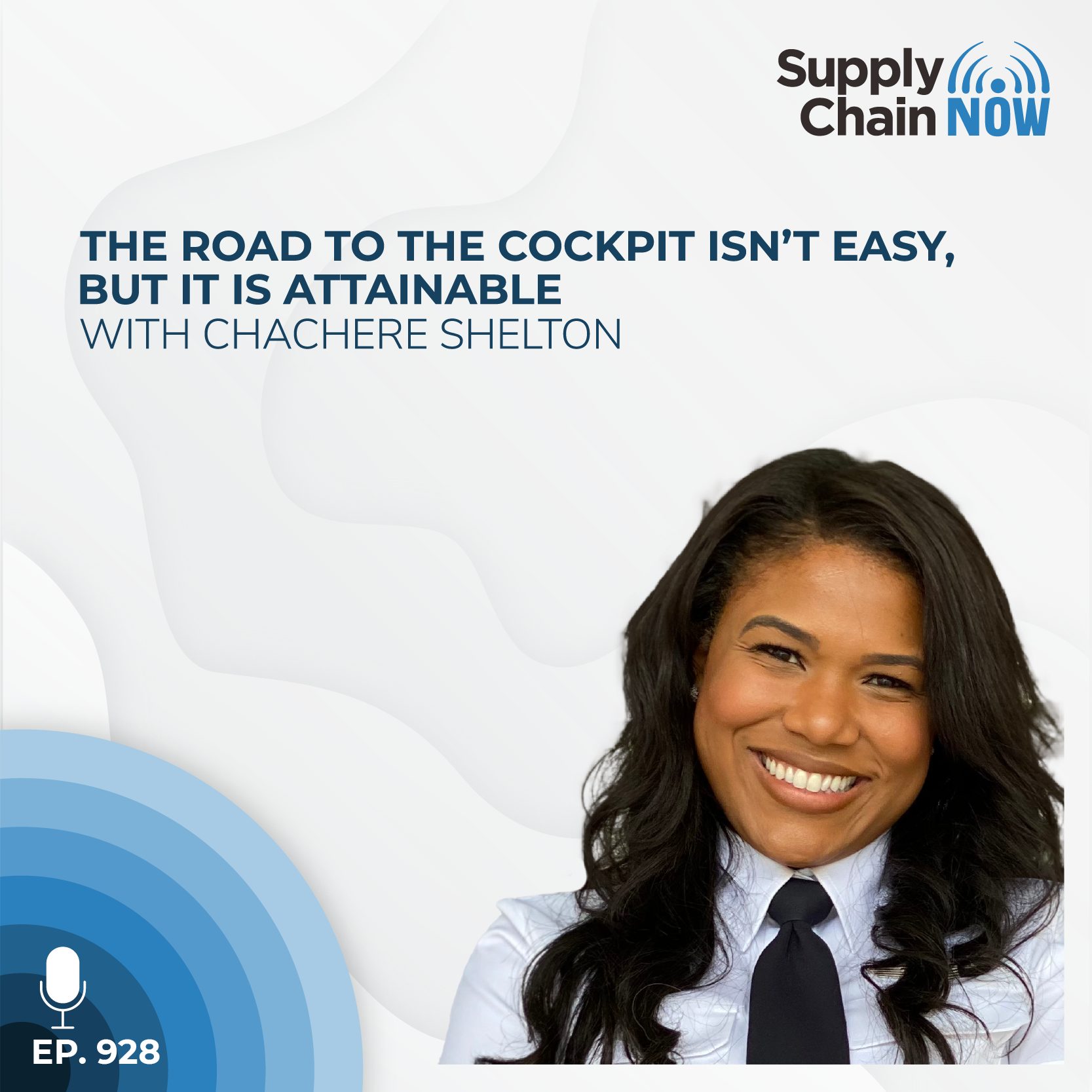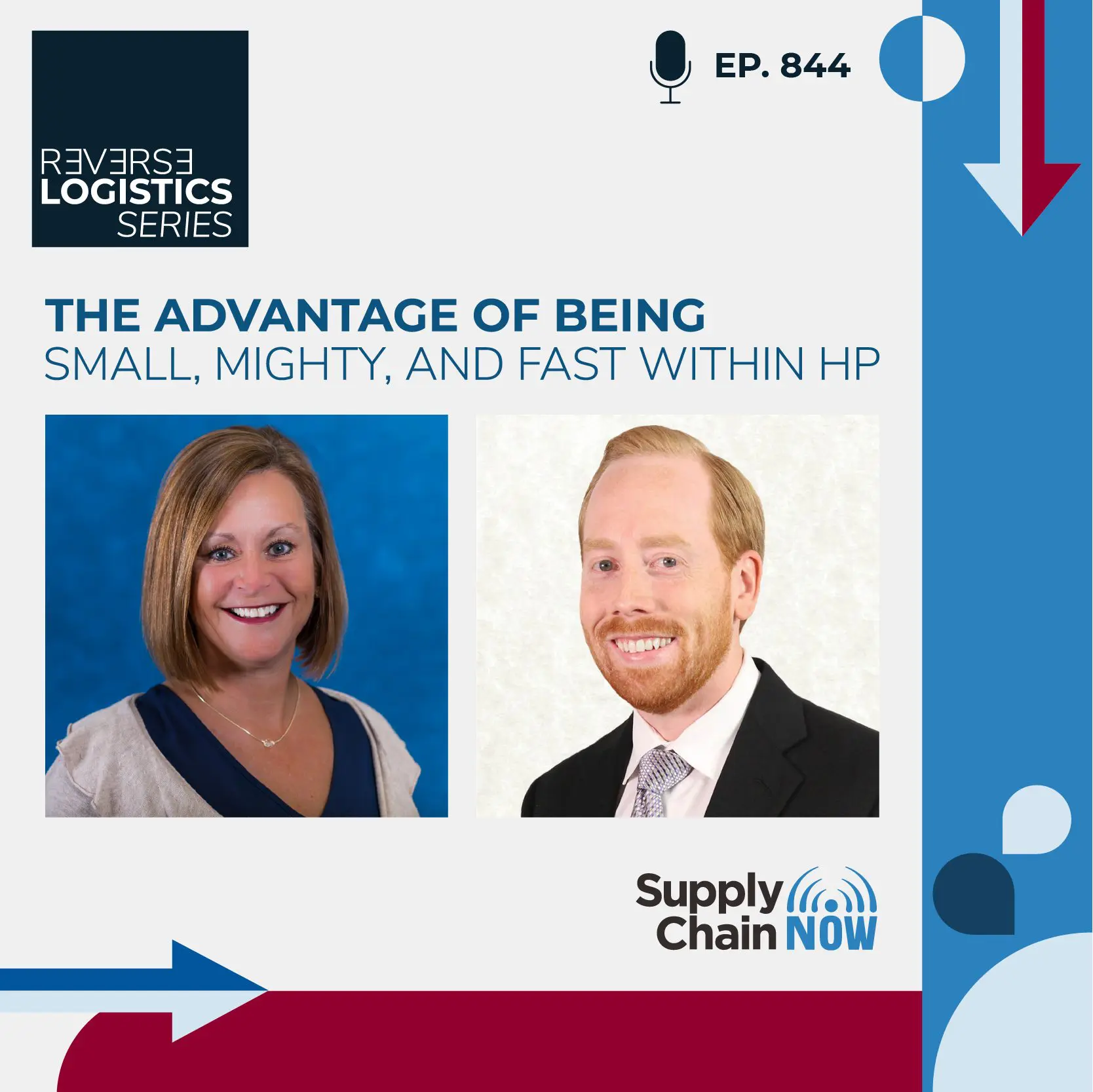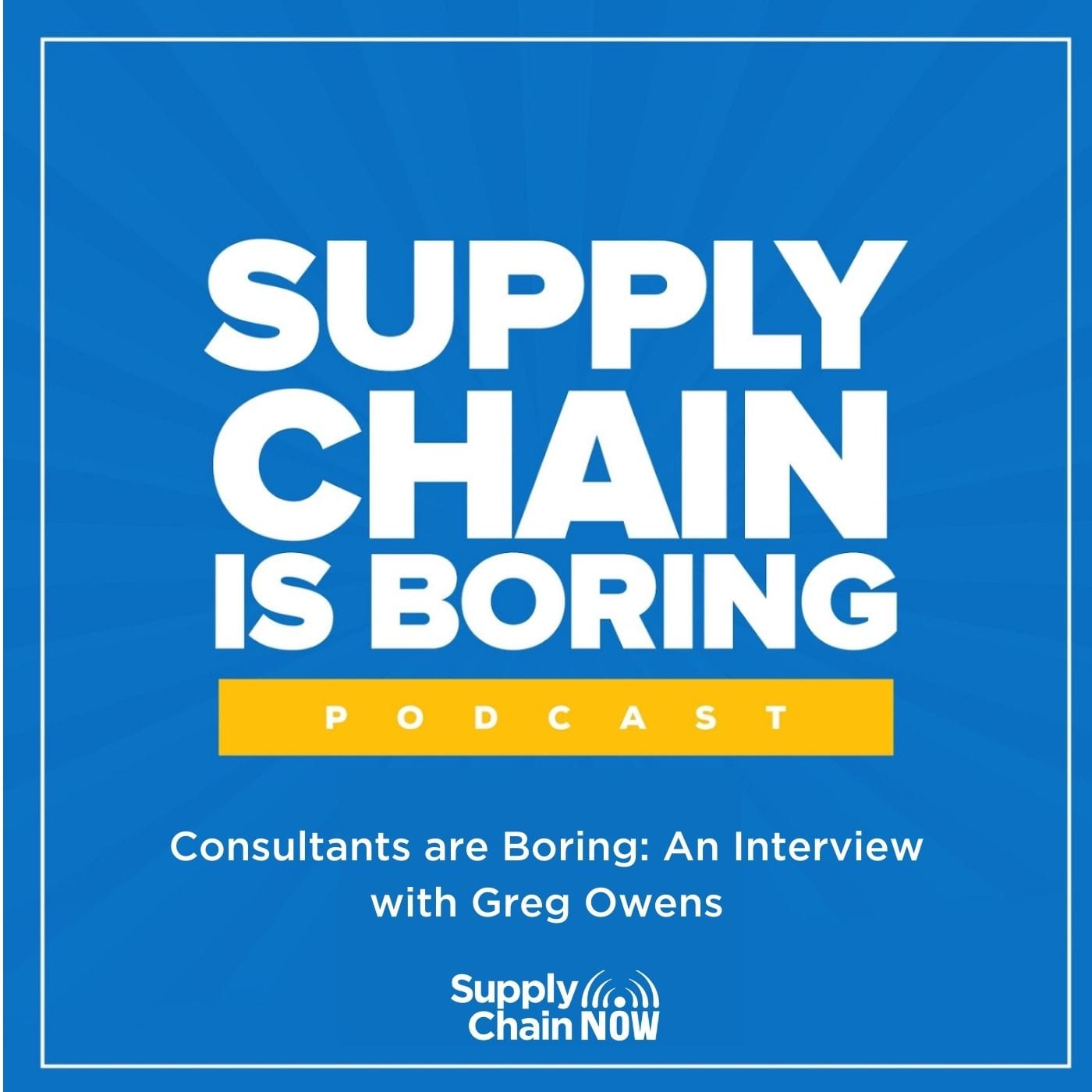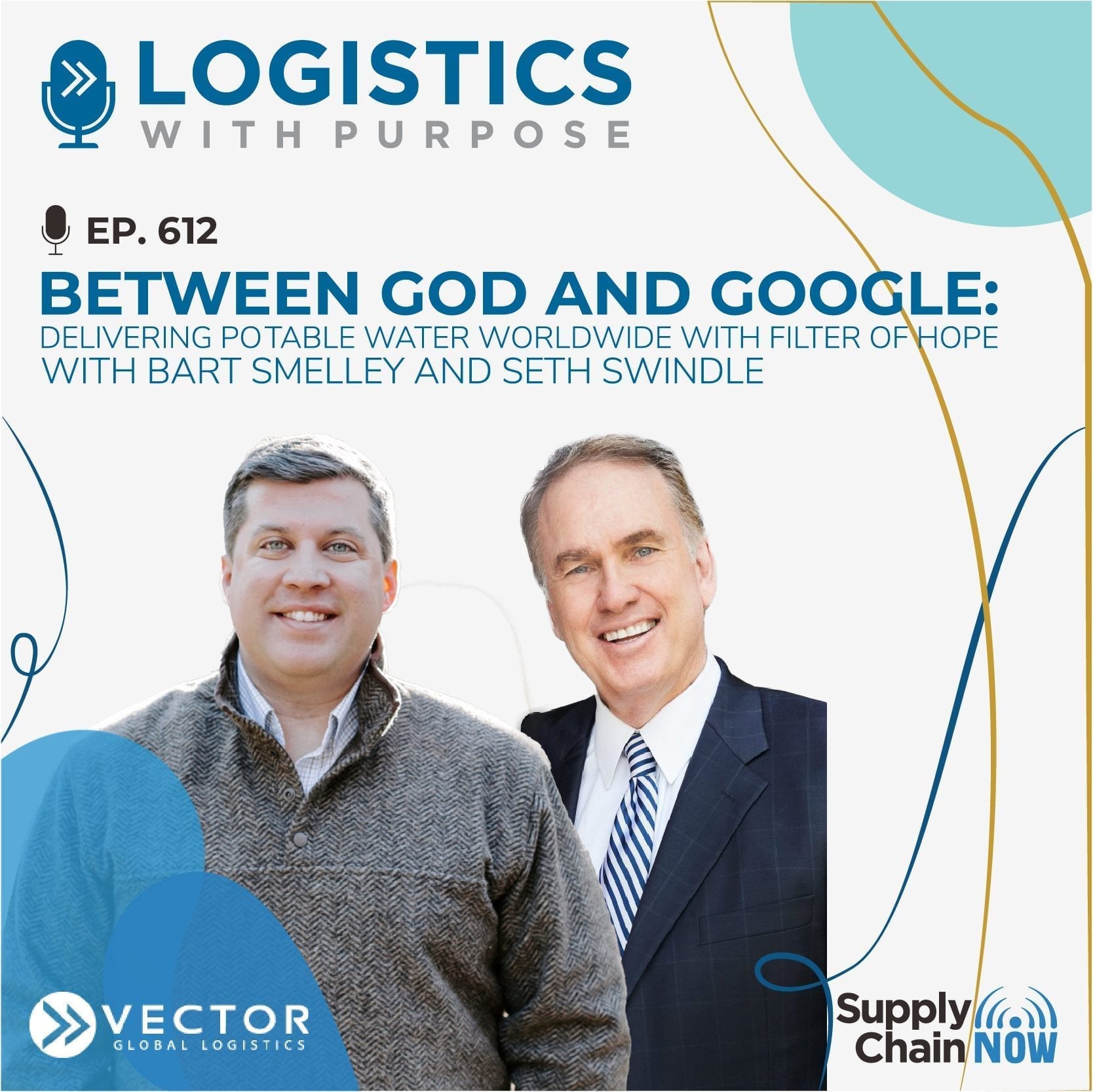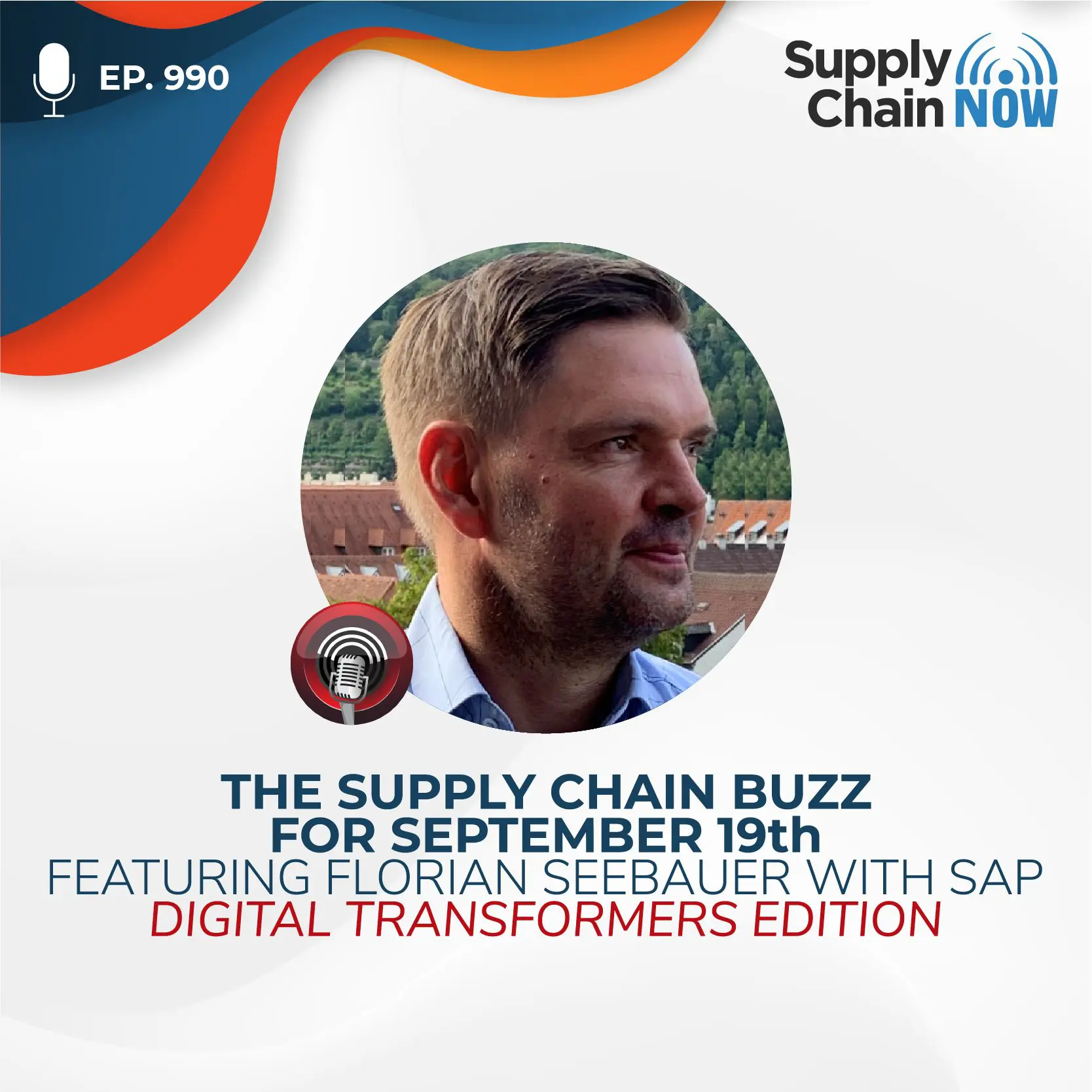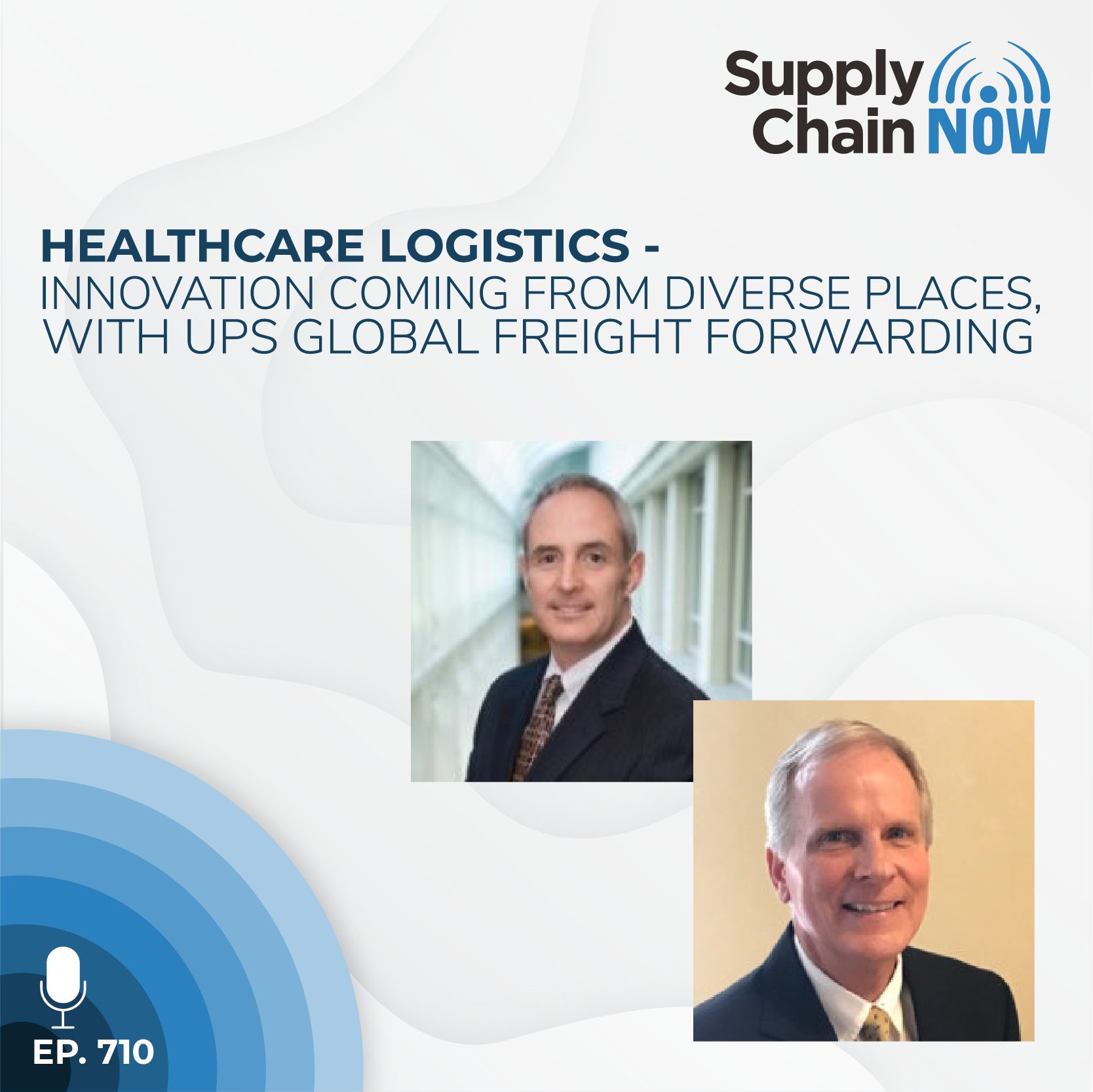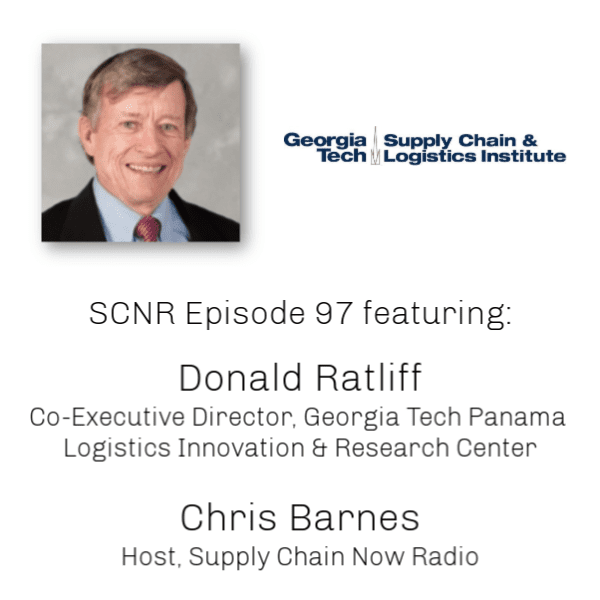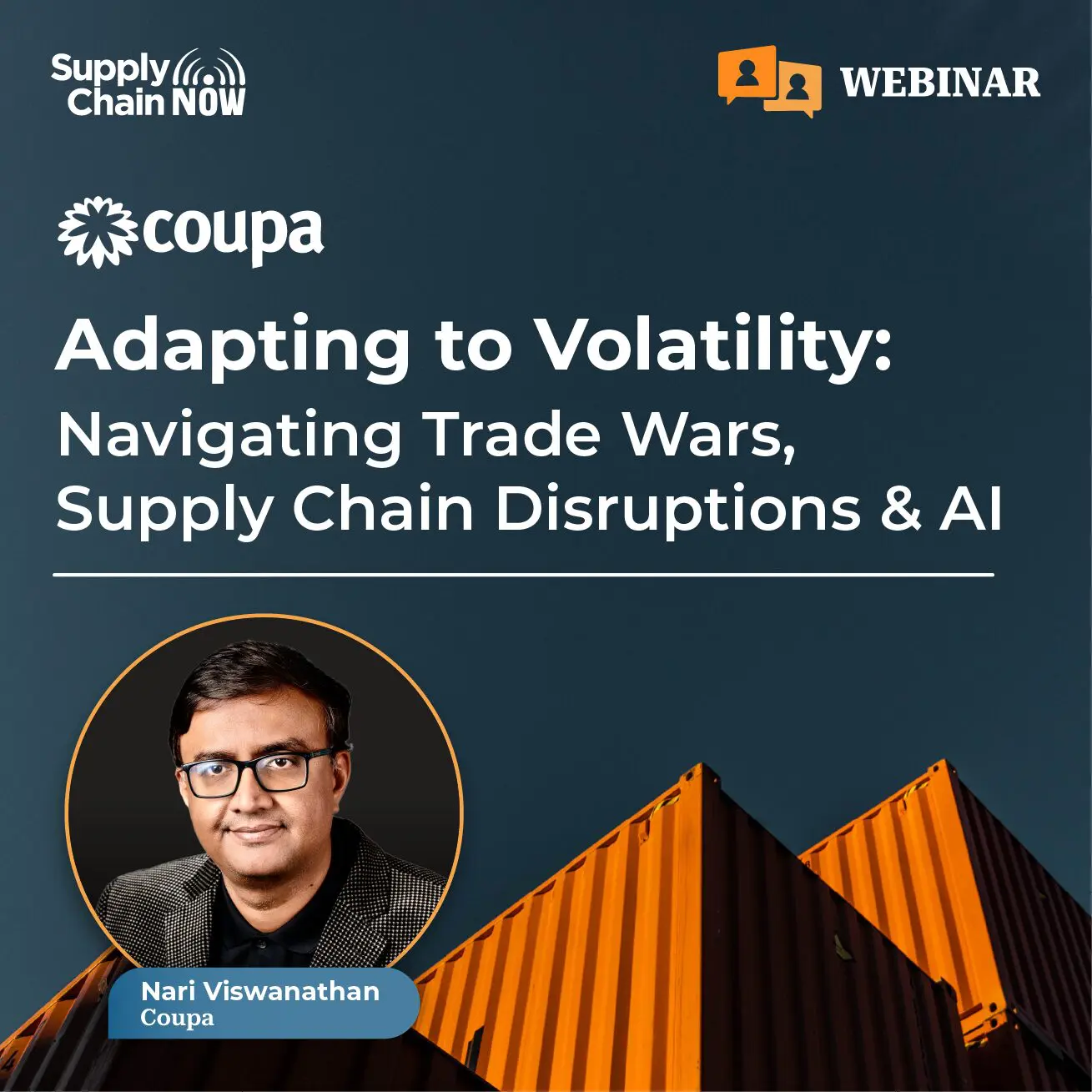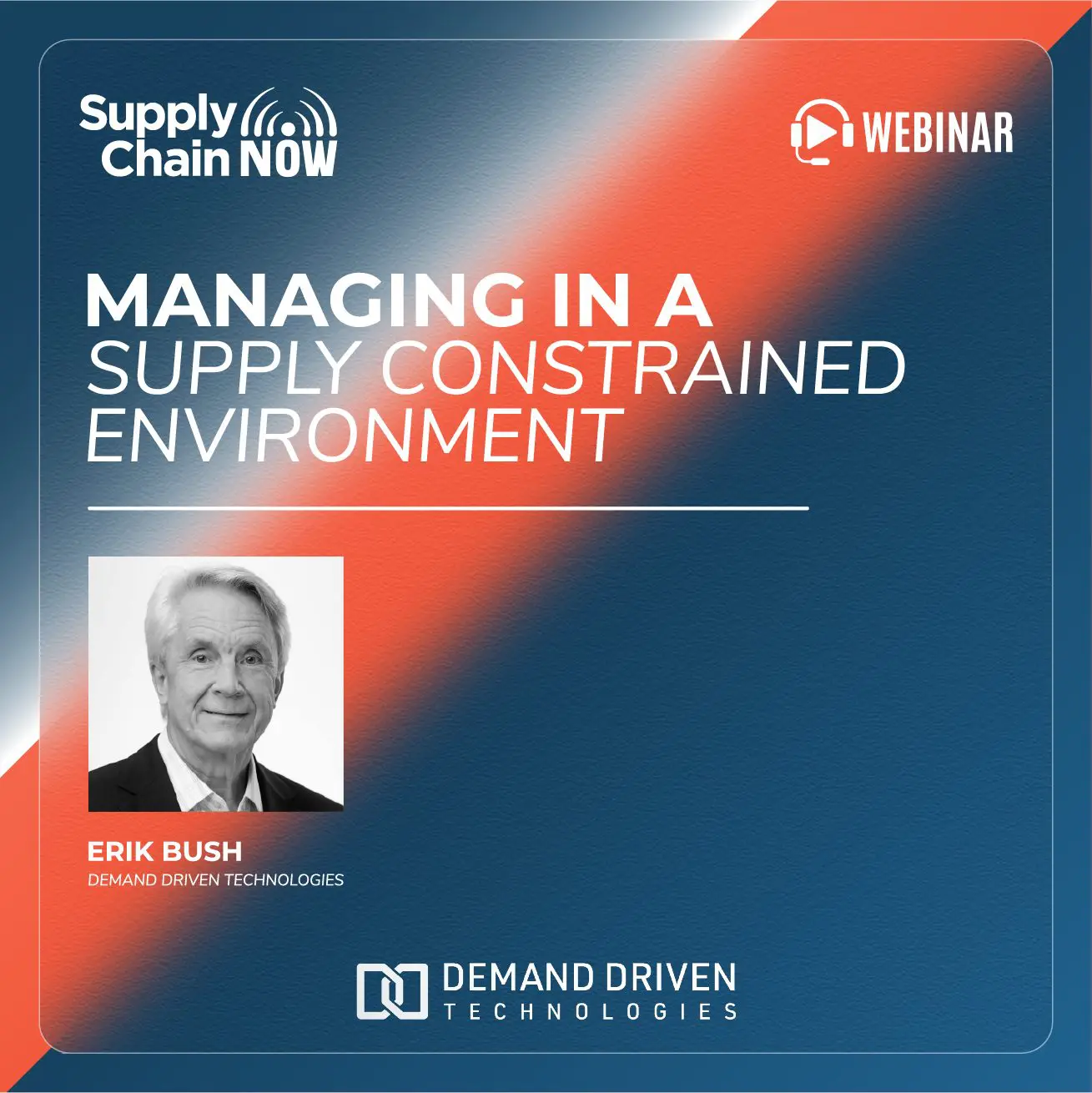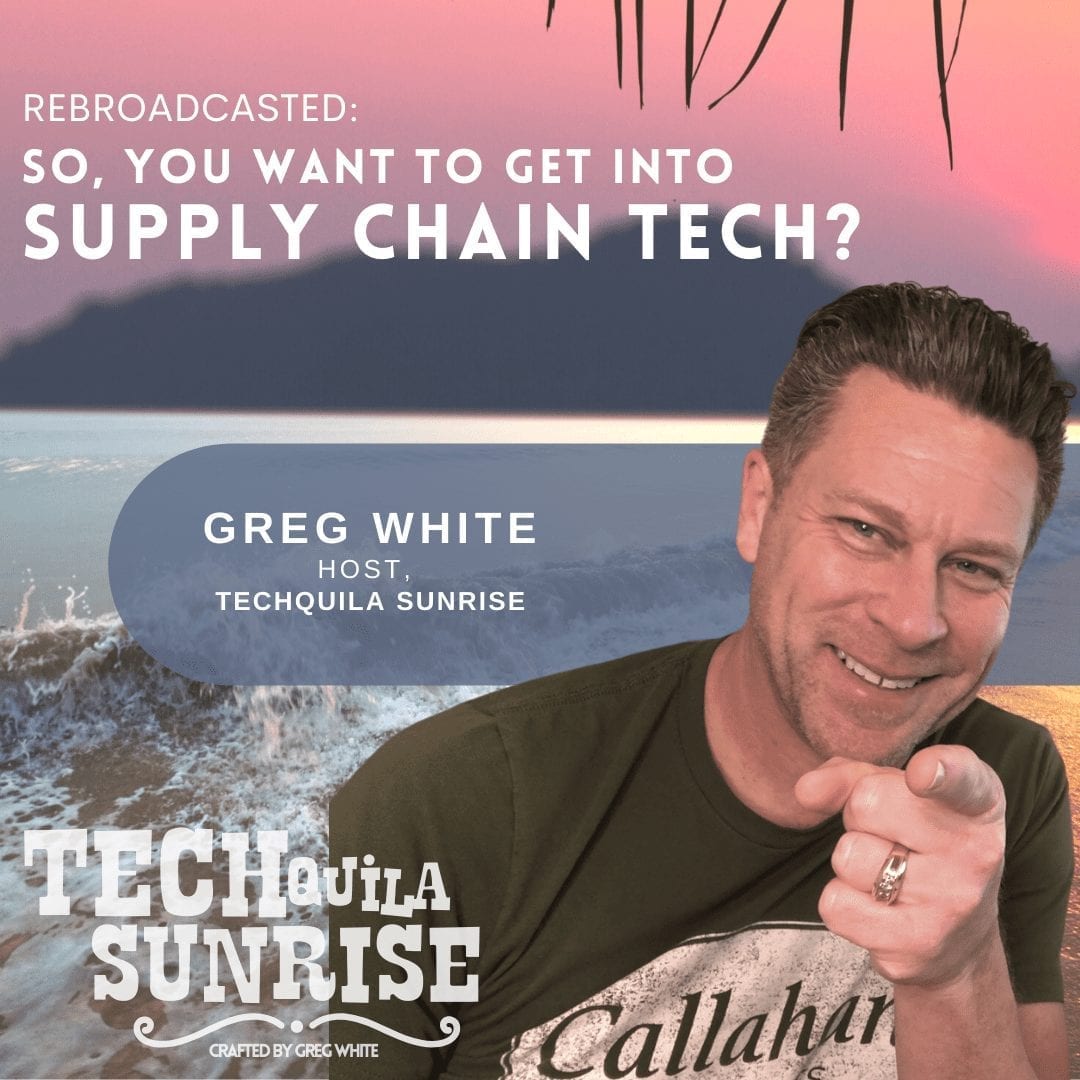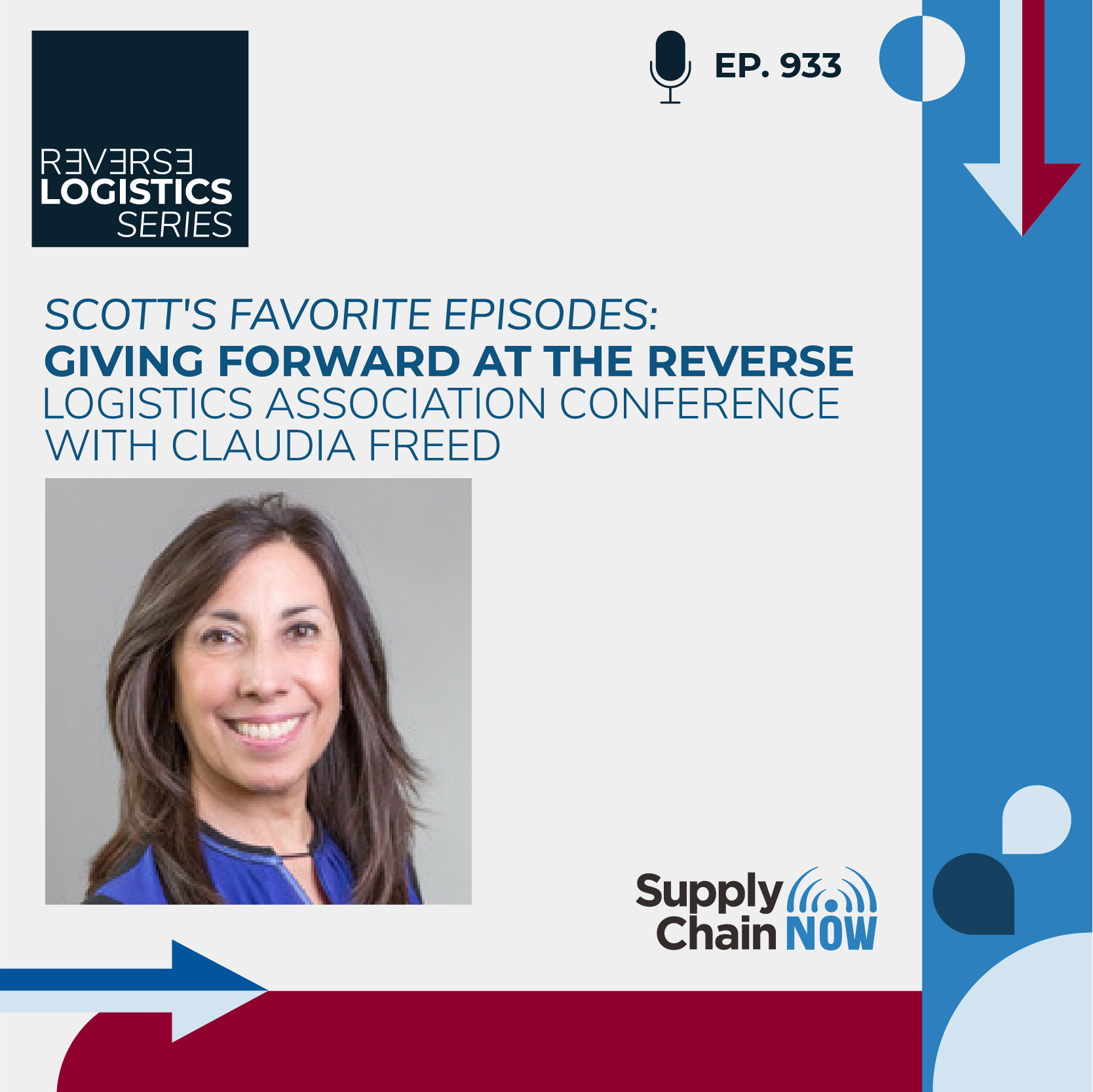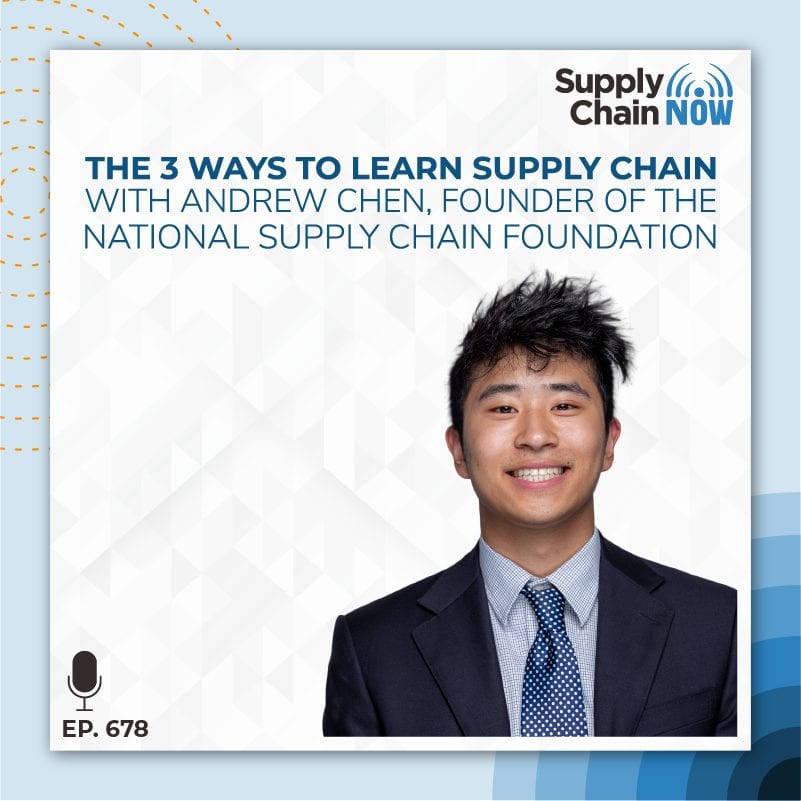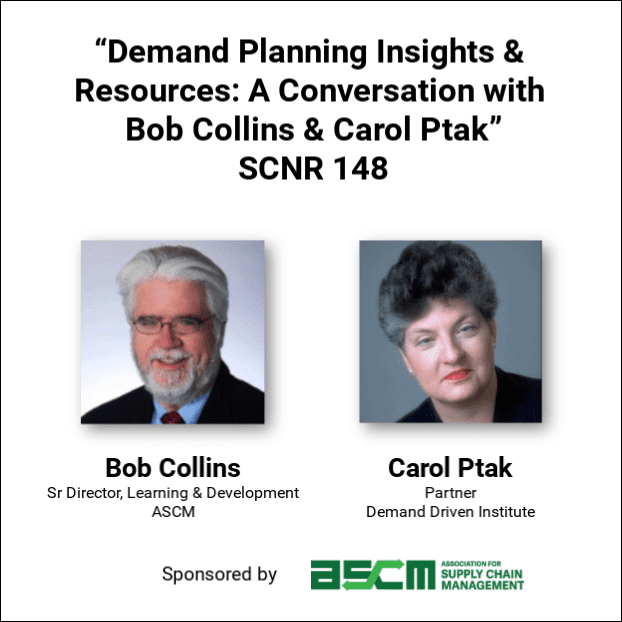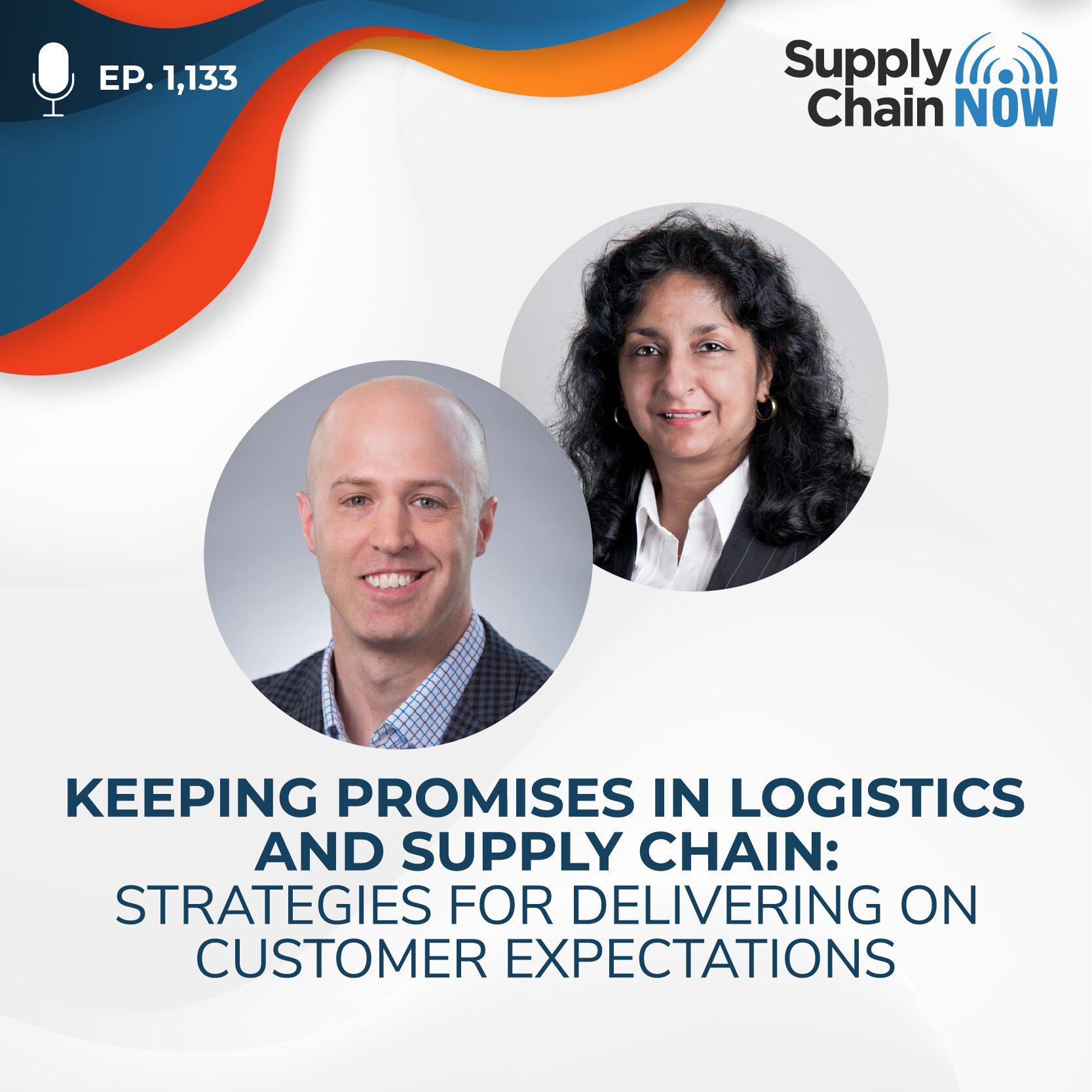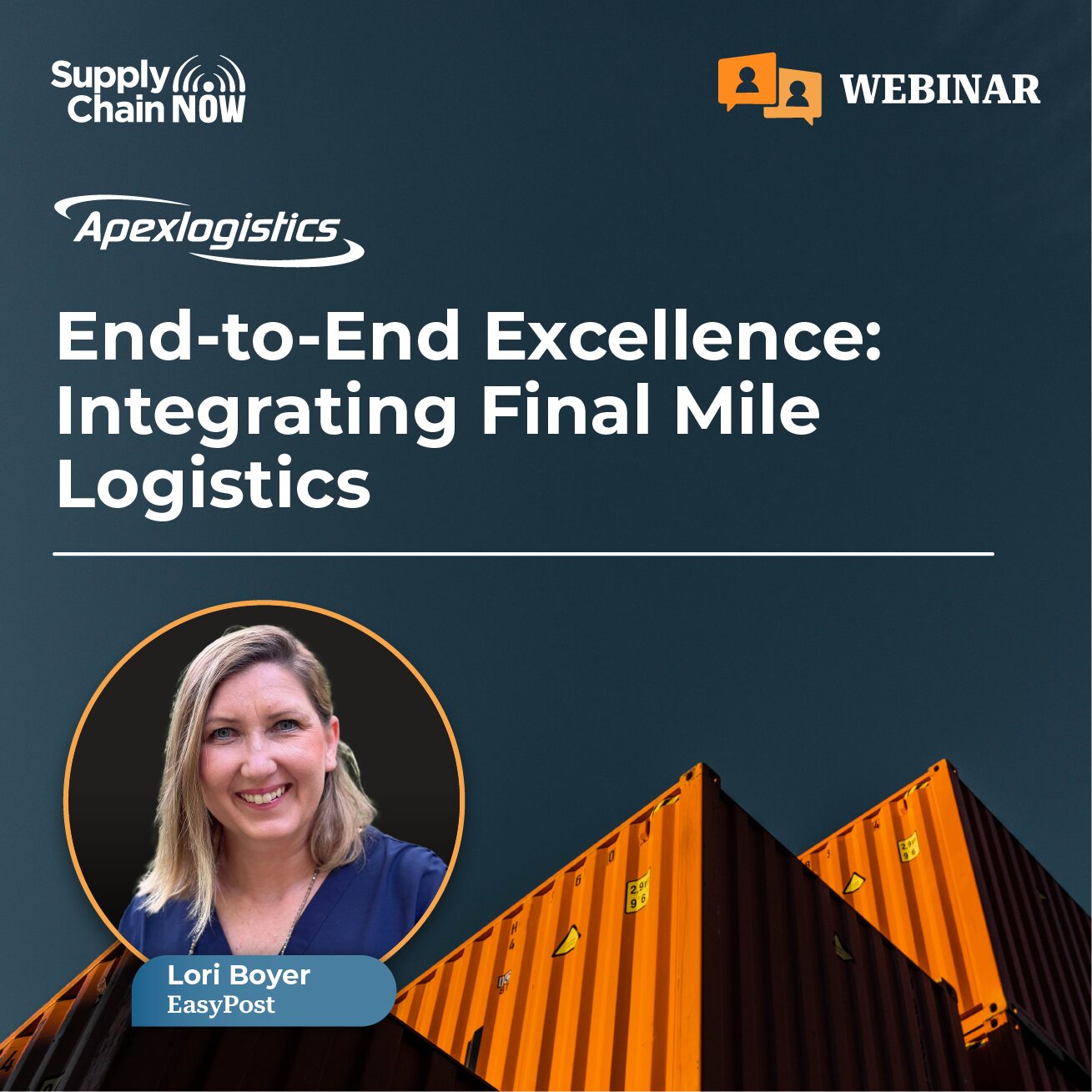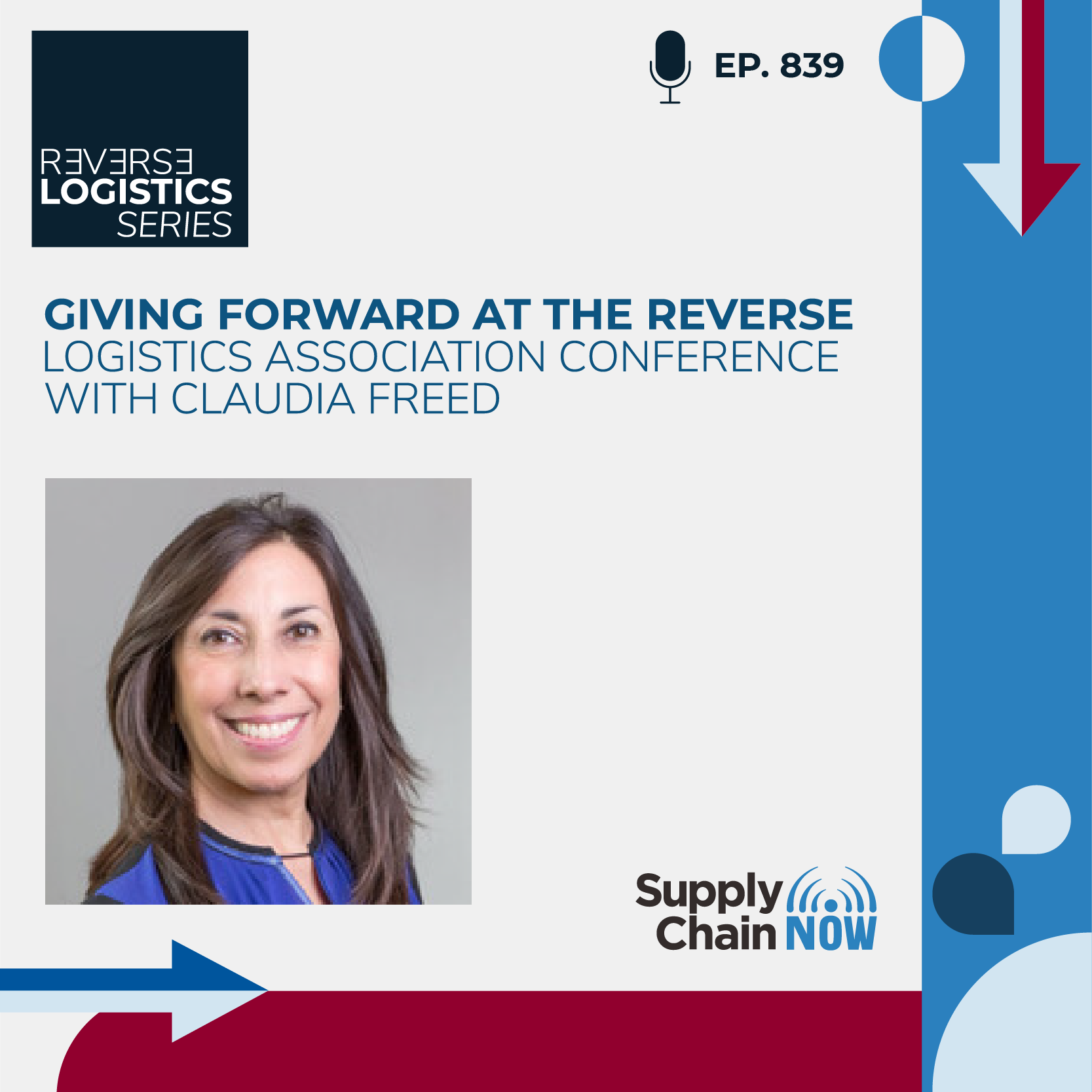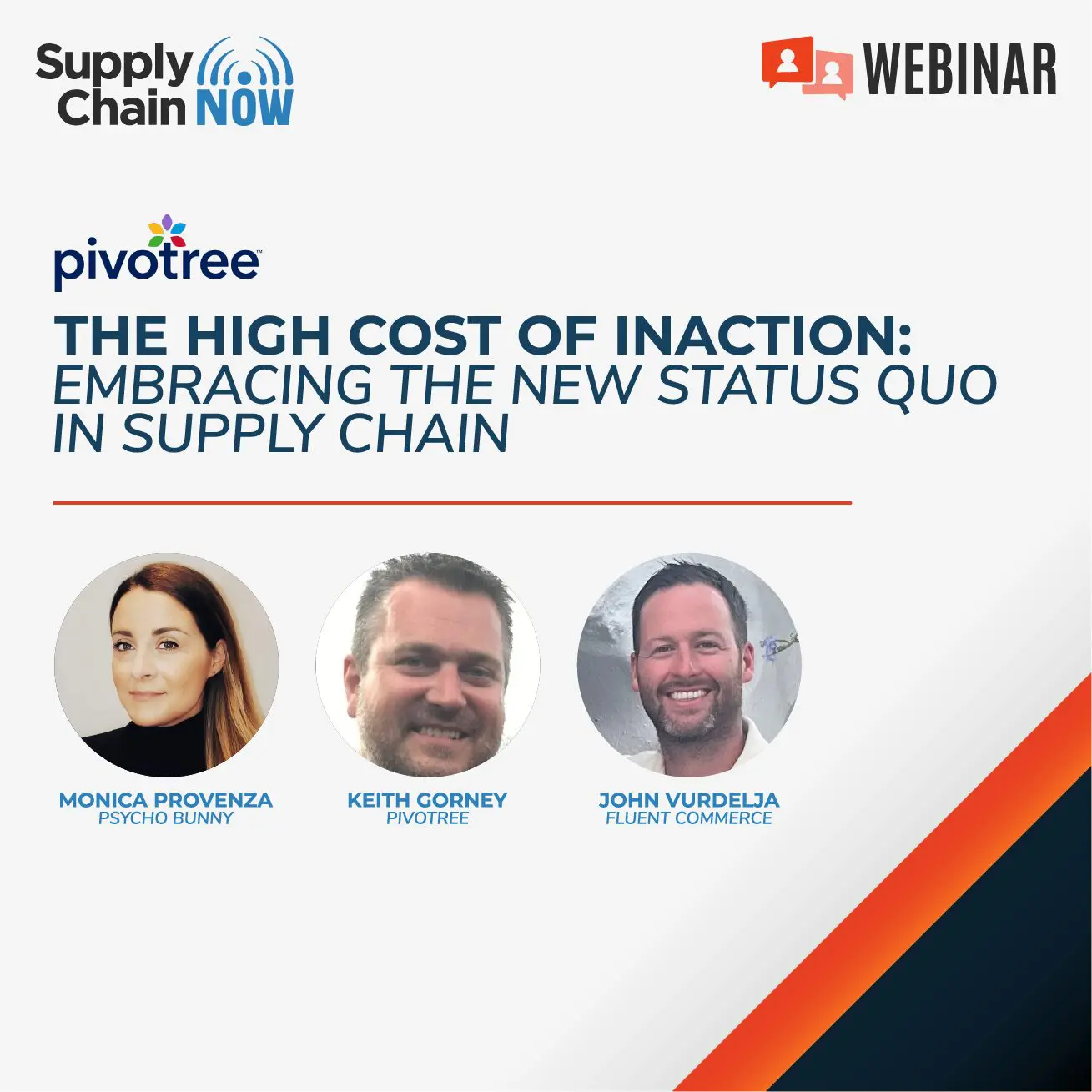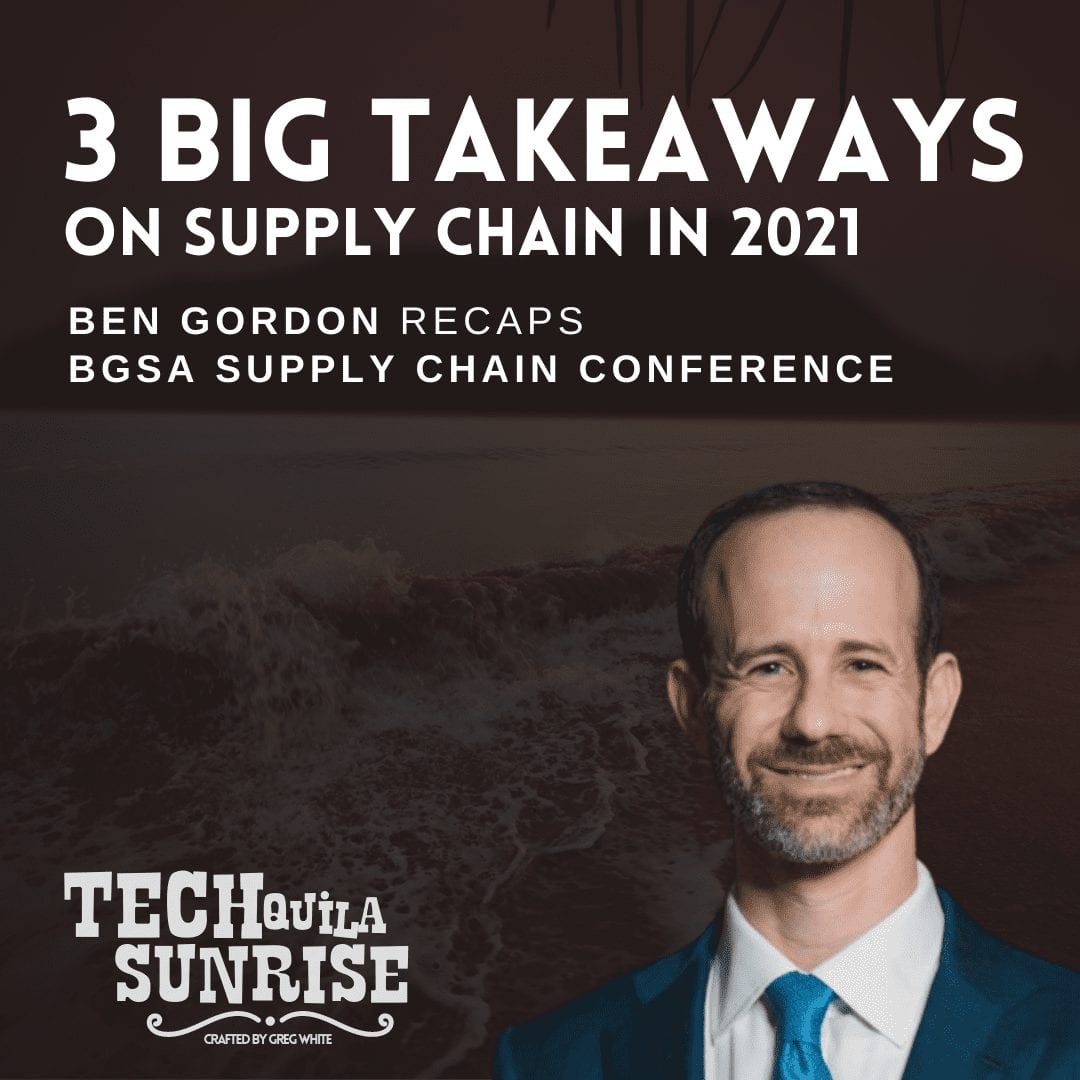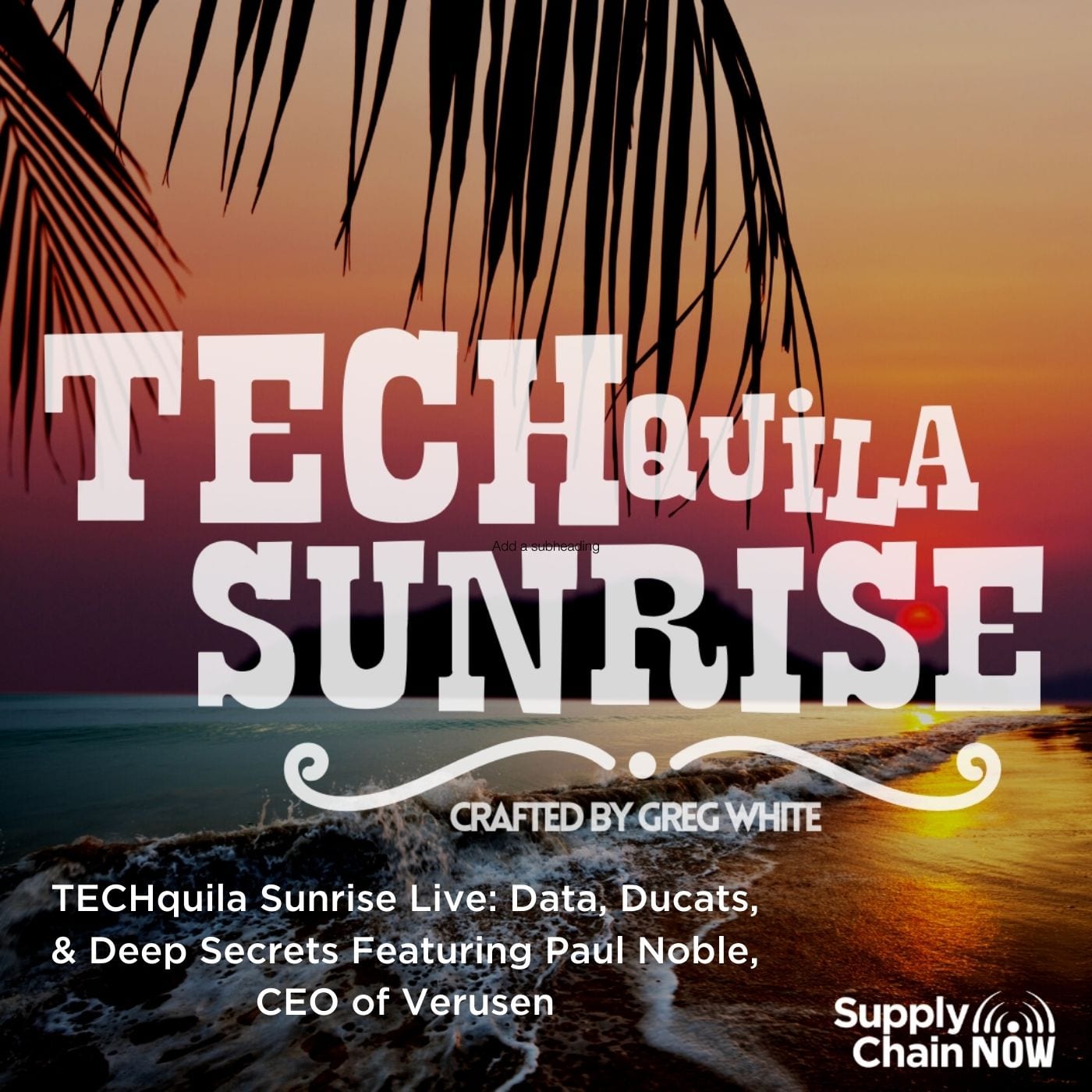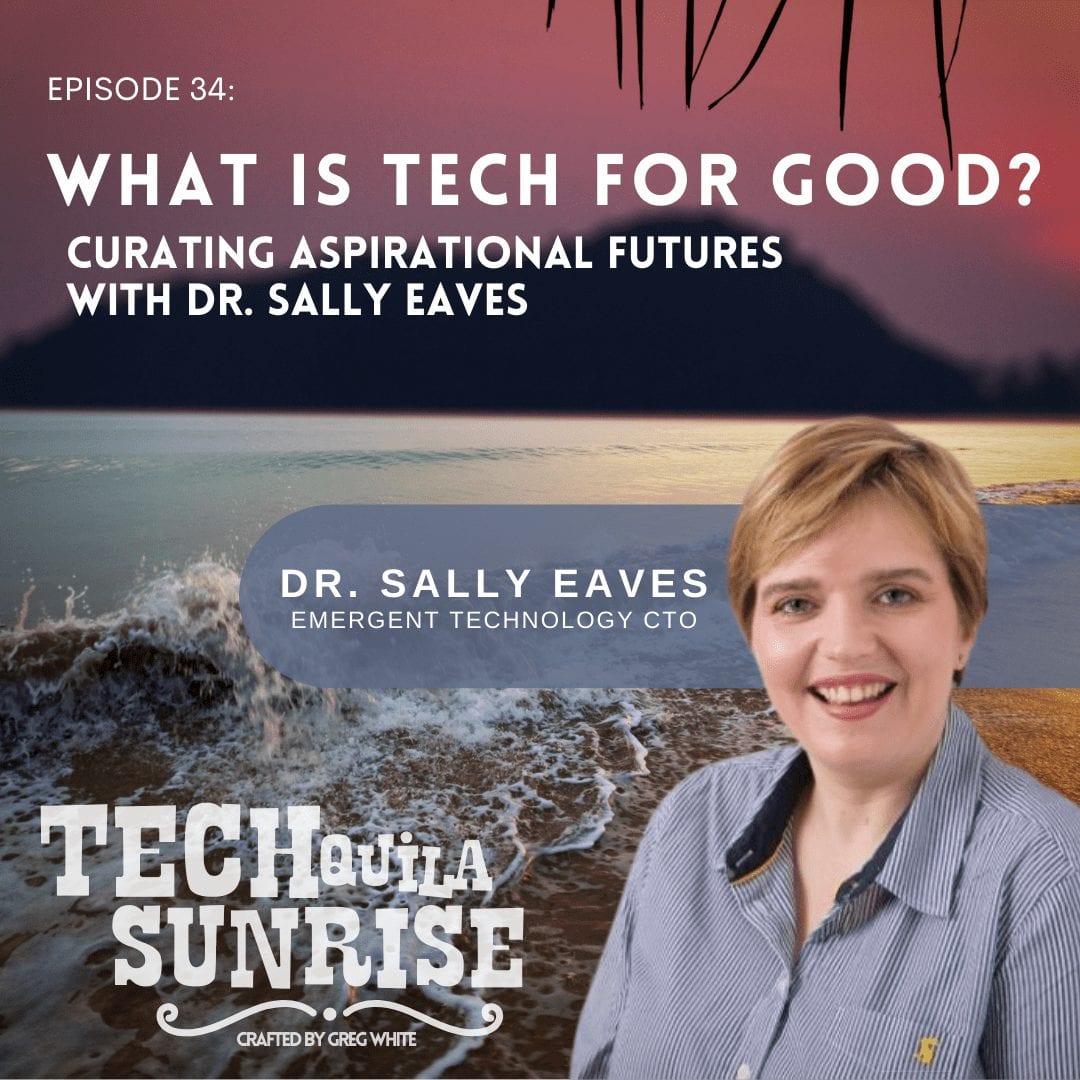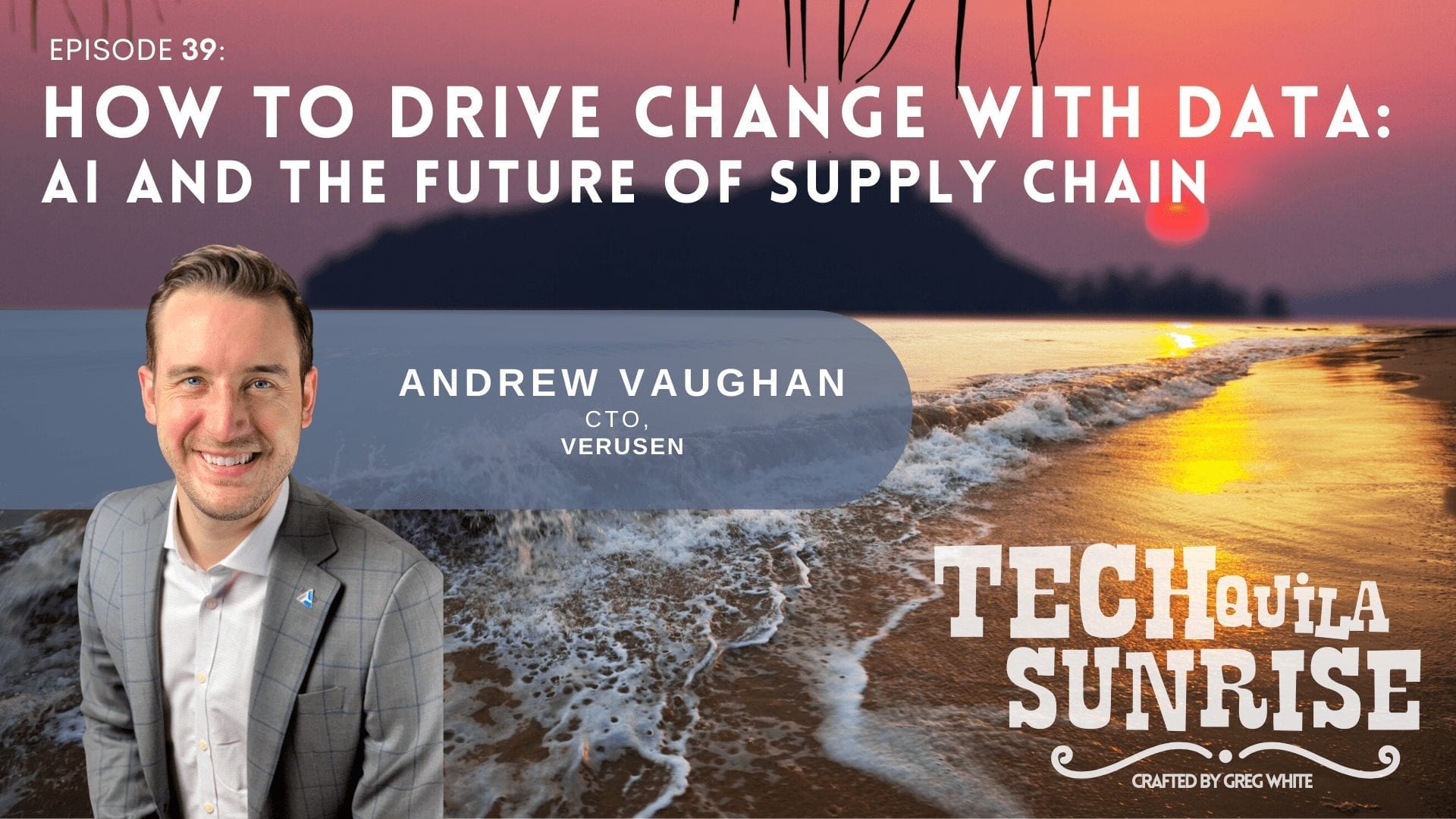
Episode Summary
“Leading-edge classification and recommendation systems really allow you to spend your time on the things that matter – implementing change, building insights, and driving value from tip-of-the-spear models and algorithms that are going to make a difference for your company. They unlock quite a bit of time to work on innovative and novel ideas that we may not have been able to before.”
-Andrew Vaughan, CTO, Verusen
The best supply chain is the one that doesn’t make the news. That’s just one pearl of wisdom you will find in this fascinating conversation with supply chain technology veteran Andrew Vaughan. Currently the Chief Technology Officer at Verusen, Andrew has led engineering and analytics teams for Groupon, Hyatt Hotels Corporation and project44. In this episode, he sheds light on how artificial intelligence is creating previously unattainable levels of operational visibility and getting disparate systems moving faster, together – all thanks to the enormous proliferation of data. Whether you’re looking to advance your company’s digital transformation journey – or advance your career as a technologist (hint: he may be hiring) – don’t miss the rare opportunity to talk shop (and a little parenting advice) with this supply chain technology expert and father-to-be!
Episode Transcript
Intro/Outro (00:03):
It’s time to wake up to TECHquila Sunrise, Greg white here. And I have spent my career starting leading, deploying, and investing in supply chain tech. So, we take a shot at talk founders, execs investors and companies in this hot industry. If you want a taste of how tech startup growth and investment has done, join us for another blinding TECHquila Sunrise.
Greg White (00:30):
Hey, welcome in. We’re going to talk today about early-stage supply chain tech leadership and what a unique environment supply chain and tech is. First of all, I can tell you I’ve had some personal experience with this. It’s a very competitive market to find super talented supply chain tech leaders, tech leaders in general. But when you add supply chain to the job description, it’s even to find someone with just a smidgen of supply chain expertise. I can assure you; it is a tough ask and this is such a complex market. That, knowledge, that expertise is so critical. Look, we’re going to talk through that today. My guest and I are going to share his path through the executive suite in, in supply chain tech. What he’s learned, what founders, investors and technology leaders should know about supply chain tech leadership.
Greg White (01:24):
And by the end of this episode, you’ll not only know my guest’s path and what he’s taken, but also what he’s learned that you can take away for your own supply chain tech journey. All right. So without any further ado, that was a lot of do, but without any further ado, let’s bring in our guest. Andrew Vaughn, Chief Technology Officer at Verusen, as you can see if you’re viewing us right there. Good job. Andrew is an innovator in supply chain tech. He has worked with data and inventory and procurement tech and in over a decade. So, he gets to say only over a decade, I have to say over two decades. Uh, but in over a decade, he’s been with industry darling Project44. Who you’ve probably heard of as well as Hyatt and Groupon. He’s a fast-rising star, and he’s helping bring supply chain tech to new levels.
Greg White (02:17):
So, thanks for joining us, Andrew, welcome to your very first TECHquila Sunrise, and maybe your last, and we’re going to share why that is. So maybe for a bit, yeah, not your first sunrise or last sunrise, but probably the last one that includes any semblance of tequila. And we’ll get to that.
Andrew Vaughan
Yeah. Do that.
Greg White And we’ll share why that’s true later in the show.
Andrew Vaughan
Yeah, no, we’re excited. No, I appreciate it. Thank you so much.
Greg White
Well, so tell us a little bit about your path and kind of how you, you know, any sort of Eureka moments or, or aha moments that you’ve occurred kind of as you’ve evolved from a, just a kid, I’m sure. Doing development all the way to where you landed at Project44 before Verusen.
Andrew Vaughan (03:00):
Sure. Yeah. Thank you. I’ve been in doing that development in tech since 1995. You know, that’s when I, I first jumped into the space was working on screen terminals. It was a lot of fun. The, um, so this was always my path. It was no question asked anybody in my family. Nobody was surprised when I came out in this space. Uh, as you mentioned, I have a bit of a Renaissance background. You know, I I’ve, I’ve worked with a number of different types of organizations, different industries I’ve been in, you know, uh, an end-user for supply chain in my e-commerce space. I’ve been, uh, in the agency world, you know, working on marketing and improving quite a bit of work in that area, really helping to refine what I think really drives solid, um, software delivery, delivery capabilities, which is moving into a product focus, you know, an area that provides, you know, compound value to customers and across large industries and in different domains.
Andrew Vaughan (03:52):
Um, and, and you see that a little bit in my background, as I did move from a company like Groupon, which was unique in that while we were selling e-commerce platform, software and solutions, we were partnering closely with many, many different industries, and frankly had to be subject matter experts in a lot of different supply chains to make sure that those experiences, which is what we ultimately were delivering were successful, was able to take that to Hyatt hotels learned quite a bit about digital transformation challenges and, uh, and got to lead some of those efforts and drive both improvements and not just why you build software, you know, in certain ways, but, but how, and I know we’ll get into that in a little bit, but, you know, we were, we were talking briefly. The, the reality is, you know, anytime you’re building a software platform, you know, a solution like this, you’re building a product you can change in real time.
Andrew Vaughan (04:41):
You can change this product after it’s in your customer’s hands. You can continuously improve that. It unlocks a speed that you may not get in a traditional project management or, or an assembly line in some ways. And experience in those spaces really proved that out really great example. We had a project that was planned to be 18 months to revisit our entire e-commerce solution. We estimated it might, you know, might raise our, our bottom-line revenue by 50% by iterating and by releasing every two weeks, as opposed to after 18 months, we actually doubled the revenue in that space within that 18 month period, when we were just supposed to be starting our pilot, there’s just so much creativity you can bring to the table by, you know, approaching tech with that, that kind of unique space. And frankly, supply chain is just such a great fit.
Andrew Vaughan (05:27):
I absolutely love being in this domain. There are so many organizations going through digital transformation in different States and different approaches that, you know, companies like project 44 companies like Verusen can really help skyrocket in some ways, right? Everybody wants the tip of the spear innovation for their solutions, right? They’re solving really important problems, whether that be in visibility or maintenance, operations, or materials management. And it’s, it’s really amazing to be able to the data that we’re able to get through in the insights we’re able to build up and influence markets and customers capabilities, um, with the, you know, cost reduction it’s really taking, uh, you know, what might traditionally be a project with 20 steps and skipping to step 18, you know, in a, in a couple of leaps and bounds, which is amazing, it’s such an awesome experience. So being able to go from a project 44, uh, where I was head of engineering and driving velocity improvements in these best practices and ensuring our quality was being delivered to a company like Verusen, that’s doing more in the data science space and actually doing innovations in our models and driving, you know, compound growth through really tip of the spear.
Andrew Vaughan (06:36):
Uh, escalation is, is just awesome. It’s an, it’s an awesome experience. It’s amazing to be able to come in and really own those outcomes, right. Really help customers solve these problems that they might’ve been, you know, challenged, you know, challenged with for 10 or 20 years, you know, things that, that are really starting to make leaps and bounds now that have not passed. So it’s a, it’s a right fit for me. And I’m very excited to be in this domain now,
Greg White (06:58):
You know, it, it is interesting what you said earlier about supply chain being such a great fit for technology because of the rigor and the precision and the mathematics, right. That are required to make decisions in rapid fire succession with innumerable complexities. You can’t possibly because I’ve tried to do it. I know, and I have I’ve delivered, sold, implemented, and use technology in this space for, let’s just say a couple of decades. And you know, when you were on the user side, you must have seen that complexity. How did people ever do this in their heads? The truth is they didn’t very well. They usually focused on a thing and they were very good at that thing. I like to think about, I was actually a store manager for an auto parts chain. Not that this is about me, but just to give you this example.
Greg White (07:48):
And I started like, most people do in supply chain. I can do this. I know my business better than any computer could ever know my business. And that was an absolute truth for four items in my store, right. For the four fastest moving items in my store, which are also the easiest items for technology to manage, but they were in the forefront of my mind all the time. And they became my world, my reference point for, I am so good at this supply chain thing. Right. So I think we have to acknowledge that so much of what technology does is what we have attempted to do as humans and it’ll. And some of that is mundane. It’s highly, highly technical. It requires a tremendous amount of provision pre precision. And it requires us to have no variation in decision methodology, which is utterly impossible for humans. That’s where technology comes in. It does the right thing, even if it’s based on human knowledge, which often it is to make the decision, it does the right thing every single time. It never forgets that piece of data that you considered last time, but you’re not considering this
Andrew Vaughan (08:53):
You’re spot on. Yeah. And, you know, as we move into things like artificial intelligence and machine learning, um, you’re really taking that to a whole nother level. Right. You’re moving, um, some of that empowerment of, you know, how does a computer thing, you know, and having a developer, an engineer implement that right. And replicate some of that thought process and even giving up some of that control in a very strategic method. Um, and that’s where some of these really bleeding edge capabilities are coming from, by using very advanced math, right. And extremely bleeding edge concepts in terms of how to train computer systems and alleviate, you know, giving up some of that control to let it surprise you in some ways, right? Letting your data really be the powerhouse behind what your capabilities are. And that’s where you see a lot of opportunity. I think in our space right now, to, to create value that you couldn’t even do a couple of years ago, which is just phenomenal. Yeah.
Greg White (09:44):
And I think people need to recognize that AI is often, it’s often a computerization of a personalization of a process. It is taking human intellect and instilling that knowledge upon the technology and allowing the technology to use that as a baseline and grow just like we do as children, right. Your parents teach you something as a baseline and you extrapolate on that to your own perspective. You learn more and again, AI never forgets those details. And I think that’s the magic. It is human. It is human intellect, actual intellect as I, some, some kind of sometimes call it [inaudible] and formalized.
Andrew Vaughan (10:24):
Right? Yeah. That’s, that’s extremely insightful of, I I’d say that’s an understanding that isn’t as broadly understood. I think in this space, a lot of times you are, you’re tagging a machine that, you know, by its nature, does whatever you tell it to do. Right, right. Good or bad computers don’t have an opinion. They, they process ones and zeros and you’re starting to train them in human behaviors in some ways, and building out concepts as opposed to algorithms, you know, building out methods to do things that will change over time, that you don’t have necessarily direct input into. But the data influences such a strong capability for us to be able to make outputs that, you know, even the people building them might be surprised by a, um, and you use metrics and measureables to, to ensure that they’re going to solve problems as you need them to. And we’ll do that. So, so much faster than, you know, kind of manually building those systems. Like we would have 10 years ago. Yeah.
Greg White (11:13):
I love that. I love that they can do what I can do faster, better, and never forgetting what’s required to make the,
Andrew Vaughan (11:21):
I never want to have to look at a a hundred million record table, but I will put it in front of our machine learning in a heartbeat.
Greg White (11:26):
Right. And, and what that does is that elevate don’t you think that that elevates humans to do the creative, the, in the moment problem solving that is such a unique human gift. At least these days, it’s very difficult for AI to be creative or to tackle something that it doesn’t have a huge amount of data for. Right.
Andrew Vaughan (11:48):
You’re, you’re absolutely right. And, um, in some ways, you know, we’re all restricted by one thing and that’s time, right. And we always talk about the project management triangle, right. Scope time and cost. We can always balance those things. Right. But what, when you’ve got, um, you know, master data management is table stakes in a lot of ways, right? If you want to build insights and create outcomes from that, it has to be in a way that’s functional. And there’s many ways to approach that you can spend three years doing that by hand and cleaning that forward. And probably going to have to do that every decade. You don’t necessarily have to do that anymore. You can bring in these more leading edge, uh, classification and recommendation systems that break that forward and really allow you to spend your time on the things that matter, implementing change, building insights, driving value from, from these tip of the spear models and algorithms that are really going to make a difference for your company. It really unlocks quite a bit of time to work on innovative and novel ideas that we may not have been able to before, just because of time constraints, if anything.
Greg White (12:47):
Yeah. That’s a, that is a very good point. I mean, what we fail to see often when we talk about technology and particularly AI, because it scares the hell out of people, right? Is that with artificial intelligence, it, it empowers actual intelligence to be able to do those things that can’t otherwise be done by computers. And I think that that is a much more satisfying type of role for a human to, to conduct anyway. So let’s go up a level here. I’m interested because you’ve worked at now two supply chain tech industry darlings I’m interested because in the last year or so, I won’t say why, because I think we all know supply chain has been thrust into the limelight. Right. Suddenly I don’t have to explain to my family at the dinner table, what supply chain is or what I do. Right. Which is a blessing I must say. But when you think about supply chain and its position, not just in technology, not just in business, but its position in the world, what do you think about, um, what you’ve seen and learned about supply chain tech and how this limelight has been cast upon it and what that means for technology and supply chain? Yeah,
Andrew Vaughan (14:00):
It’s a great question. I, I think, uh, the biggest part, the biggest changes you’ve, you’ve started to see technology transition from really that kind of it cost center to one that is really driving bottom line growth for organizations and being able to create significant strategic opportunity for, uh, any organization. I, you know, supply chain or otherwise, but supply chain has so much opportunity in this area, you know, and it started with things like, Oh, maybe we can do OCR to get our paper, you know, paper goods, uh, paper, paper, BOS, you know, properly processed in our Europeans. But you know, there’s so much more you can do with that in it. And as we build this data up, it, it just unlocks, you know, significant opportunity that really doesn’t exist if you do consider something to be a purely supportive mechanism. Right. So it’s, it’s such a strong strategic need in, in this industry to be able to frankly, stay that step ahead of situations like we’re dealing with now, you know, or, or even day to day, you know, in some ways the best supply chain is the one that doesn’t make news, you know, Suez canal, really great example.
Greg White (15:04):
That is well said. I don’t know if you are the originator of that, but boy, that is 18.
Andrew Vaughan (15:08):
I may not be the first one, but I don’t know that I don’t know the source. So I’ll happily sure. I’ll do I’ll claim that one. Yeah. It’s um, it’s, it’s there’s truth in that. Right? And that’s part of the reason we don’t have to explain ourselves right now, there’s, there’s been cracks that have appeared. And frankly, the ability to bring in advanced technology is going to let, uh, systems move faster. It’s going to build visibility that did not exist before, which is going to create opportunities for operational aspects, for intercompany conversations to be so much more effective, right? You don’t have to spend 45 days trying to solve a problem if you’ve, if you’ve got a system that can tell you what it is, and then you’re working on a solution, not discovery. And that can be the difference between, uh, you know, making critical decisions and critical path efforts work or not.
Andrew Vaughan (15:54):
And so that’s, it’s an important thing to get ahead of it. It’s an important thing to support. And when you’re, when you’re at a company like, like Verusen as well, where you’re working with many different customers, right, who might be in many different phases of their, uh, their digital transformation or the work they’re doing, or they’re approaching them different methods, it also provides a lot of opportunity to collaborate on what works, what doesn’t, you know, what builds that out. And that’s one thing I really loved in the supply chain space is just how open and collaborative a lot of companies are. There’s a lot of want to make suppliers and customers and everybody between successful. And that itself opens a lot of doors for, for this type of solution to be successful.
Greg White (16:33):
You’ve made me think about so many things. One in particular is that you are obviously an exceptional talent in regard to both technology and supply chain. And I, well, I mean, it’s true. I mean, I, you know, of course I talked to a ton of people. It just, it just comes out of some people, right? So when you are looking for talent, talent is such a huge issue in supply chain. When you are looking for talent, how challenging do you find that? I know you’re not looking for a CTO, you are a CTO, but there are other companies that are looking for CTOs, or they’re looking for developers, or they’re looking for kind of mid range management in tech. How difficult do you find that process today? Cause I know you must be hiring, right. I see it all time.
Andrew Vaughan (17:21):
We are hiring so much and I’m going to plug that so hard at the end of this,
Greg White (17:25):
Of course, Darryl Lou, by the way, he is really good at getting your recruitment efforts out.
Andrew Vaughan (17:30):
He is exceptional at what he does. Yeah, no, I love working with Darrell and I’ll get some contact info out. We’re hiring every role you can think of at the moment, because we have so much growth on the table. But let me answer your question. Yes. So in truth, it is difficult. It’s difficult in tech in general. Um, I think the last time I looked when I was in Chicago, unemployment for all technology, all technology in the city, I believe was 0.7%. You are always stealing talent from somewhere else. And companies have caught on that, frankly, good culture and empowerment makes people want to stay, right? There’s many other things that go into that, but that’s where you see a lot of companies building cultural initiatives into their digital transformation, looking at the West coast companies, you know, other areas that have been very successful in that regard and trying to incorporate that with purpose into their solutions.
Andrew Vaughan (18:18):
And so in some ways that’s where you can get creative. You can build unique cultures and unique opportunities. You know, getting to know what people really want in their careers in their day to day can be very influential and, and bringing top talent in. It’s certainly helped us at Verusen quite a bit. And so in my mind, if you focus on your, your culture, you ensure you’re bringing in people that are passionate about what they do, really getting almost to the skill sets. It’s like step three or four, when you’re doing your sourcing and interviewing, uh, you’ll find that you bring in people that are excited to be empowered, that are going to build parallel growth and bring ideas to the table and a diversity of thought that you need to be successful and grow. And you find that your role as a leader really transitions to one that is not task manager, right?
Andrew Vaughan (19:03):
You’re not, you’re not handing out tasks and building that forward. Your goal is to build good leaders and build empowerment and drive mentorship programs and aim for scale, right? And at each phase of the company, it’s going to be a little bit different. You know, obviously the approach you take as a seed company is going to be different than your rapid growth phases. Then, you know, as you get into more mature organizations and you can’t sit around, you know, one big conference table anymore. But if you, if you focus on that quite a bit, often the often the sourcing becomes more feasible. Not going to say it’s easy because you might take that Oh 0.7% and bring it up to like 2% in terms of like, who’s going to, you know, who’s going to bring you forward, but you will find that people, um, are very interested in, in having those conversations and bringing that forward and even coming to work for a startup that might not be, you know, it might be different for them. Maybe they’ve worked in those larger organizations for a long time and you can really start to draw that, that top talent and build up a culture that will continue to.
Greg White (20:00):
So you mentioned one thing and that’s an, a lot of things there, of course, but one thing that just immediately jumped out at me in that is that empowering culture. You also talked about sitting around a conference table, which is less and less likely today is 80% of all, all workers are demanding to be able to work from home three days a week. So how do you manage in an environment like that? Something, because you were a very, it was just prior to your time, Andrew, that Verusen was a very in one place right. In the office environment. So how have you managed that and how do you anticipate managing that remote work
Andrew Vaughan (20:38):
Still very much looking forward to meeting my team in person. I’ve had the pleasure of meeting a few folks, but, um, obviously our situation is unique. Now. I been lucky in that I’ve been working remote since 2018 for the most part. So I’ve been able to kind of build those forward importantly for us. And I think, I think our situation drove, drove this a little bit is, um, you know, when we do have the, the need and opportunity to build new processes, new philosophies, um, building a remote first solution is very, very important. Not just for this situation, right? Maybe we’ll all go back into the office, but don’t let that go. Even if you’re all in the office, focusing on, that’s very important because it’s going to open up possibilities for you to open new offices, work with third-party partners, work across time zones.
Andrew Vaughan (21:21):
That can be very difficult for a company. If you don’t bake that into your thought processes, this is going to influence what technologies and tools you use. It’s going to influence things like this, like where conference software you have. And frankly, nowadays with the events of the last year, many technologists are wanting and expecting to have a fairly flexible remote, uh, work from home policy. And it’s important that you can drive that to draw that top talent in some ways. So for, for our aspect, the best thing I can do for my team is help transition our definition of success to outcomes, right? To KPIs, to, to making sure that teams are focused and empowered, to work on things that are going to actually move the needle for the business, not by how many hours people work, right? Not even when they work, how many engineers love to work till two in the morning and are effective, then make it happen. And so if you’re constantly measuring your, your internal metrics, your velocity, your predictability, your commitment, cadence, if you’re focusing on your, obviously your product metrics, you know, your time to value the time on task for customers, the efficacy of our platform and those metrics are improving. It opens up quite a bit of empowerment and ability for people to work in different locations and be successful in potentially different ways. You know, where teams might function slightly differently, as long as they’re delivering appropriately. It’s a very positive thing.
Greg White (22:40):
I have a feeling that every single developer out there who listens to this is going to want to work for you. So we probably ought to, we probably ought to get to what Verusen does and what your role is. You know, title does not always define or reflect role. I was the CEO. I was also head chef and bottle washer and I changed the light bulbs because I was the tallest person in the company. So there are lots of things that you can call an accountability regardless of what your title is. So share a little bit about verus and what you guys do your role and whether a particular, one of your developers you think is really worth all of that empowerment. Yeah. I don’t know who we could be talking about.
Andrew Vaughan (23:21):
Well, it starts with a B and ends with ABI. Yeah. Uh, yeah, no, I, I appreciate that. Uh, I always love sharing what Verusen is doing because it’s, it’s really, really novel and it’s such a cool space to be in. Um, so we’re a software as a service company. We, we create a product that’s focused on material management. We use AI and machine learning to provide, you know, complex global chains, uh, material truth for their data inventory optimization, um, procurement intelligence. We, we help people save money in a lot of ways. And really it’s the tip of the spear. This allows us to provide immediate value for our customers, um, allows us to start partnering with them to, to gather data and build insights from that to meet our ultimate goal, which is driving that intelligent, connected supply chain, right? Being able to create insights that are actionable across single warehouses, multiage salon across the hub and spoke models, suppliers and comes into the customers direct and indirect materials, just a tremendous amount of opportunity that we have that we’re, we’re working on.
Andrew Vaughan (24:22):
And we’ll be doing quite a bit this year and we have a pretty fun roadmap. And so as CTO, uh, I run our data science product and engineering teams, ultimately I’m accountable for the efficacy of our deliveries, right? So, uh, ensuring that every time we have a release, every time we’re putting a product increment out there, it is providing the most value to our customers and a compound method. And yeah, we, we are growing as a company, you know, it wasn’t too long ago that Verusen was pivoting pretty frequently. We were doing a lot of this. I mean, we still do a lot of discovery market, but we were, um, working with, uh, customers that influenced not just what we built, but why we built it and really moving toward one where we have a strategic roadmap that will drive compound value for customers. One that will frankly influence industries and drive a lot of insight, you know, for, for new customers coming in, in a, an unprecedented, you know, quick manner, things that just have not existed before, which is part of the excitement of that machine learning space. So our, my role is to continue to grow that right, to provide that, be able to incorporate our customer voice and our needs and be able to provide something that will continue to evolve these platforms and evolve these insights into actionable components for, you know, forever. Ideally, hopefully never, again, have to have one of those, you know, 10 year master data management initiatives. Uh, if we have anything to do about it,
Greg White (25:44):
Full disclosure, I’m an advisor to Verusen and of course a big fan. And I may or may not help a little bit with some HR issues around technology, a talent. Yep. But anyway, I think what’s really fascinating about what you do is the complexity of the problem and the simplicity of the solution. So part of, part of the problem that companies have is this harmonization of data, right? I know that’s just the start of what you do, but it’s so critical for companies in the manufacturing space, particularly with their indirect and direct materials to go, okay, in this factory, we call it a bucket in this factory, we call it a pale, but guess what it is, it’s a can of paint or whatever it is. Right? And so that harmonization is a huge hurdle for companies to accomplish a lot of what you’re talking about.
Greg White (26:35):
So it starts there. And then once you’ve done that, you have really elevated a company’s ability to do all those strategic, to coordinate with their internal network. So they know that they can send this pale to this person who needs a bucket, right. Which is actually a can. Um, and also it helps them understand that they are buying this bucket. Whichever is the bucket, this bucket, and this pale from the same vendor and the vendor calls it a can. So they can, again, kind of harmonize that, but then they create a whole new language with their, with their supplier. And that that network continues to grow. Now they can communicate inner enterprise. They can have meaningful discussions about what is right, what is optimal in terms of inventory, how to position it, what the sourcing looks like, all of those problems that cost these companies tens and hundreds of millions of dollars. And you all are working with a few fortune 500 and other brands and manufacturers in the space who are literally within the first four months saving tens of millions of dollars. And that’s just the beginning. You’re right. That’s what that to me is what is so exciting as an investor, as an advisor to verus. And that is, what’s so exciting. We are just at the tip of the iceberg here, and there’s so much more opportunity out there and you enable it from the ground up.
Andrew Vaughan (28:05):
You’re you’re right on, reminds me of, you know, part of our w you know, wild interviewing processes right now, we, we always try to give a demo, you know, show what we’re building and what we’re driving and had a great comment from a candidate this week, which was a, as we go through, it was like, okay, so this is demo data. You know, this, you know, you’re showing, you know, tens of millions of dollars worth of savings on there. No, this is, this is a customer. This is real, uh, you know, we’re, we’re doing that. And that’s, that’s big, you know, for a company that’s in their series, a that’s that’s, um, you know, in my mind, a very good sign, right? Uh, that, that there’s so much there. And the fact that our roadmap has really just started, there’s so many things that we can go into that are going to multiply that, you know, in, in orders of magnitude is really, really great.
Andrew Vaughan (28:47):
It’s really exciting. And, you know, we’ve got a lot of challenges on the table too, as well. And this is where I think a lot of our data science and data engineers and engineering staff on product are really excited about the work we’re doing, because it’s, you know, we, we are solving natural language problems. We’re solving advanced neural network solutions. We’re doing random forests, uh, and we’re, we’re taking those models and we’re making them efficient so they can do hundreds of millions of records. And now we’re, we’re going into APAC and we’re looking at GDPR and we are going into different industries. And there’s just so many opportunities to constantly improve and iterate. And the fact that we, as a company can immediately provide that value to our customers. There’s no 18 month projects at Verizon, you know, is, um, great.
Greg White (29:30):
There’s no, absolutely
Andrew Vaughan (29:31):
Right. As soon as it’s available, we put it out. Um, you know, and that’s, that’s, you know, just a huge win too, I think, in the market and why things like, you know, systems like systems are so effective, you know, where you can plug in and you get good value upfront and you continue to improve that value as we continue to do what we do.
Greg White (29:52):
Yeah. It strikes me that your experience at Hyatt ties directly into an early stage tech company, right? No such thing as an 18 month project, everything is a, we really need it. Now we’re willing to wait a month or whatever that sort of iterative release or interim release strategy is so critically important for.
Andrew Vaughan (30:14):
I agree. And I think that’s one of those takeaways for early, you know, early stage supply chain tech leaders is, um, you know, we many times come from a world of experience doing project management of, of building, you know, our five stage project life cycle. And, um, in reality that, that delivery at the end, I think most times you can look back and say, well, I got to put this out earlier and learn something, or I could have put this out something and change this. And you might have a different project by the end of it, but it’s so much more effective because of it. Yeah. And I, you know, I’m not going to speak on agile or anything like that. Some people love it. Some people hate it, but that was the intent was to try and I’m gonna use a word. I don’t like very much, but disrupt the, uh, the, you know, the, the project management life cycle and turned it on its head a little bit and say, Hey, look for value, learn something, you know, pivot every week, not every, you know, six months, et cetera, you know, but in some ways, you know, I, I know a lot of companies do MVPs, right?
Andrew Vaughan (31:04):
Minimum viable products for getting that first iteration out the door, et cetera. I think one thing there is just to make sure that you’re not building a minimum product. You know, that’s not your definition. Don’t just do number of features and then you put it out. Nobody wants to use it, but don’t boil the ocean either, you know, get it out the, uh, get out the end and drive, um, something that is valuable. And at verus, and the way we do that is we define viability very specifically. And that is viability is the minimum number of features that you need for a customer to prefer your product offers,
Greg White (31:33):
Right. Viable is the key word. That is the key viable product, not minimum. I think too many companies, they focus on minimum, not viable spot on. That’s great. That’s a great strategy, Andrew,
Andrew Vaughan (31:46):
It’s effective. I’ll put it that way. That allows you to surprise and delight, right? That, that allows you to continue to put that out there. If you build a preferred system and it’s very focused, everything you do after the fact is just delight, right? It’s just that much more that you can provide an offer. And so, in my experience, this is a great way to approach that type of project management challenge, which is, is an often, you know, one in the supply chain technology space that transition in itself can be challenging in some ways, but it’s extremely effective. If you can get to that point.
Greg White (32:17):
I wish I had a whole bunch more questions, but I think you just enthralled by your answers. And you clearly think about these things very deeply, and you’ve clearly learned a lot from, from your experience to this point. I’m curious what jumps out at you as a, a daunting challenge, maybe not for verus and maybe not for you personally, maybe, but also what do you see out there in supply chain tech, or even beyond supply chain tech in the broader business world, anything out there issues or challenges or opportunities that really are top of mind for you right now,
Andrew Vaughan (32:52):
I’ll speak to that from the technical space. I think that’s probably appropriate, but, uh, you know, we’ve, we, especially, if you integrate, interact with, um, third-party data, you know, different customers, et cetera, you know, as mentioned before, everybody’s going through digital transformation, they’re in a different state, different philosophy. Um, you know, there’s not a different, you know, digital transformation handbook, um,
Greg White (33:12):
Or definition, frankly, right. I mean, as their sort of own definition of it. Right,
Andrew Vaughan (33:17):
Right. I think partnership, there is extremely important to understanding how a company approaches that frankly will help drive your success. It’s a SAS company, or as a, as a provider in some ways, because you really need to make the same outcomes, or if not better outcomes, um, regardless of what that looks like. Um, and that’s, that’s a big challenge. I think for really any company in this industry, that’s working with different customers, different spaces. And if, if you can build strategies early on that, that work around that or mitigate some of that discrepancy, right, you’re going to be just that much more, uh, able to iterate down the line. You’re going to be more effective in the problem you’re trying to solve. Um, and we do, we, you know, Verusen has split groups that focus on those problems separately, and we measure ourselves by time to value in different industries, with different customer bases, different, um, you know, data capabilities, you name it.
Andrew Vaughan (34:09):
And so whether you’re a company that, you know, might be toward the tail end and you’ve built these wonderful API APIs that we can integrate with, you know, we can get that done in a day or you’re literally just starting out and we’re, you know, you’re, you’re working through, um, you know, paper products that we need to help you with. Um, there’s, there’s opportunity to solve both. We want the outcome to be the same. And that’s, you know, I think that’s a challenge that will persist and continue for tech companies in general, as they, they enter this space and want to solve really advanced problems. It’s, it’s all moving in the right direction. And in the intent, there is so positive. It’s a really great thing to watch. Um, and it’s where, you know, bringing that creativity to the table is going to really, really boost your abilities in a business to drive that. So that’s that, that’s what I would say is the area that, that is going to influence speed to market and speed to efficacy for some of these innovations is, you know, how quickly we can, uh, combine that challenge and build that up and build these, this connected supply chain that really allows that data stitching, you know, you mentioned before, uh, you know, two companies that call the same part, different things, right. Being able to solve little problems like that unlocks so much down the road and we’re doing a lot to get there.
Greg White (35:18):
That’s incredible. Yeah, that is great. And I really appreciate that. So I have to ask you one of the most important questions and that is, you’re about to be a father for the first time, first time.
Andrew Vaughan (35:30):
Yup. First daughter in about, uh, nine days
Greg White (35:34):
Standing. So you’re going to take a little bit of time off, but I want to ask you the ultimate question. What is the number one best or craziest parenting advice you’ve gotten so far and to what do you anticipate this young lady’s name to be?
Andrew Vaughan (35:52):
Well I’ll sh I’ll go backwards. So we are, we’ve kept our name close to, to the vast, we’re sharing that on a day one, but, um, so maybe, maybe you’ll get to,
Greg White (36:01):
Do you have a Twitter account because we’ll be following that.
Andrew Vaughan (36:04):
Yeah. And I think I put that in we’ll we’ll put it down, but, uh, Andrew Vaughn on Twitter, very, very straightforward. Uh, please, I’m happy to have a discussions there, but yeah, the, uh, we’ll be sharing for sure. And have some pictures, but yeah, I know we have a few family names we’re using and we’ll share that down the line and then yeah, for the first one, Oh man. Wildest parenting tip I’ve gotten
Greg White (36:24):
Or best. I mean, yeah, it’s all right.
Andrew Vaughan (36:28):
It’s all been pretty straight forward. We’ve done a bunch of classes. Uh, you know, for me, anything that helps with safety and health, you know, I’ve taken my CPR and things like that. I thought that was very important. We did our, our car seat check, which I thought was great. I think we have slightly different philosophies depending on, um, you know, when you did your, your research, uh, in some ways, uh, back to sleep, you know, it came out at a certain point and other things. So I think a lot of it’s just working through a lot of those various, you know, recommendations and making a decision that’s right for you. And I am very data forward. So, you know, I am going and looking up metrics and white papers every single time there’s discrepancy. So I can be like, wow, this has, you know, this, this shows 20% reduction in this. So we’re going to be moving forward with that. I mean, we, my wife’s off getting her vaccine right now. Um, which I, you know, is it’s one of those things that people have very different, uh, things on. And I, I won’t make a recommendation one way or the other. I think it’s a very personal decision, but for us, that was the right decision. Those are the types of things that we get a lot of, you know, differing information on.
Greg White (37:29):
That’s outstanding. Can I give you a few parenting tips?
Andrew Vaughan (37:33):
I would love him. Yeah. Well, we’ll see if they make the list for the top.
Greg White (37:38):
Love is first and most teaching is second and teaching your children, finance is one of the most important things you can do you speak
Andrew Vaughan (37:47):
The truth there? Um, yes. I want my daughter to be curious about the world. I want her to be constantly learning and challenging, you know, the world and, and, you know, building something great for herself. And I think that’s so important. You know, we talk about empowerment here so much. I think it aligns with paramount parenting as well. There’s a method I love to use called situational leadership. You know, it’s very task-driven and it’s, it’s focused around what style of leadership you should take with any different situation. And your goal is to build up confidence and competence, you know, with anybody you’re leading. And that, I think that goes well for kids, kids too. So, uh, that’s my goal over time, whether I’m trying to get her to crawl or we’re talking about, you know, astrophysics, it’ll be, it’ll be a true statement through and through.
Greg White (38:32):
And I know that you will be talking about astrophysics. So congratulations, first of all, thank you. Wait, uh, enjoy some time off, get to know this little girl and know that you will be her favorite person. So you’re going to need to probably
Andrew Vaughan (38:47):
I’m in trouble. I’m a spoiler for the women in my life. So this is going to be a she’s. Yeah, she’ll be fine.
Greg White (38:54):
Okay. That’s good. All right. So I have a few things I would like to share, but before that, give me if, if someone takes away nothing else, what are two or three things that you think they ought to take away from this discussion?
Andrew Vaughan (39:08):
I’ll target the technologists in the space again, I think, uh, you know, you, you’ve had a lot of really well-rounded individuals join. Um, and, and I think that’s an opportunity for me to speak there. And I would say as you’re, as you’re, whether you’re starting or you’re building digital transformation, don’t, don’t forget that you can change that, uh, you know, that product after it’s live, you can move that forward. Don’t sacrifice good for great, really speed is going to win almost every single time. And if quality isn’t perfect. Um, you know, you obviously don’t want to make any major mistakes, but those walls in place, but you can always go and fast follow. You can drive that forward. So analysis paralysis, death by committee. Those can be really, really, you know, killers in the, in the tech space. So, um, be cognizant of that, watch for it, try different things to build a beyond it, uh, it’s such an important thing.
Andrew Vaughan (39:55):
And the other thing I would say, and this is targeting really folks kind of in my position, you know, who might be scaling organizations are going or planning to scale. You know, every company expects to grow and expects to build, uh, into two larger organizations. Think about that early don’t, don’t kick the can down the road, whether that’s in your architecture or whether that’s in how you organize your team, aim for empowerment, aim for something that’s going to solve problems down the road, because I can tell you, when you do get to that series B that series C, when you get that client that throws a curve ball at you, it can be really, really frustrating to have to spend millions of dollars in 18 months to refactor something. Because, you know, you, you made a quick decision, you know, down the road, oftentimes that little bit of investment early on can pay off dividends as you continue to scale. Um, and I know a lot of people do that and we have a lot of people focus on that in a product landscape. But think about the why behind your processes, think about the why behind the people you bring in and consider that in your aspect. And you’re going to have a very fluid and very scalable, uh, solution for your business as you continue to grow
Greg White (41:00):
All great advice, great guidance. You know, it’s funny Bobby who we’ve referenced here, Bobby Cochran, who’s one of your developers. One of my serial co-founders is, uh, you know, the discussion we always have is don’t code yourself into a corner, right? I mean, that’s a very simple way of saying re leave agility in the technology so that when you have that odd earth shattering or game-changing requests from a giant customer, you are agile enough to be able to make that without making that multiple million dollar investment in refactoring, right.
Andrew Vaughan (41:31):
You’re spot on don’t fear factors. Uh, you’re always building the legacy code of tomorrow, you know, that’s right.
Greg White (41:36):
I mean, essentially you should be refactoring about every four years not to get into too much detail, but the technology is changing at that pace.
Andrew Vaughan (41:44):
It’s, it’s really a question of whether you’re going to have to stop your value, add to make that happen, or if you can rebuild the airplane in flight effectively, and you want it to be the latter, you know, you want to continue to provide value while you build improvements in your platform. And there’s little things you can do, whether that’s organizing how you build API APIs or building best practices into your service oriented architecture that can really drive that. And really doesn’t take a whole bunch of extra effort early on. Um, and that’s the key is it’s, um, it’s usually about the same amount of work. You just need to take a little time to, to, uh, consider that in, in most of the decisions you make. And I think that’s a really important role for leadership in, um, in a tech forward company to, to follow, especially in supply chain where you do have so many different challenges, you’re going to come across whether you’re doing integrations or whether you’re, um, you know, working in systems that have persisted through decades. Your thought through that is, is going to provide your team just so much value down the road.
Greg White (42:41):
Outstanding. I appreciate that before I thank you. And we sign off, I want to share a couple of things that I take away from this one is your early quote. The best supply chain is one that doesn’t make news. There’s another t-shirt ism that we should have an empowering culture, build your culture for remote first. That was a really interesting insight and not something I had thought of. I love that focus on outcomes, of course, instead of hours. And one of the things you said, which is measure time to value of anything that you build, right? I’m going to give a further bit of advice to anyone who’s looking for a chief technology officer, and I’m gonna say, watch this video over and over and over again, and watch Andrew look for the traits that are many that you you need and your chief technology officer.
Greg White (43:29):
You’re a technology leader, probably about any leader in your company. You need someone with vision, but with a commitment to metrics and, and a commitment to outcomes, a commitment to building leaders, not followers within your company, to empowering your people, to enabling them to be better, to, with a vision towards building a better company. And who is aware of the why of your company, Andrew big, thanks to you. This was a lot more fun. I mean, I expected it to be fun, but this is a lot more fun than even I expected. So I had a great time. I appreciate it. Great talking to you last but not least. How can our community connect with you?
Andrew Vaughan (44:07):
Um, LinkedIn is great. Uh, Andrew J. Vaughan on LinkedIn. I think I gave a link there. So if we could make that available, that would be great. Or frankly, I love email, um, andrew@verusen.com. I I’ve got spam filter set up. I’m not afraid. So
Greg White (44:21):
So don’t think you can sneak through.
Andrew Vaughan (44:24):
Those can come too. That’s fine. Um, but yeah, and now Verusen is doing some truly amazing things with our customers’ data. And if you are that person who’s looking for those innovative outcomes, um, you know, if you’re driving that digital transfer, we’d love to talk to you. The, the materials management solutions we’re building and what we have coming is just so exciting. So I’ll geek out over that any day and happy to have that conversation.
Greg White
I can verify that Andrew is part of an outstanding management team at Verusen. So again, thank you. Thank you for having me. This was a lot of fun. To everyone out there in the community, acknowledge reality, but refuse to be bound by it.
Intro/Outro (45:05):
TECHquila Sunrise is part of the Supply Chain Now network. THE voice of supply chain featuring the people technologies best practices, key issues in the industry. And Hey, listen up to build your supply chain knowledge. Listen to get this supply chain is boring or Chris bonds connection to that. Who’s got supply chain wherever we are point as to where we’re building and take us to the next level or check out this week in business history with supply chain now is Holmes Scott Luton to learn more about everyday things you may take for granted and pick up quick insights you can use as inspiration and conversation. Starters and logistics with purpose series puts a spotlight on inspiring and successful organizations that give first give forward as their business model. If you’re interested in transportation, freight and logistics have listened to the logistics and beyond series with the adapt and thrive mindset, Sherpa, Jaymin Alvidrez, and also check out tech talk hosted by industry back and Atlanta zone Corinne bursa supply chain pro to no of 2020, where Korea discusses the people, processes and technology of digital supply chain for sponsorship information on TECHquila Sunrise, or any supply chain.
Intro/Outro (46:23):
Now show DM me on Twitter or Instagram @gregoryswhite, or email me at greg@supplychainnow.com. Thanks again for spending your time with me and remember;
Acknowledge reality, but never be bound by it.
Featured Guests
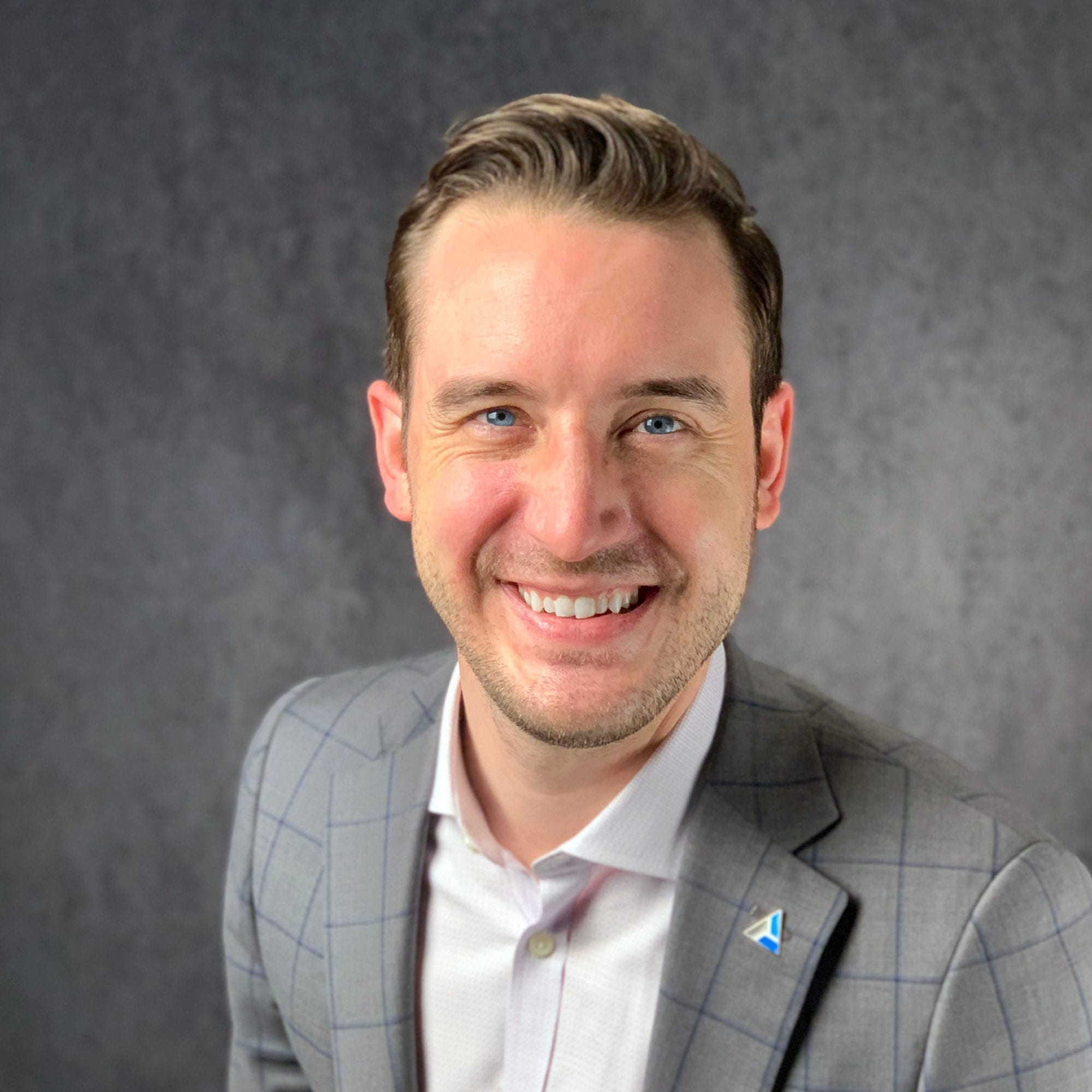
Andrew Vaughan oversees the technology, data science, and product teams at Verusen, the company that leverages artificial intelligence (AI) to build the intelligent, connected supply chain. Andrew focuses on the strategy and execution of the company’s technology development efforts. He has over 10 years of software experience as a product and technology leader, having driven in senior leadership roles at companies like Groupon, Hyatt Hotels, and project44. Connect with Andrew on LinkedIn.
